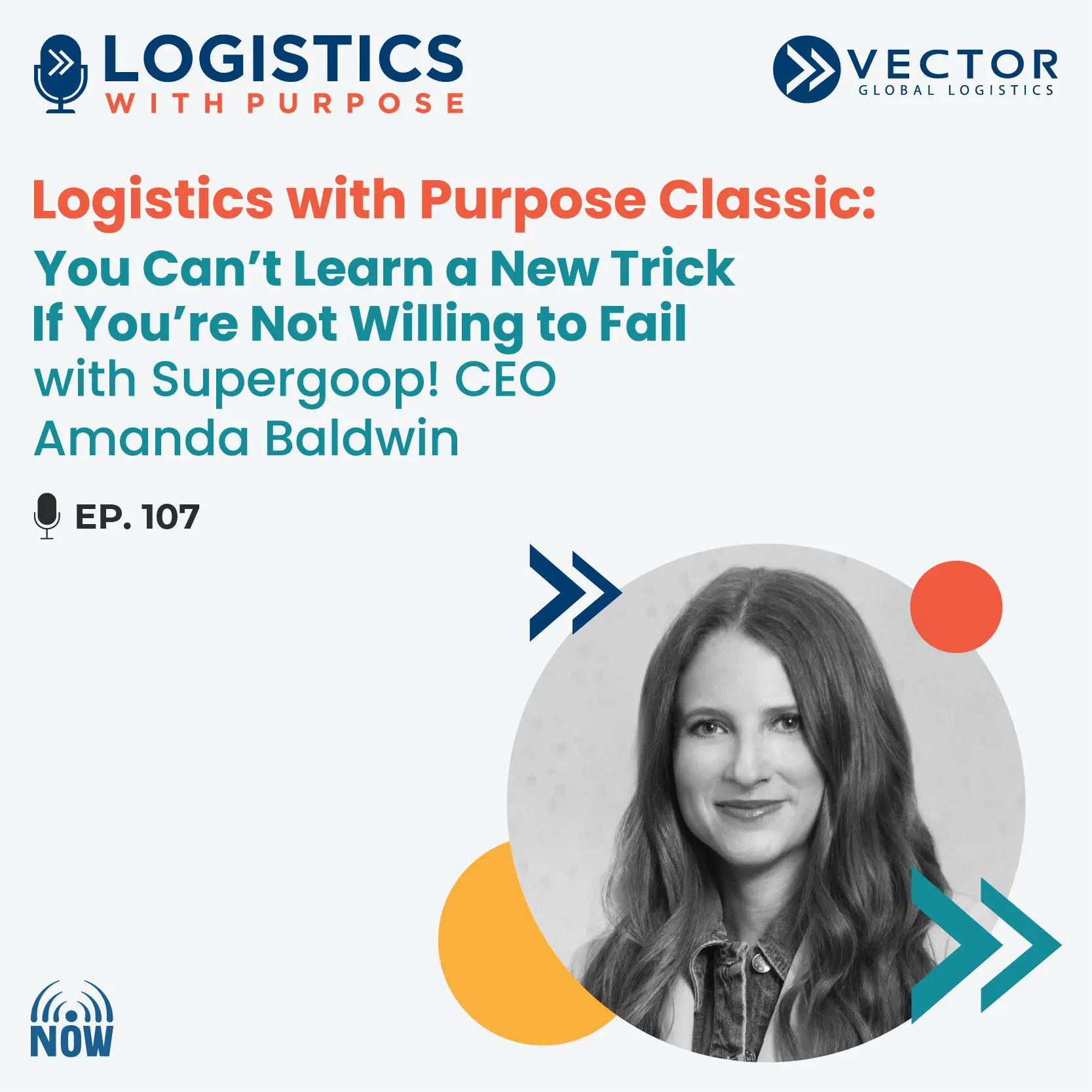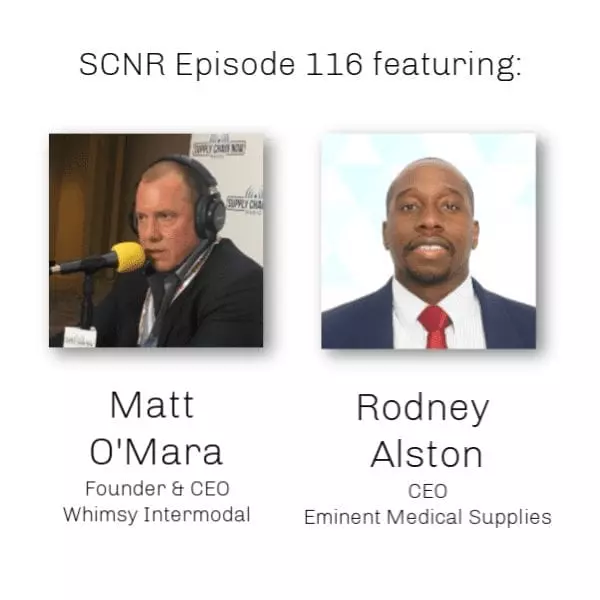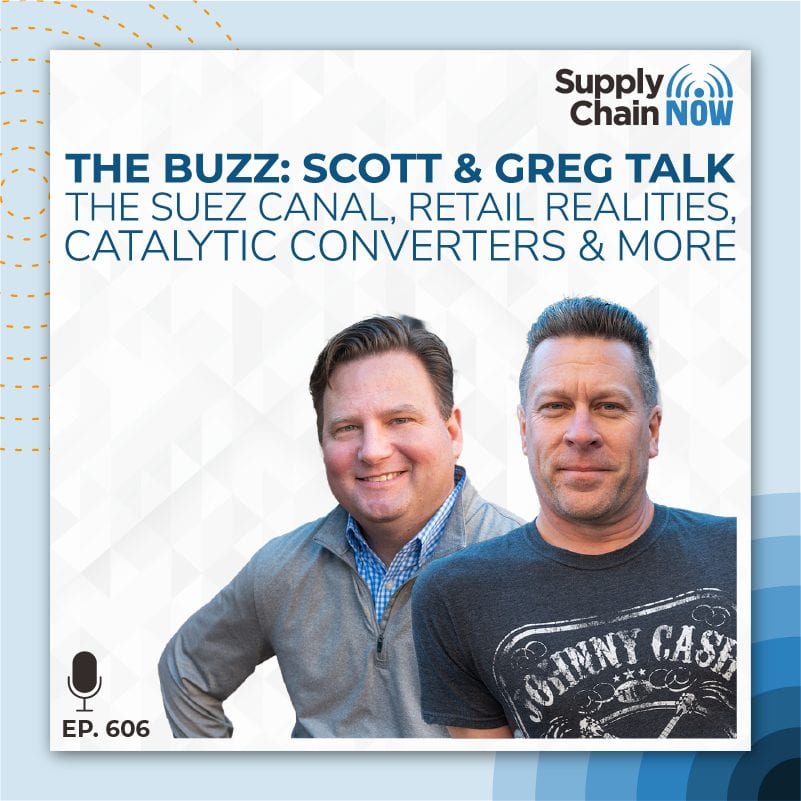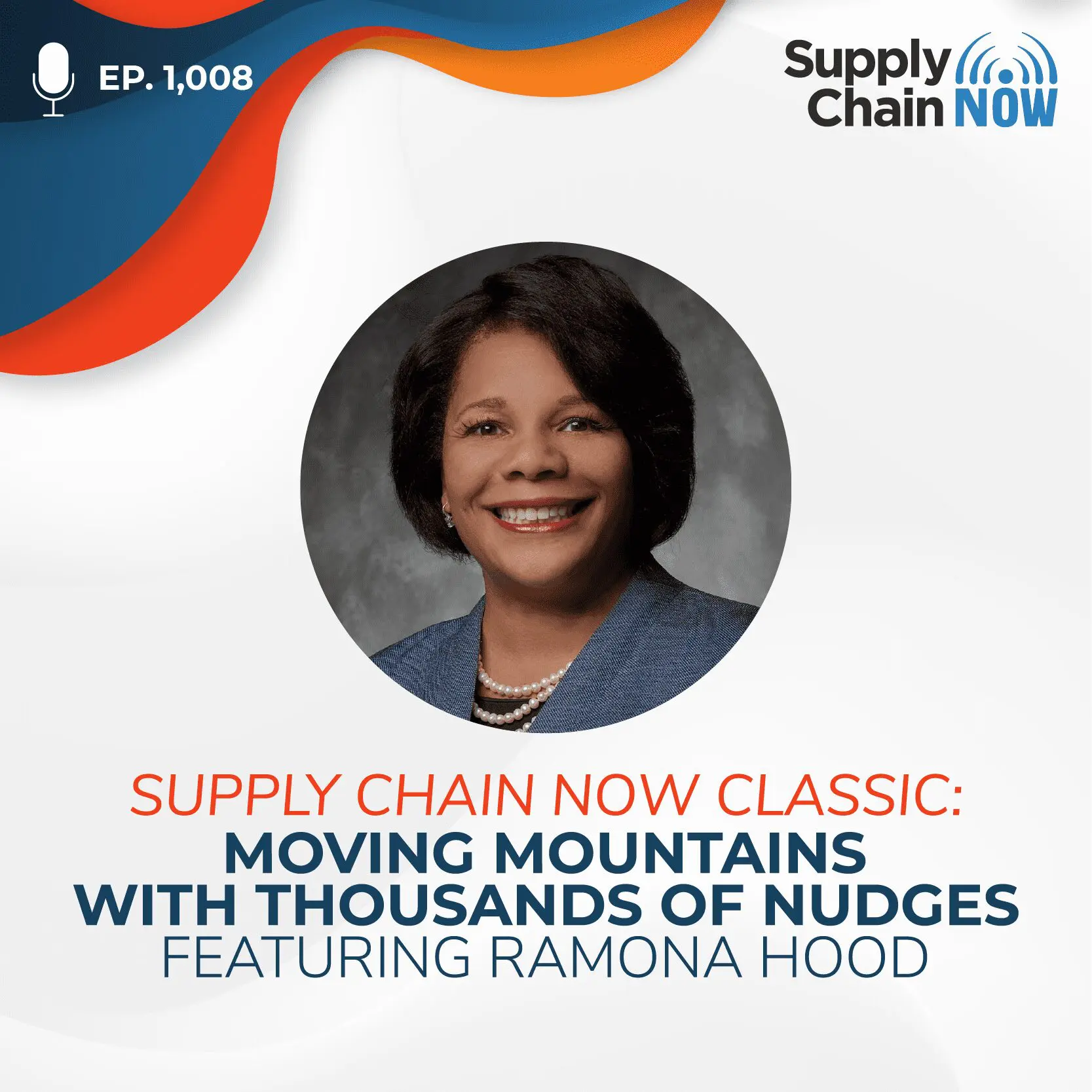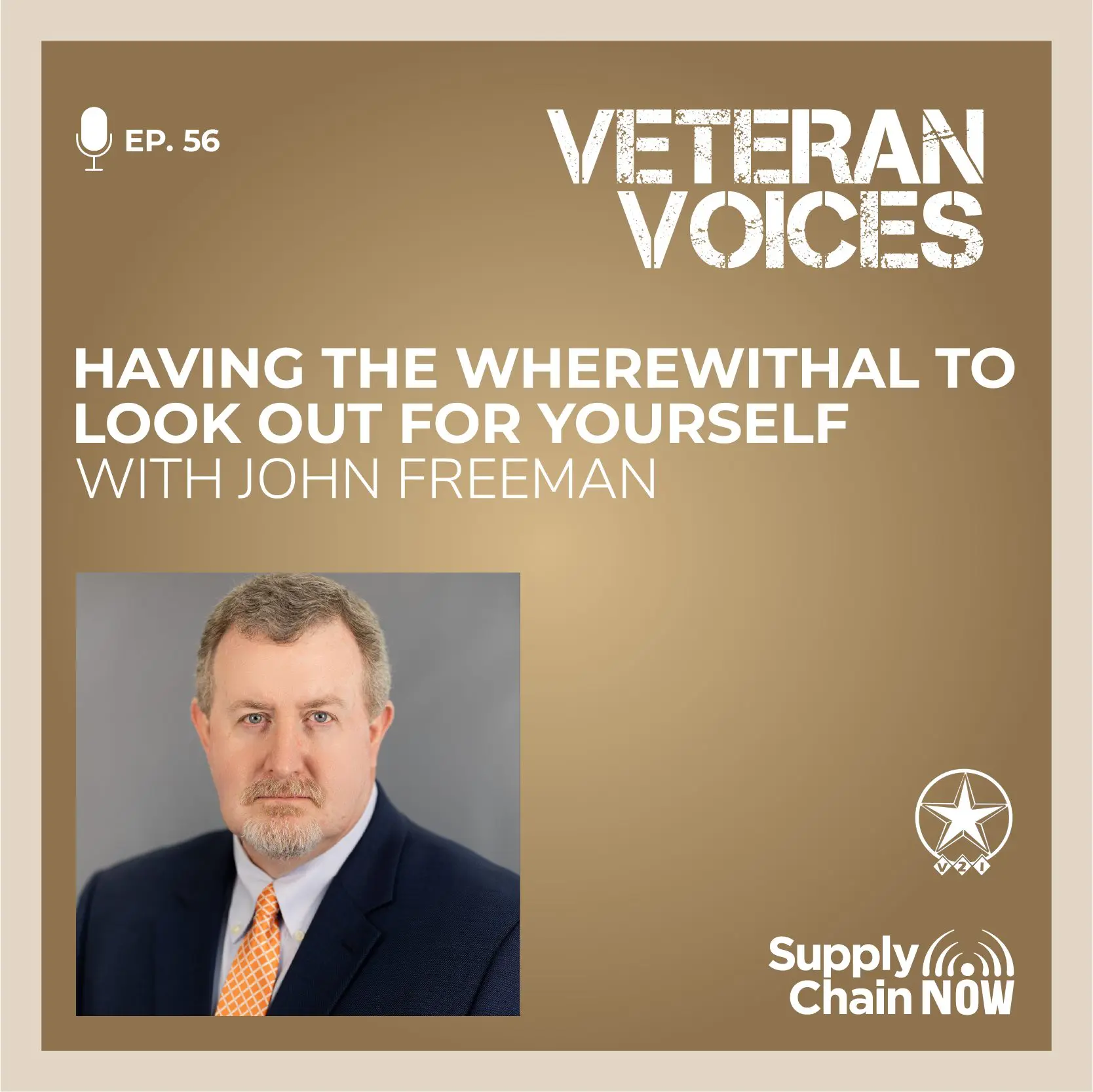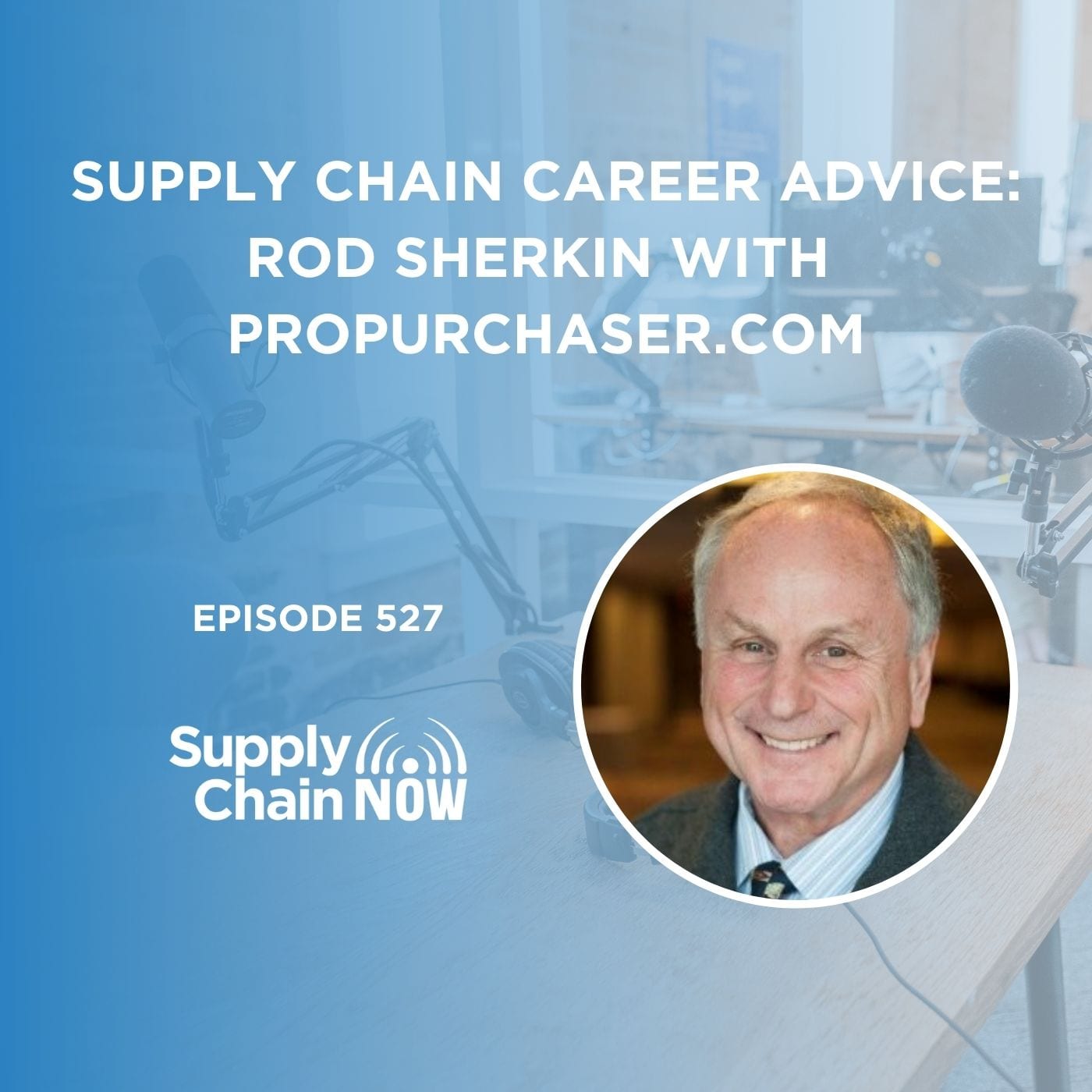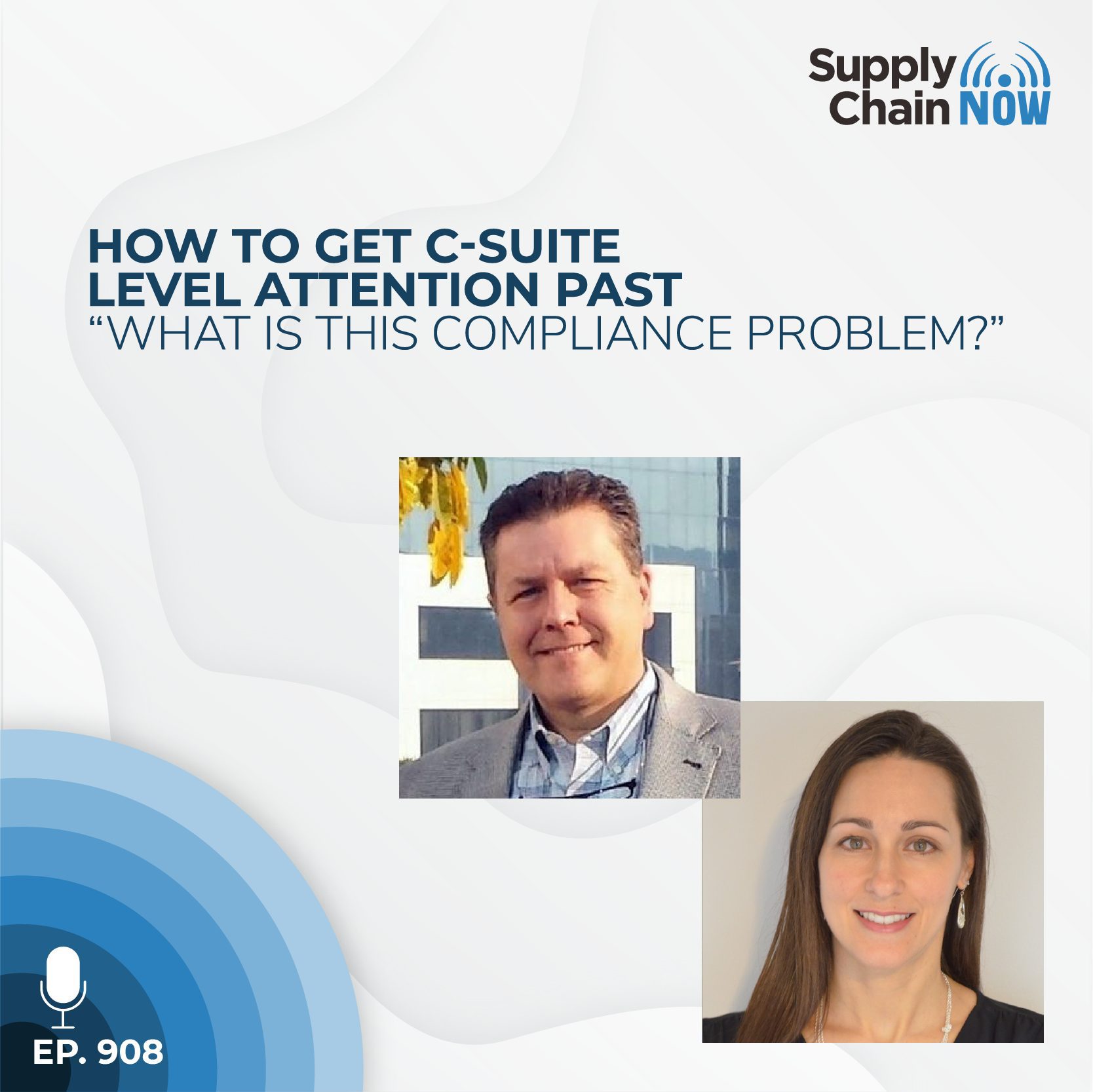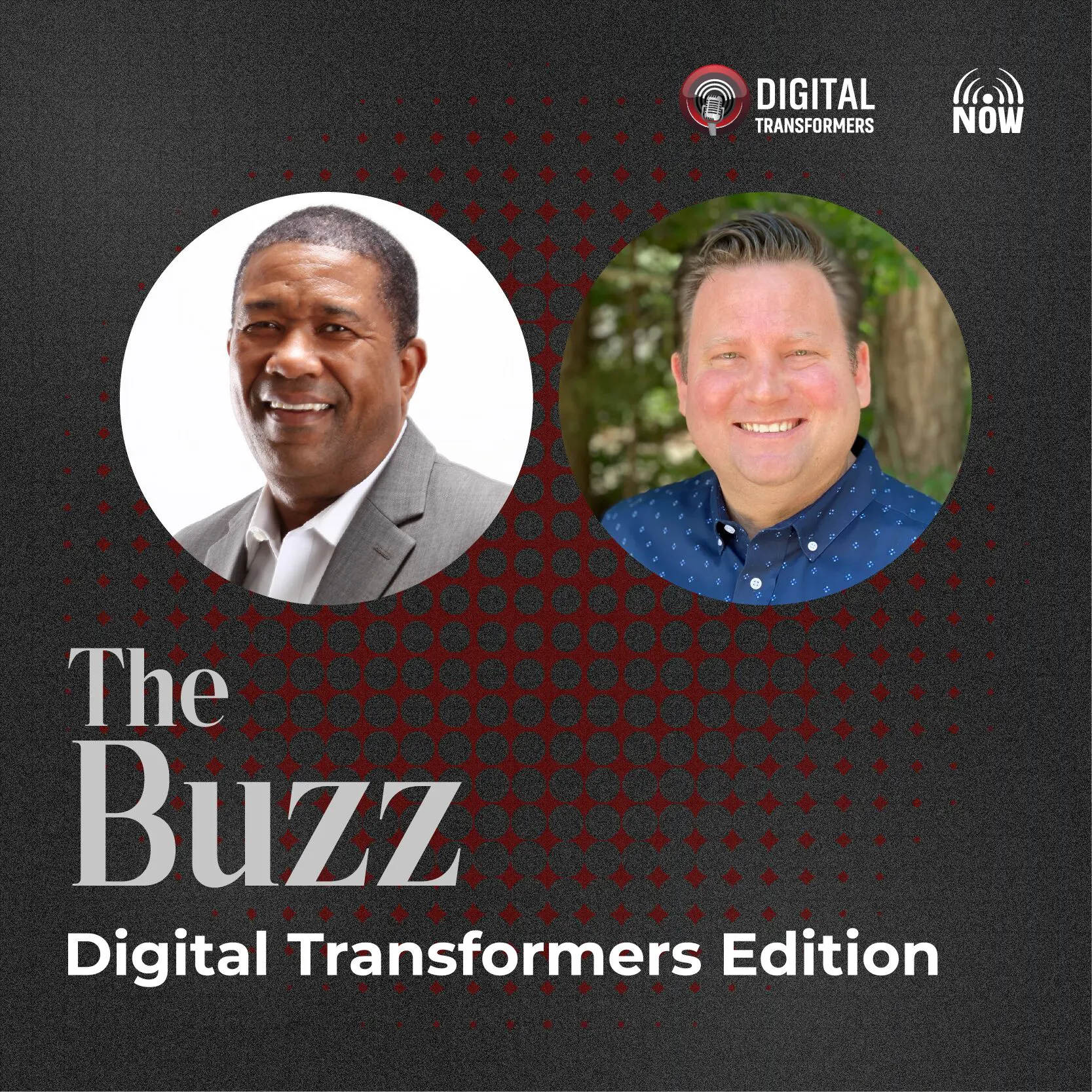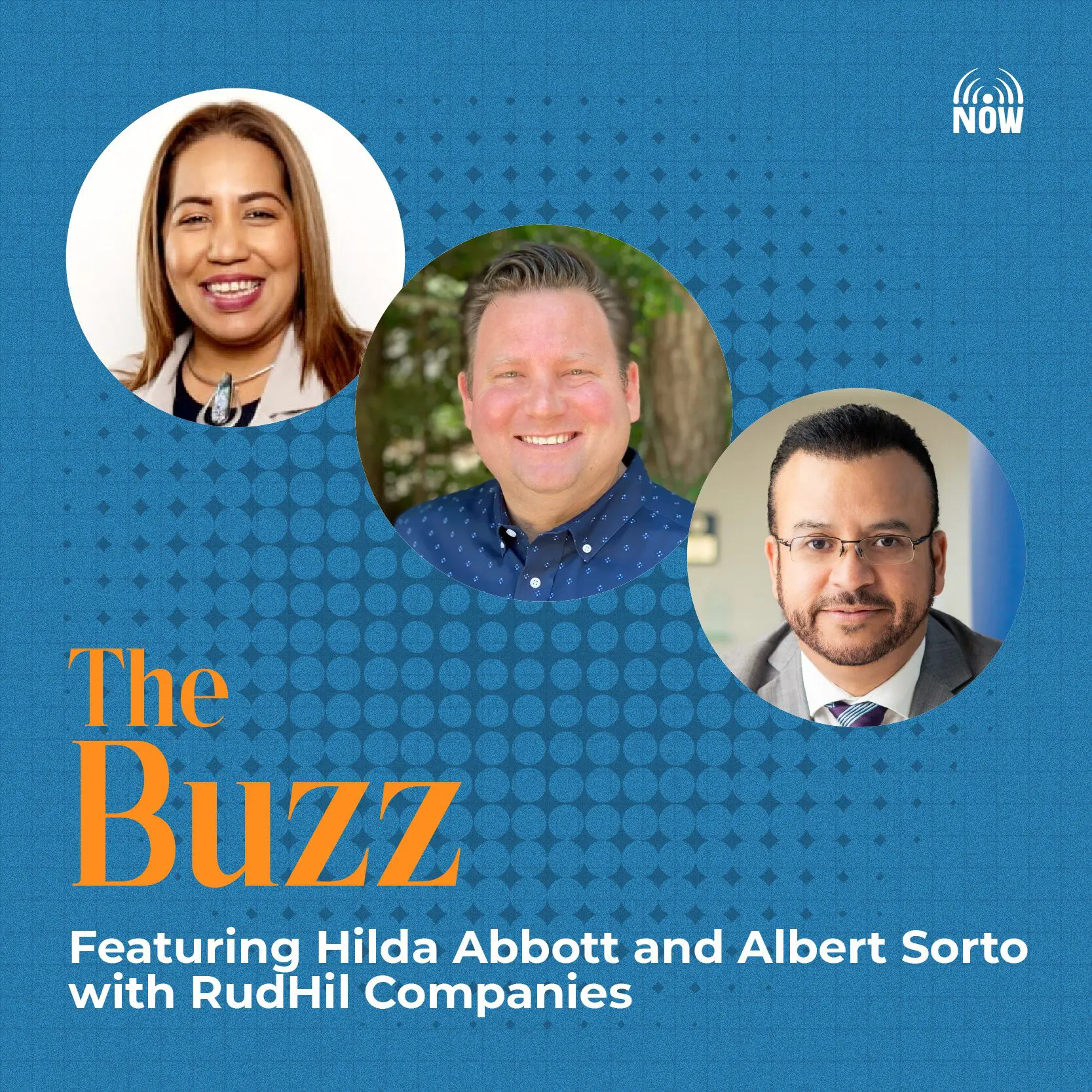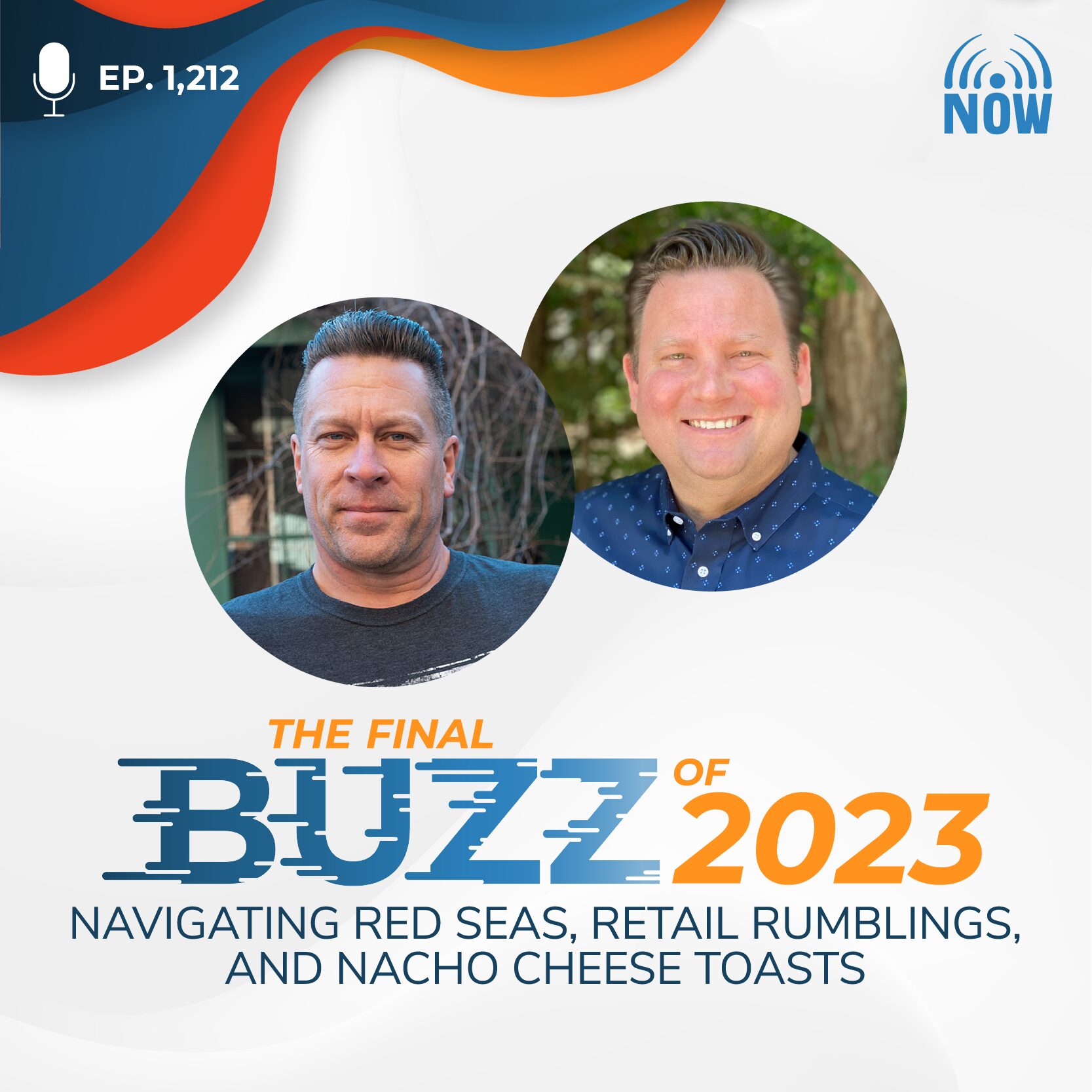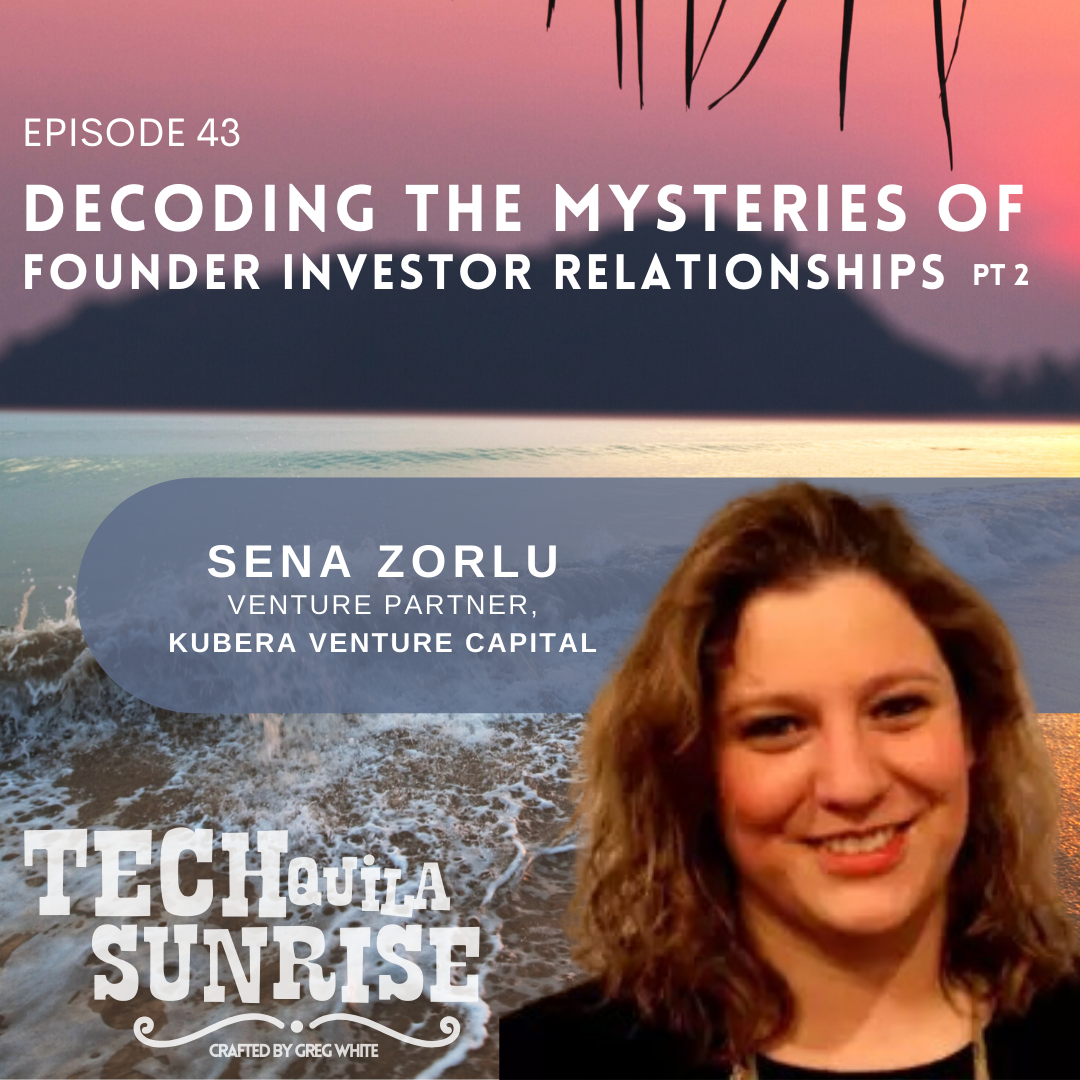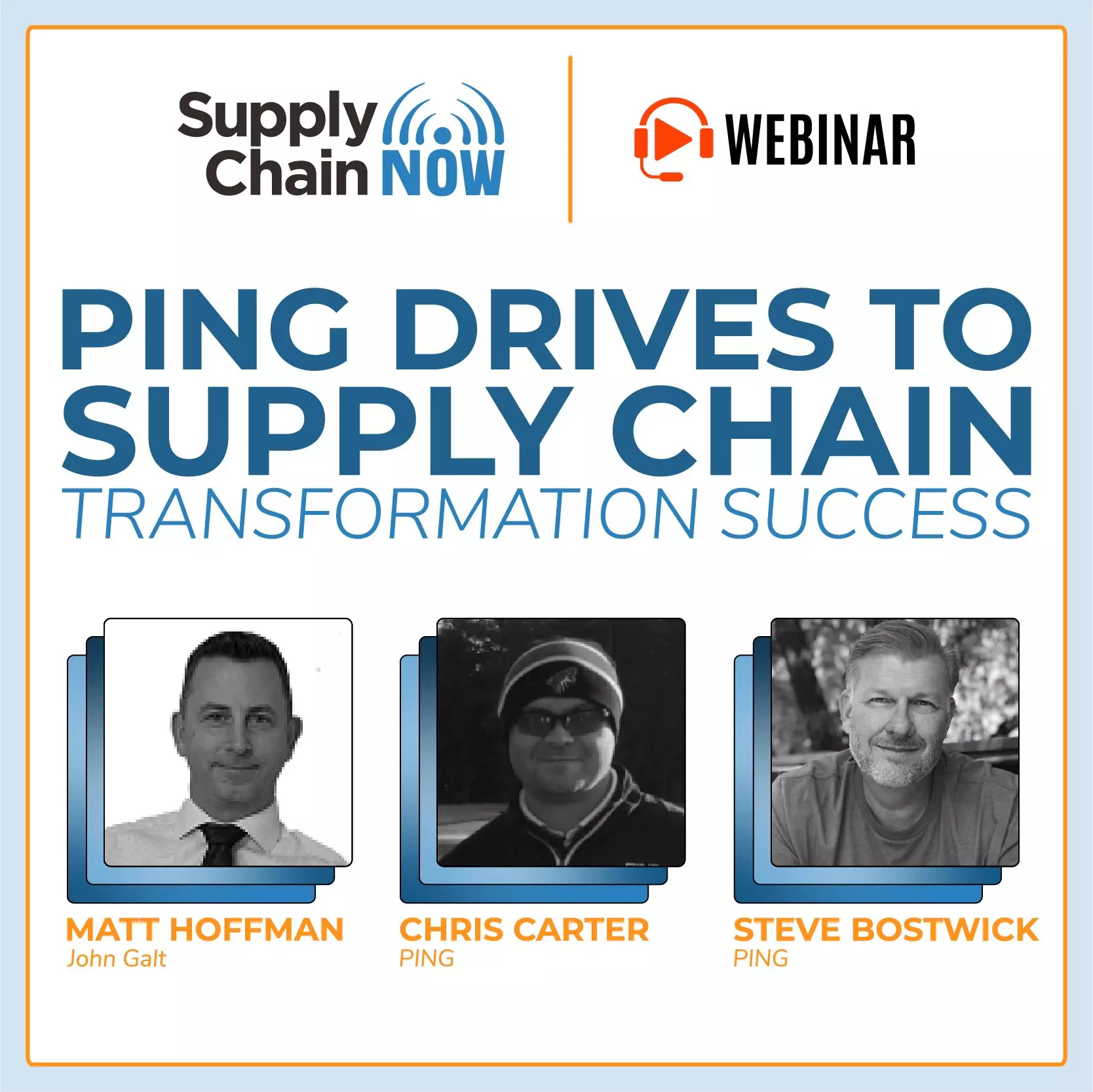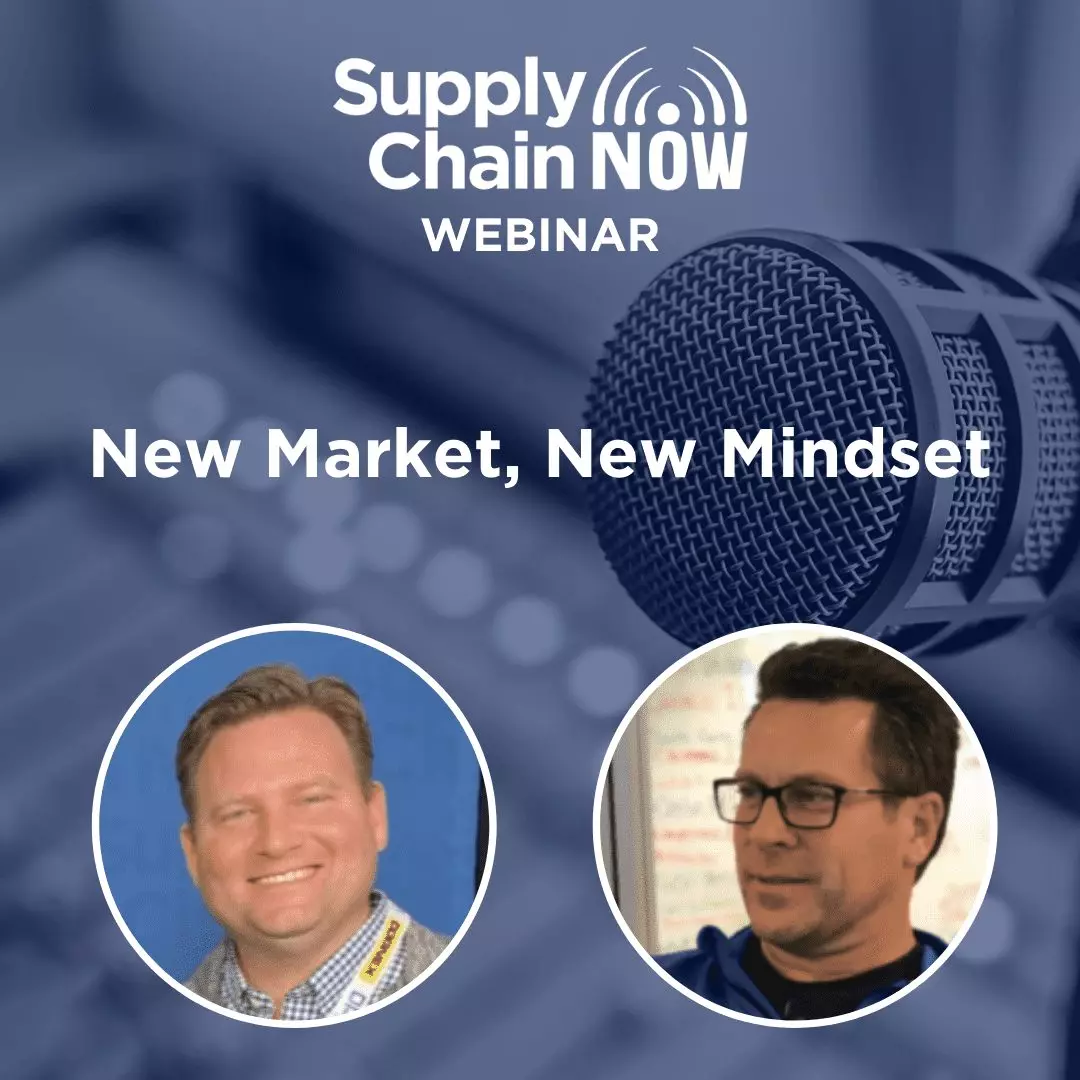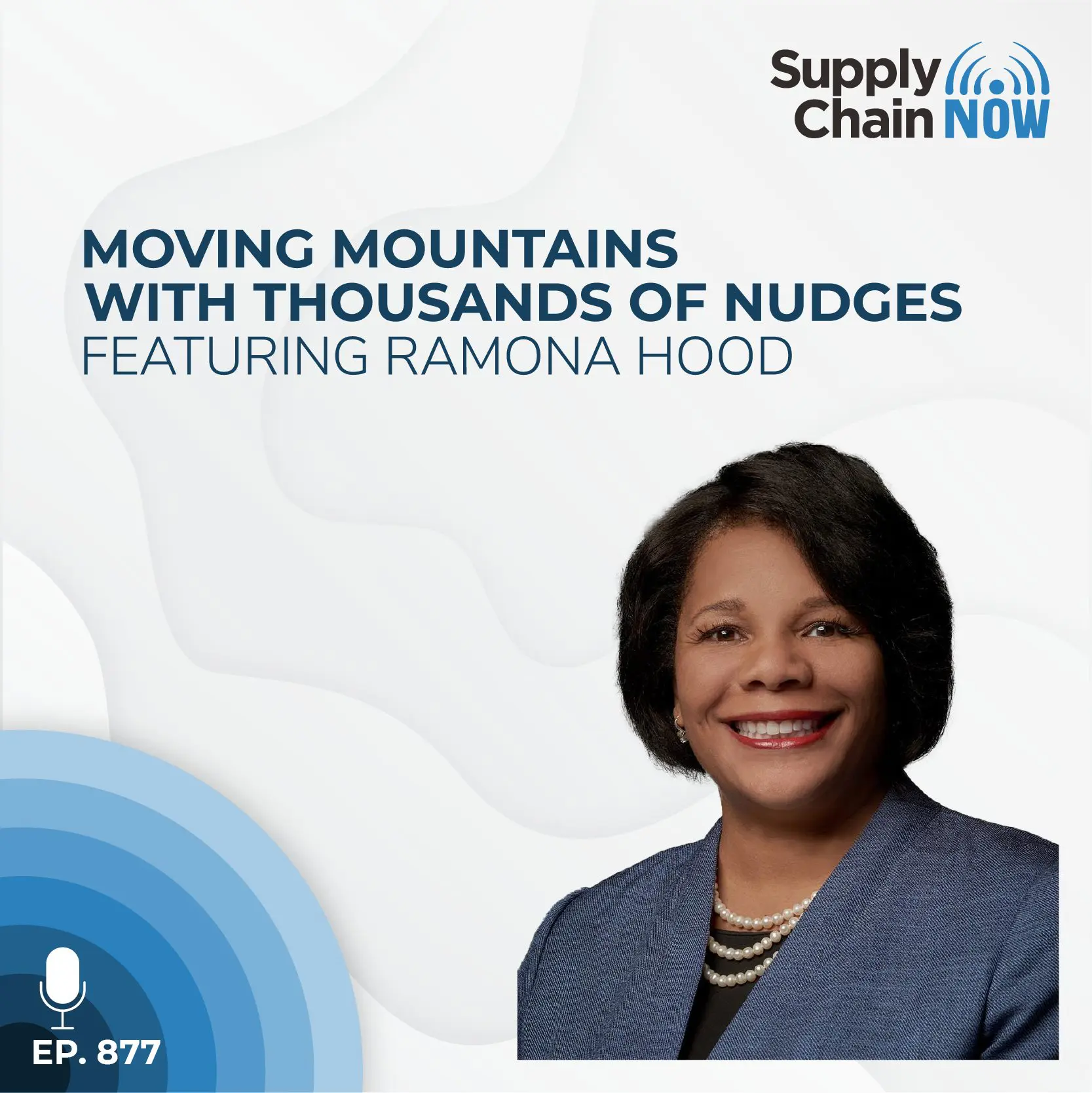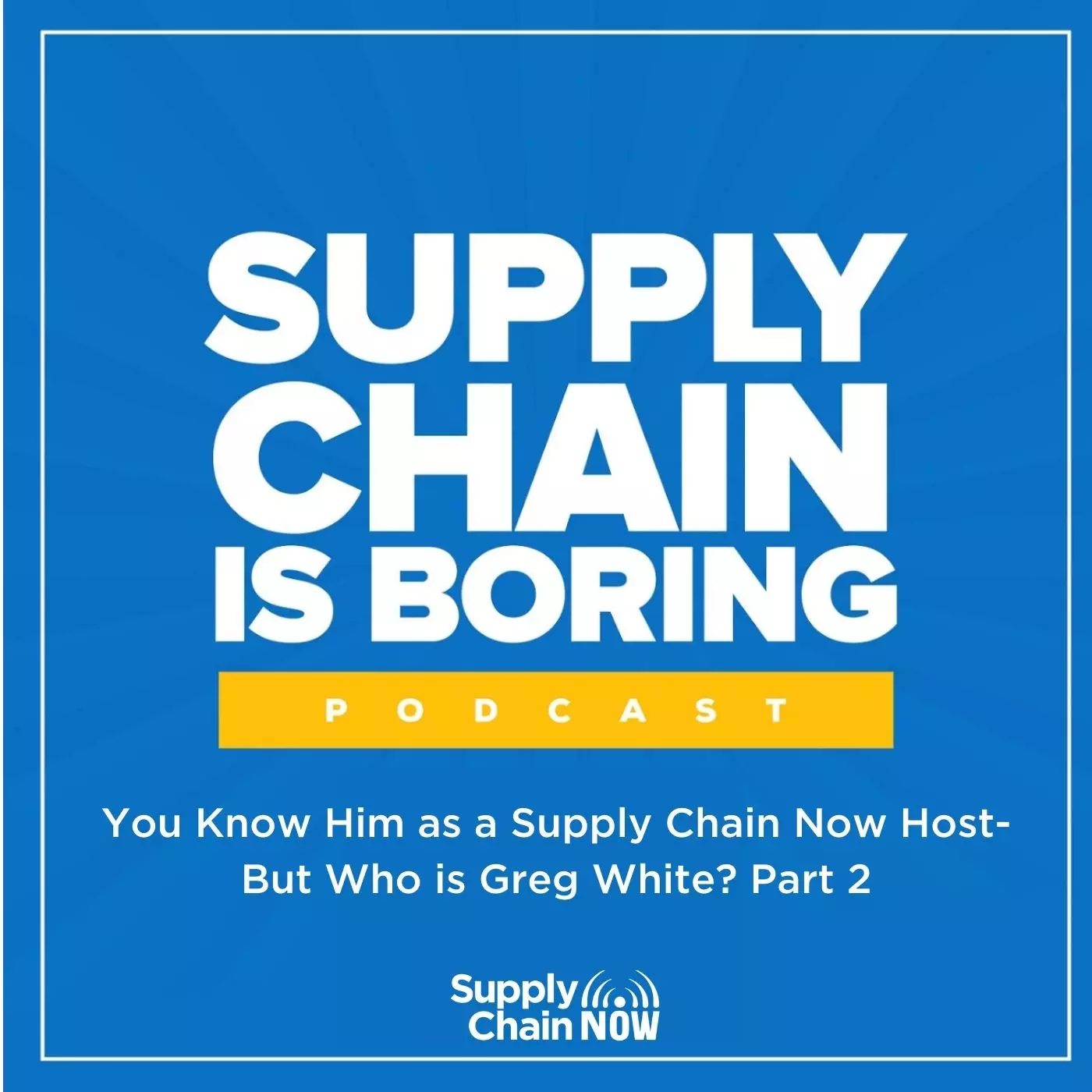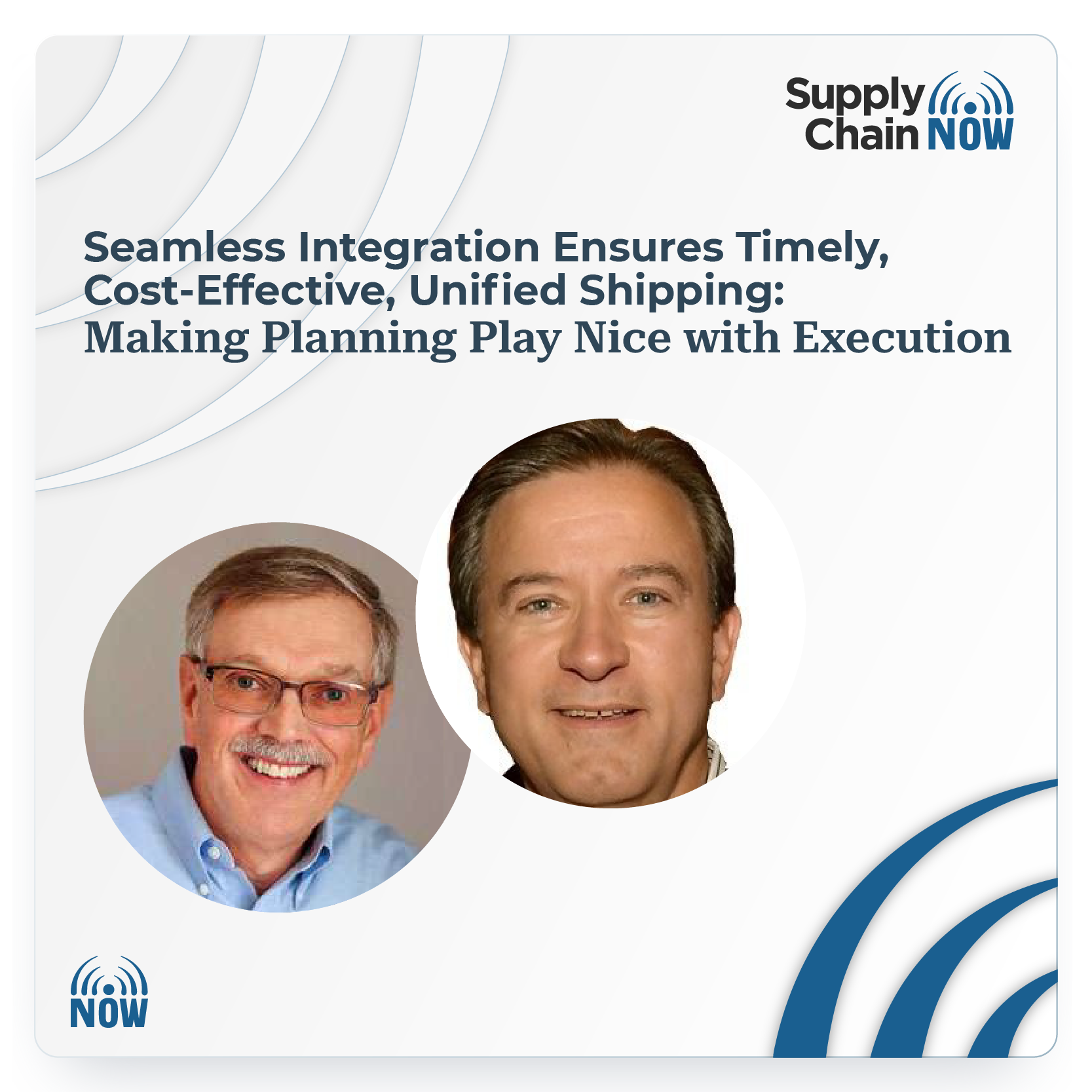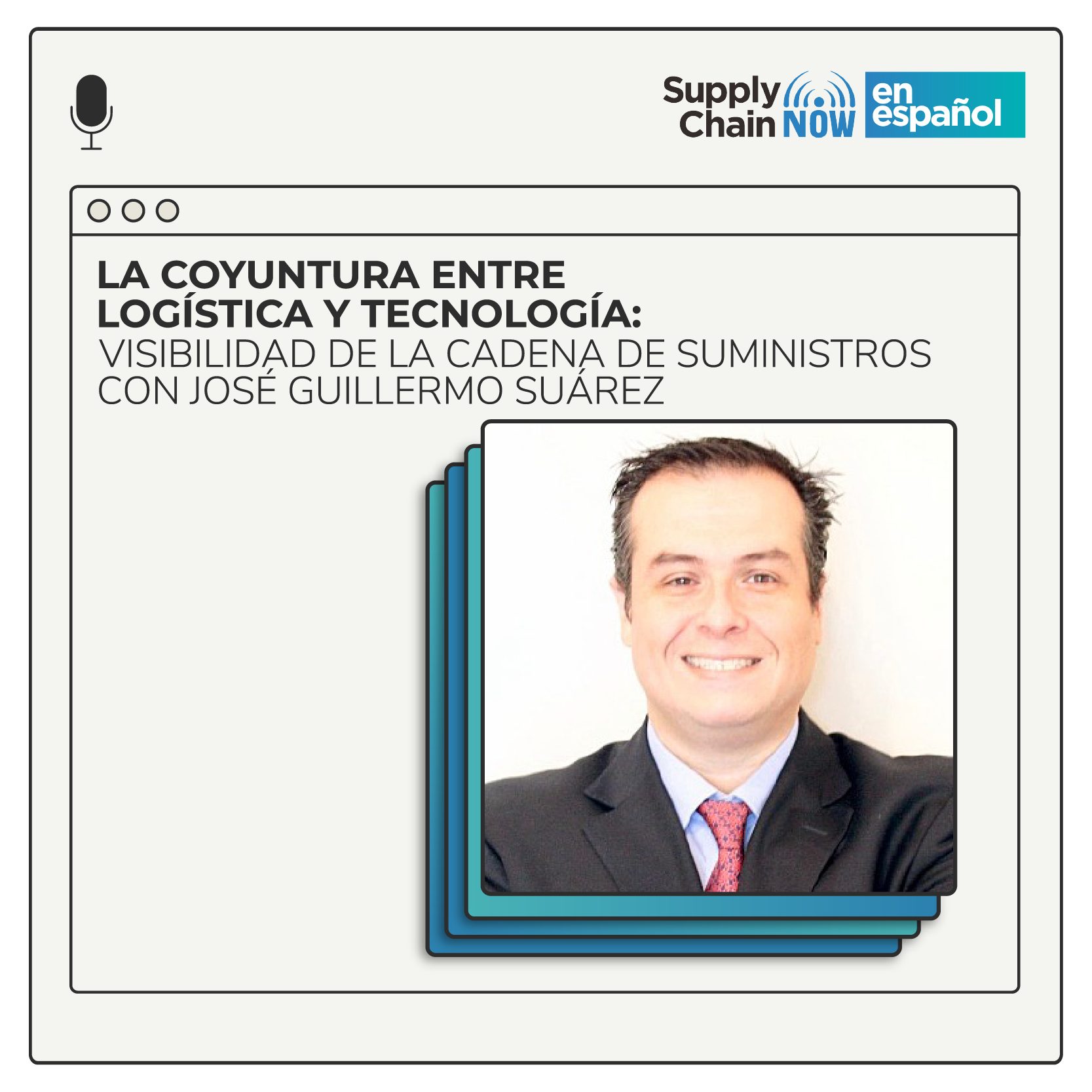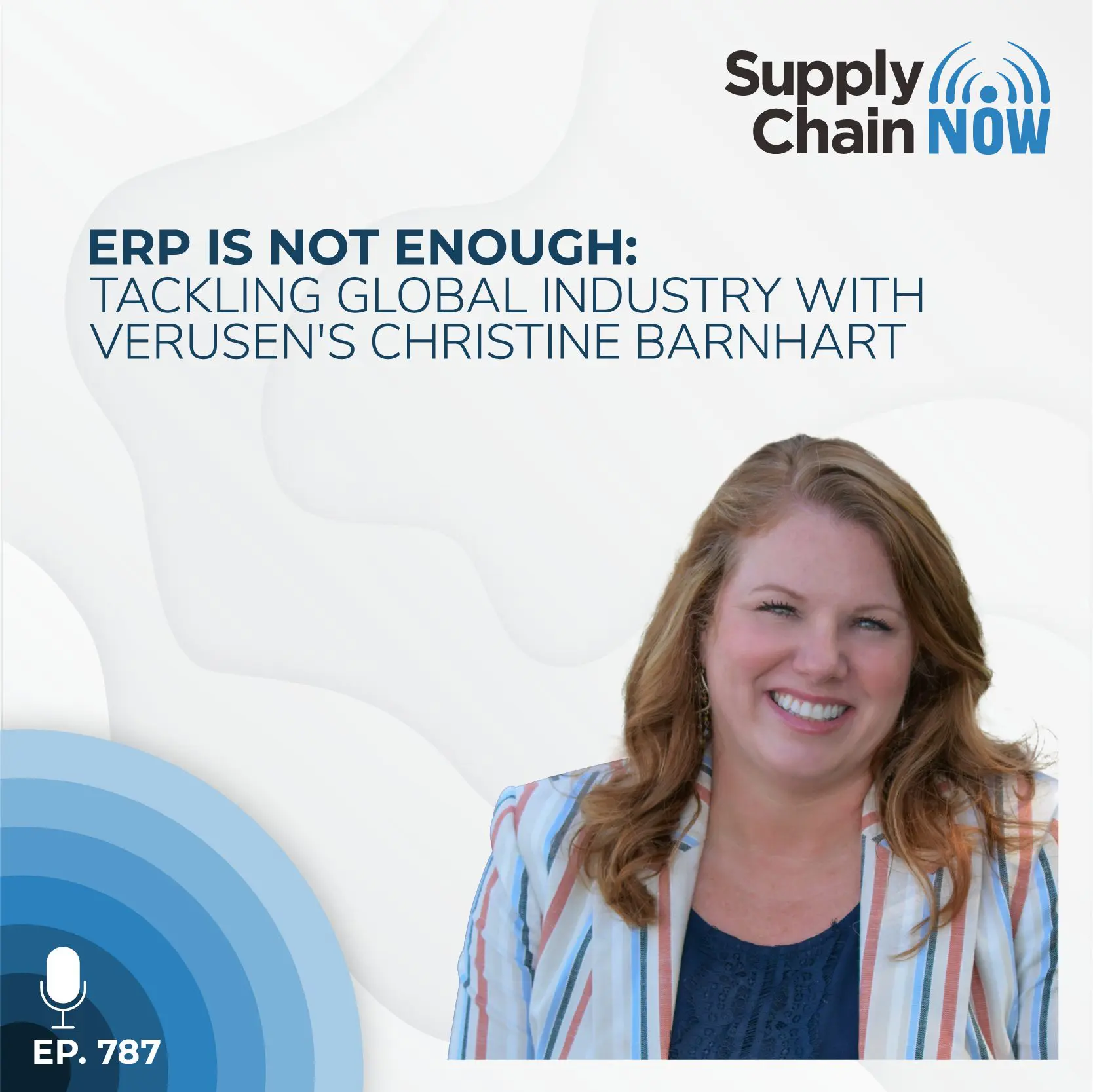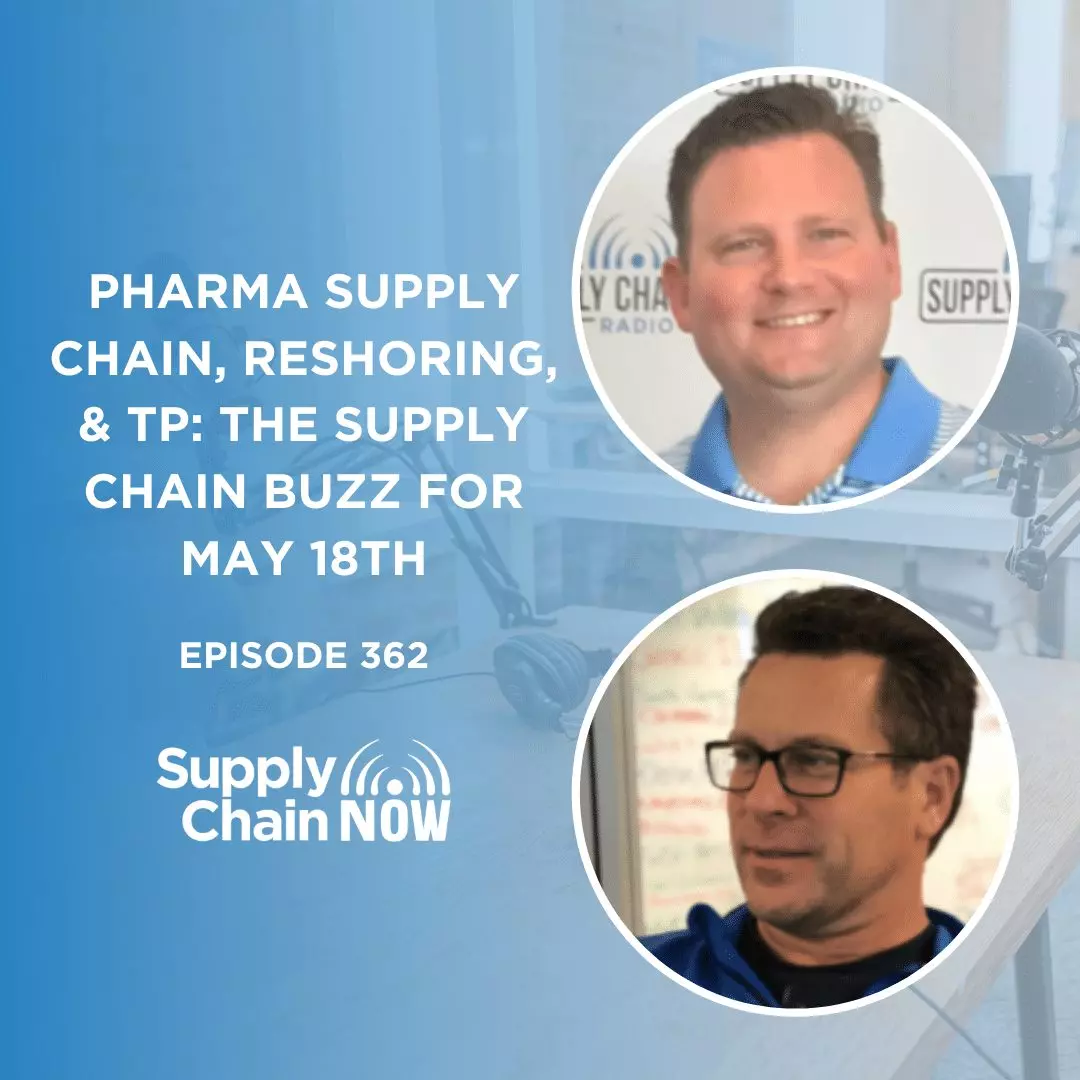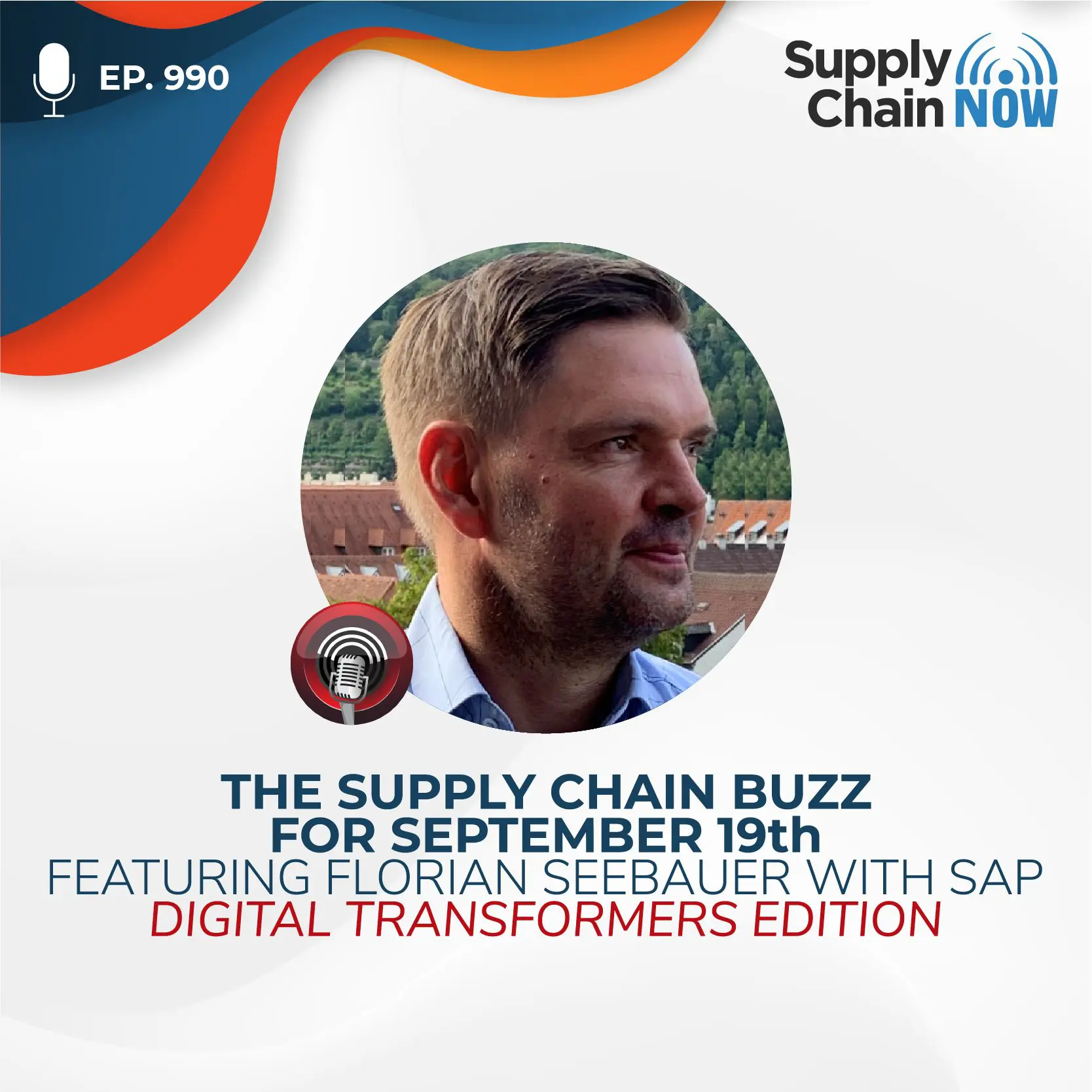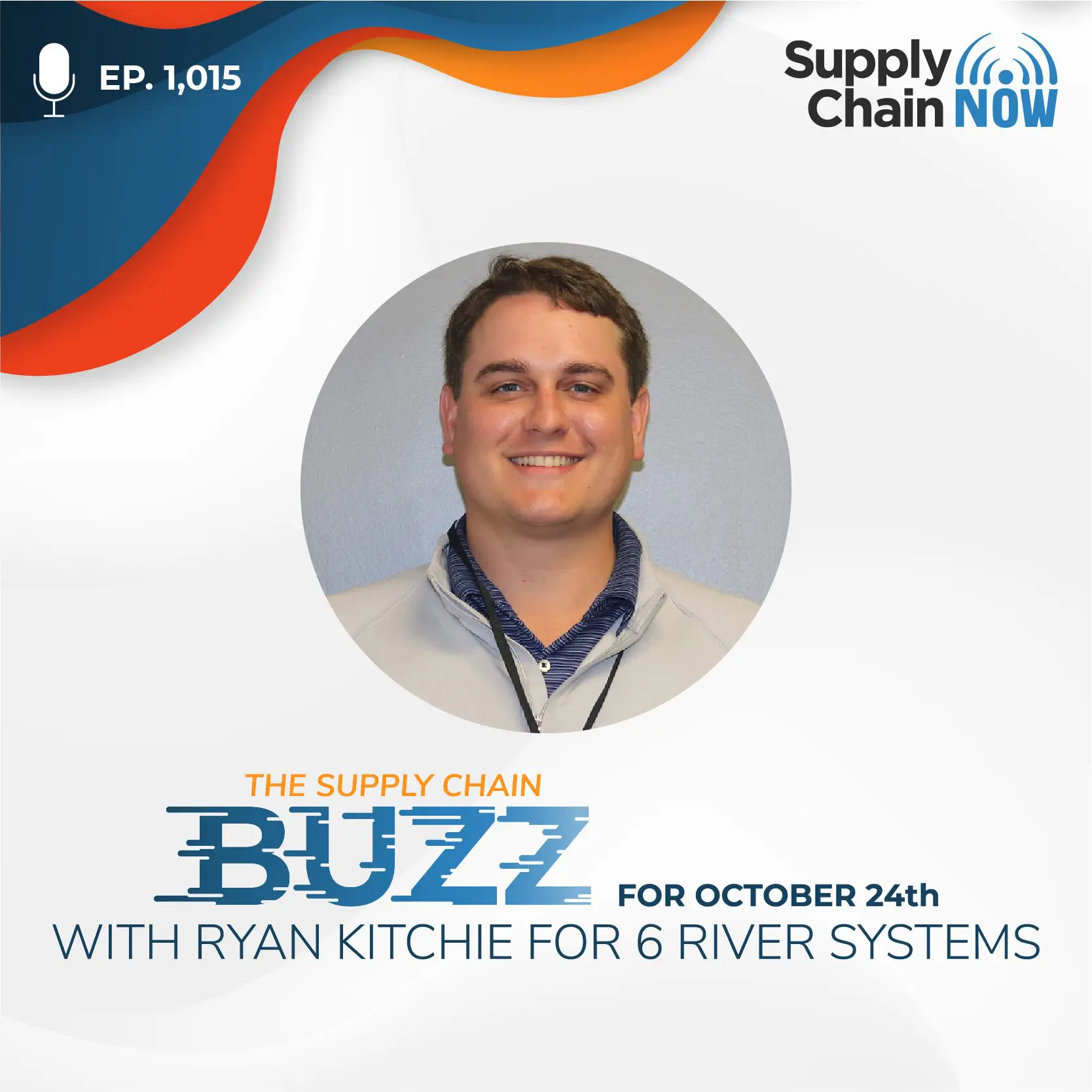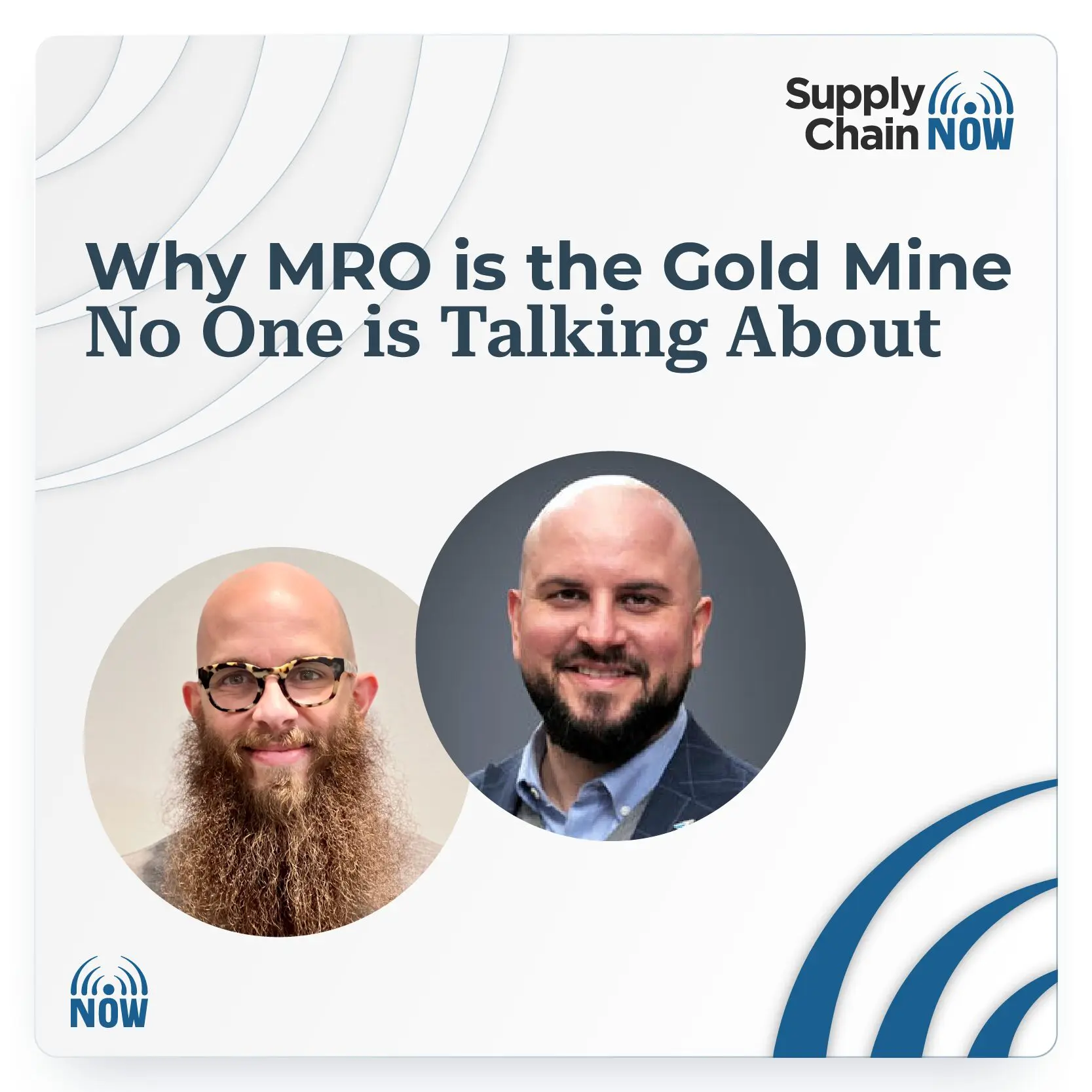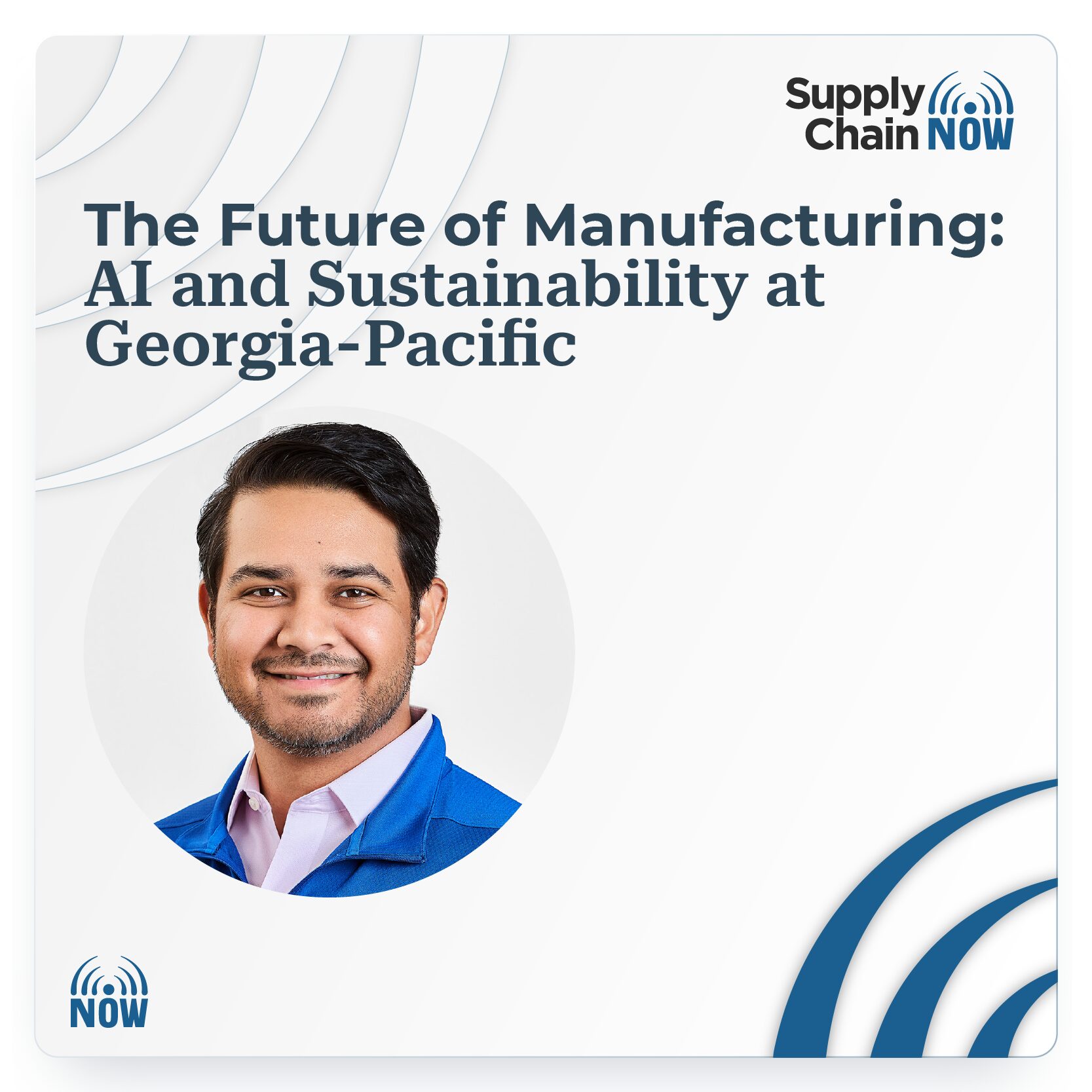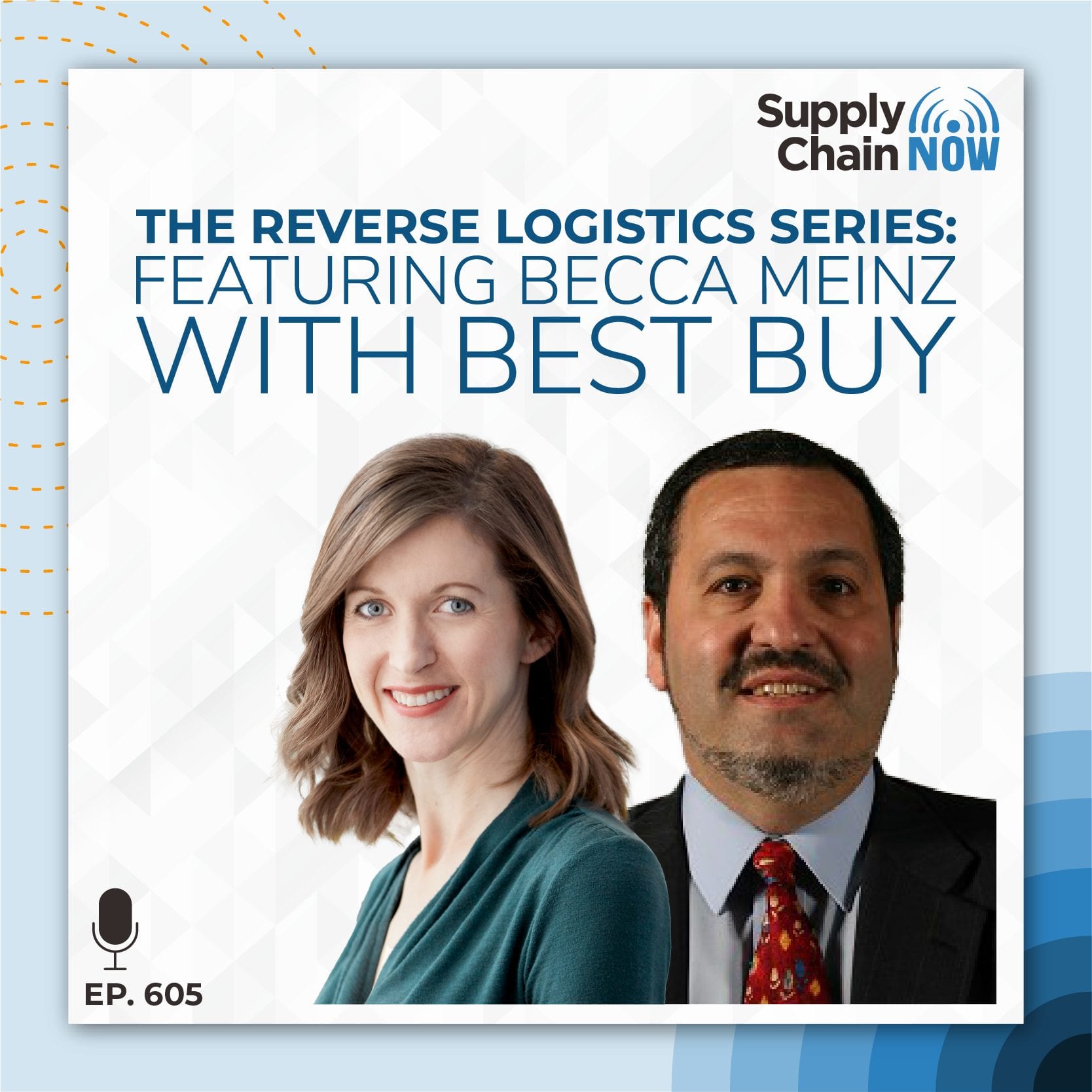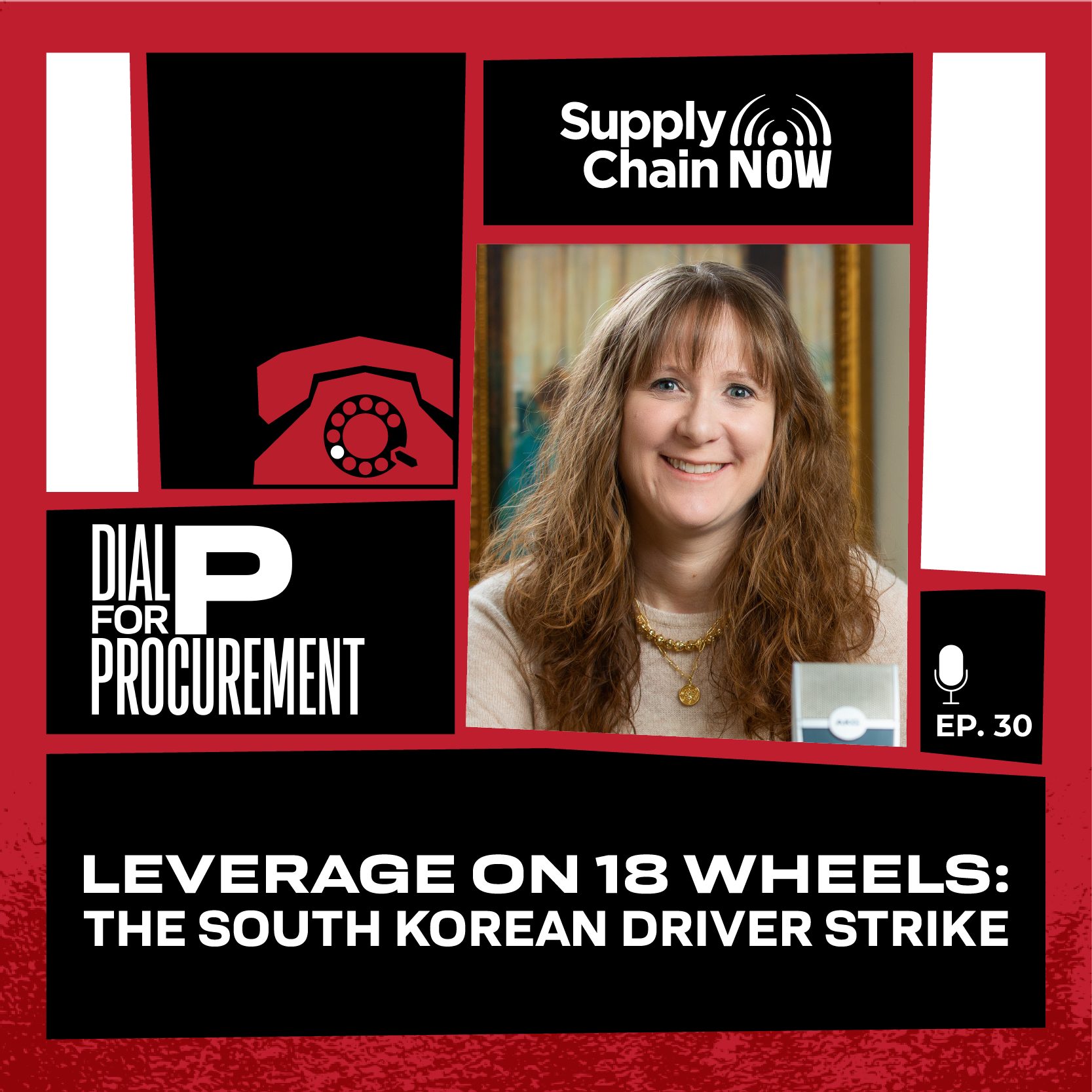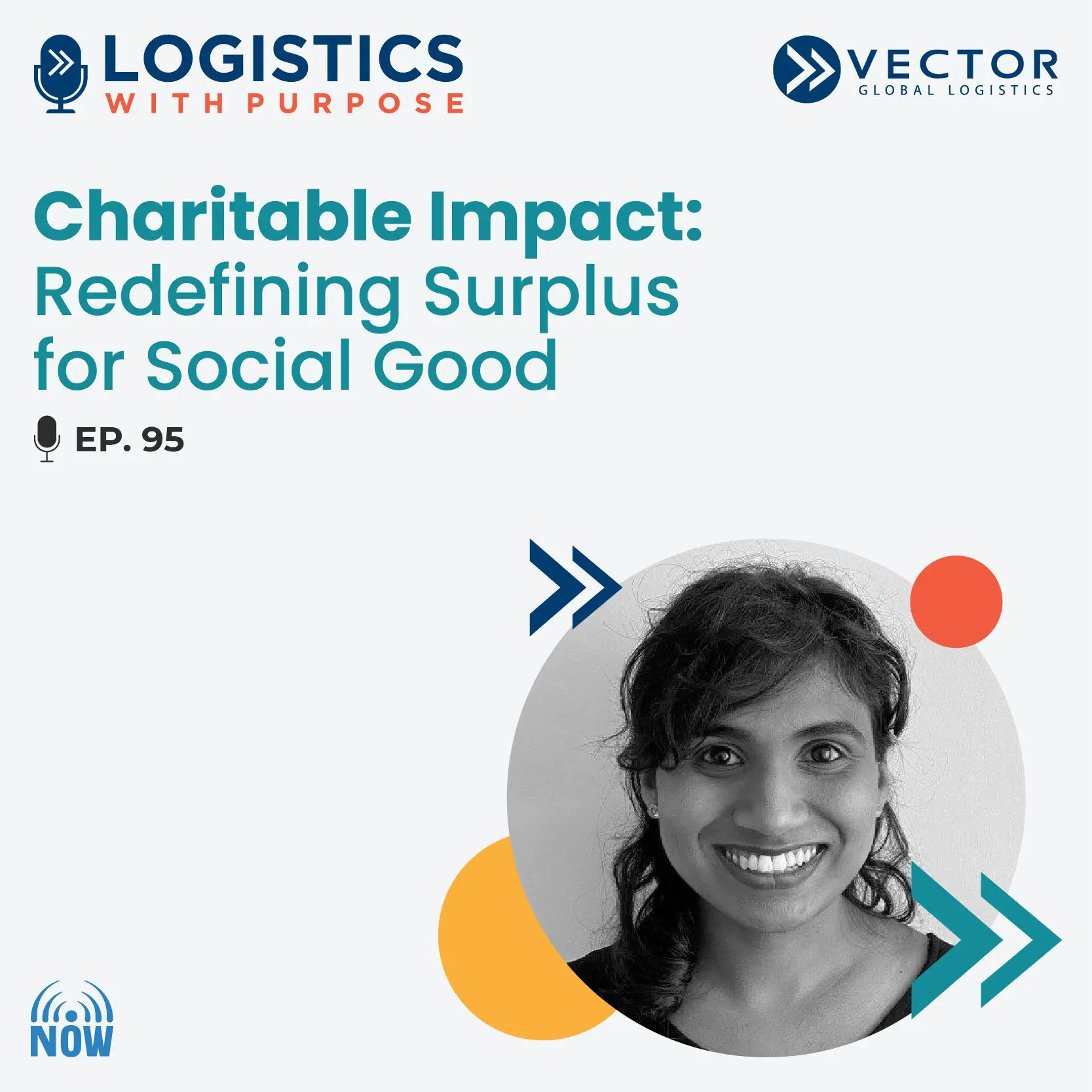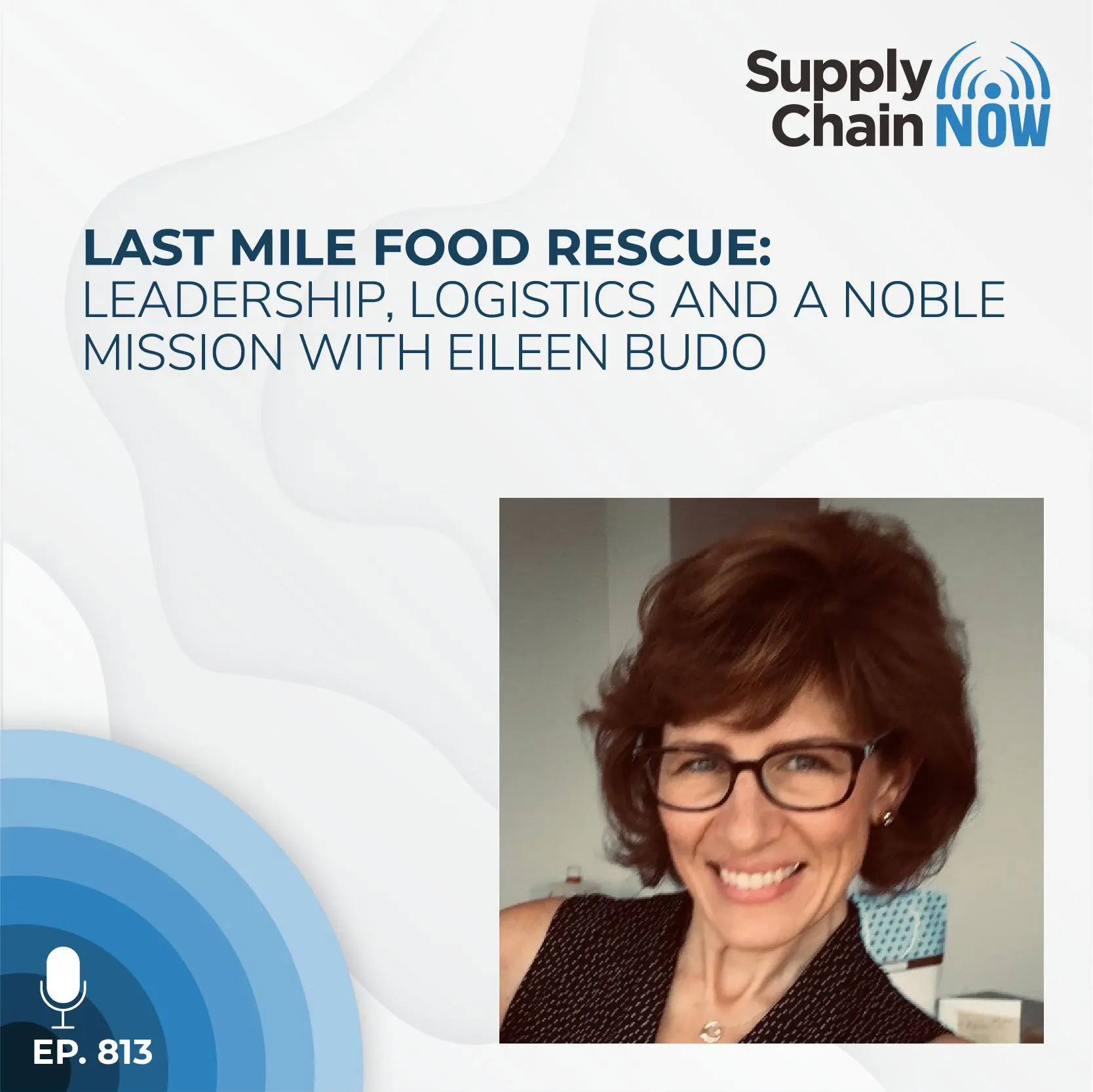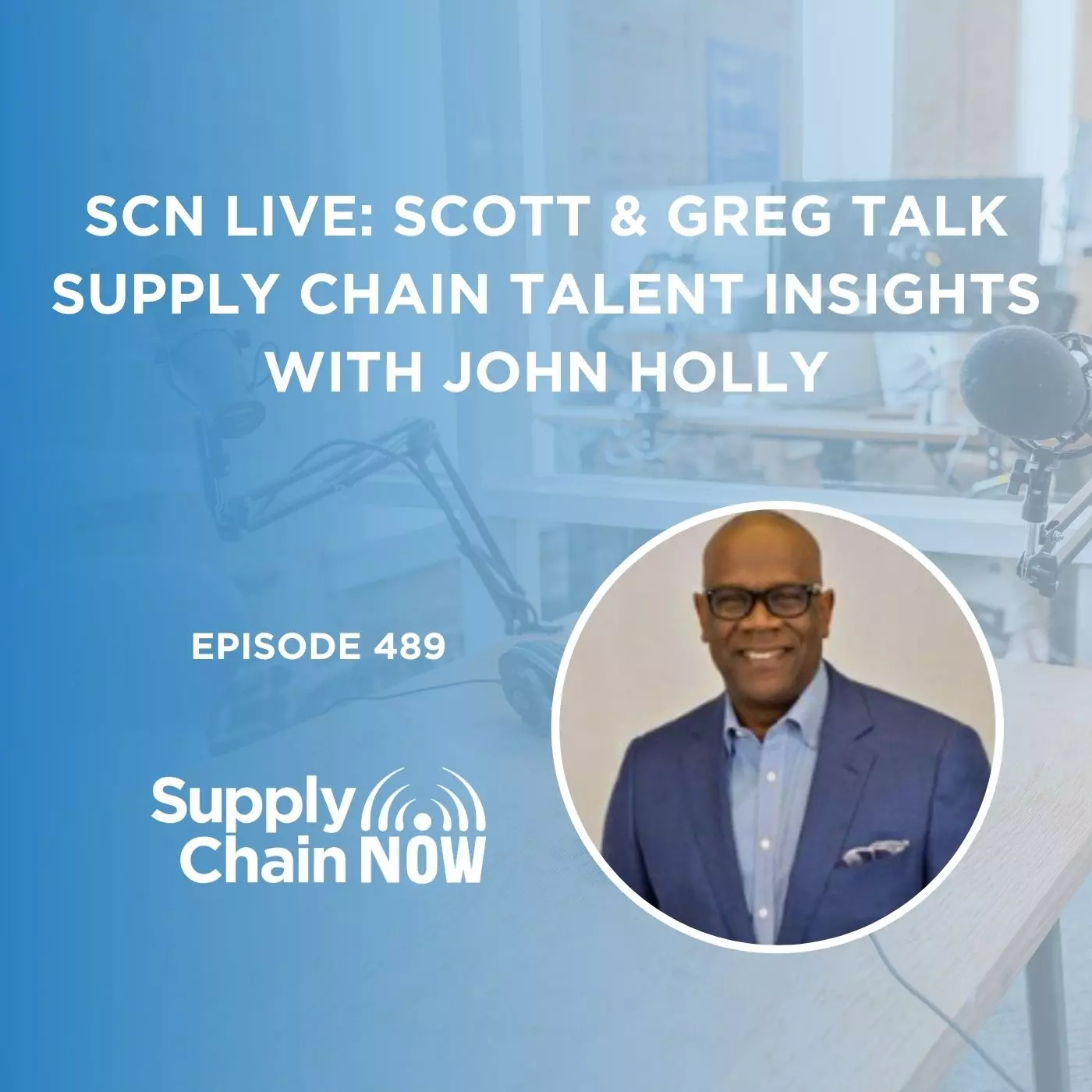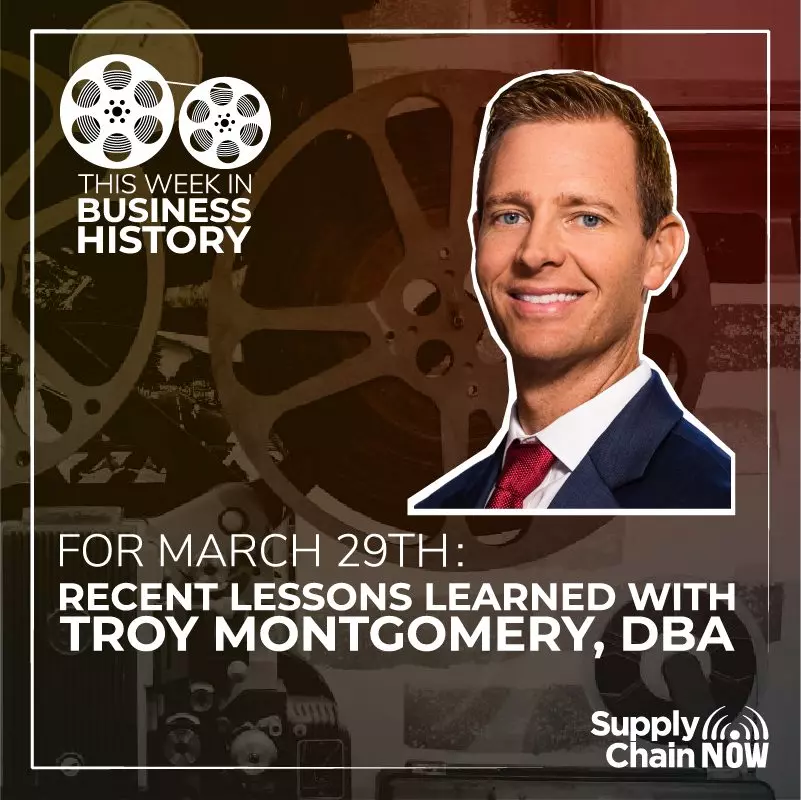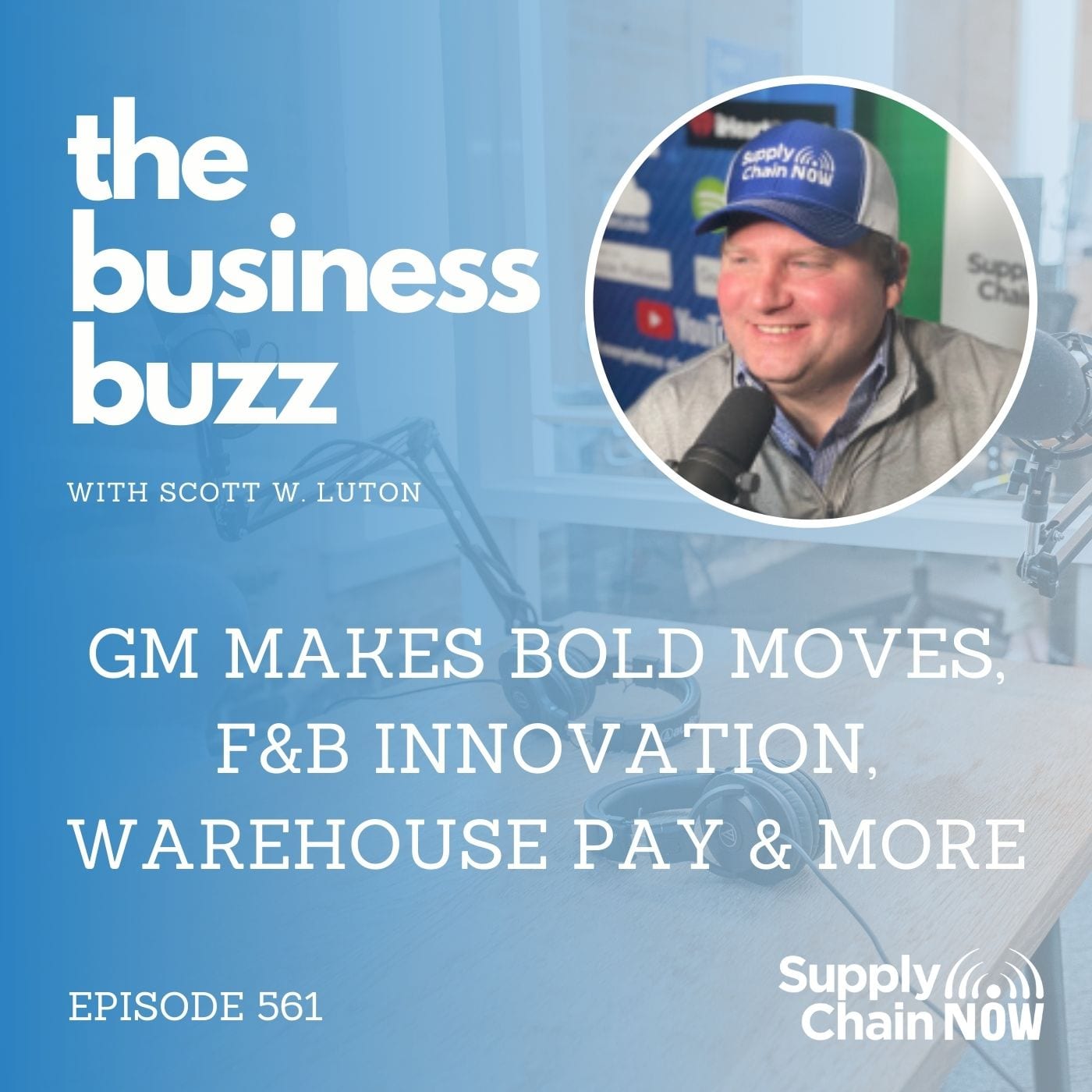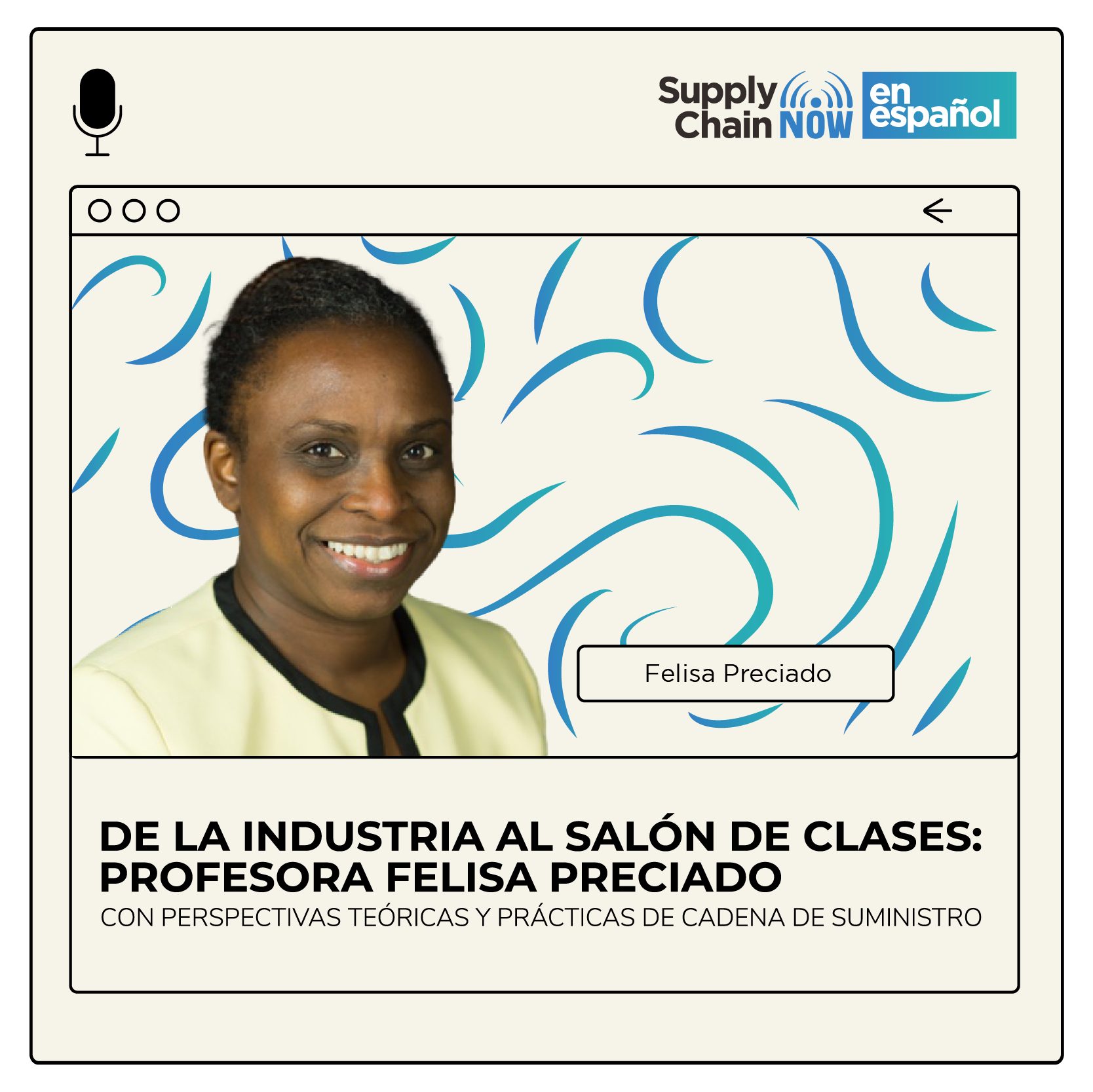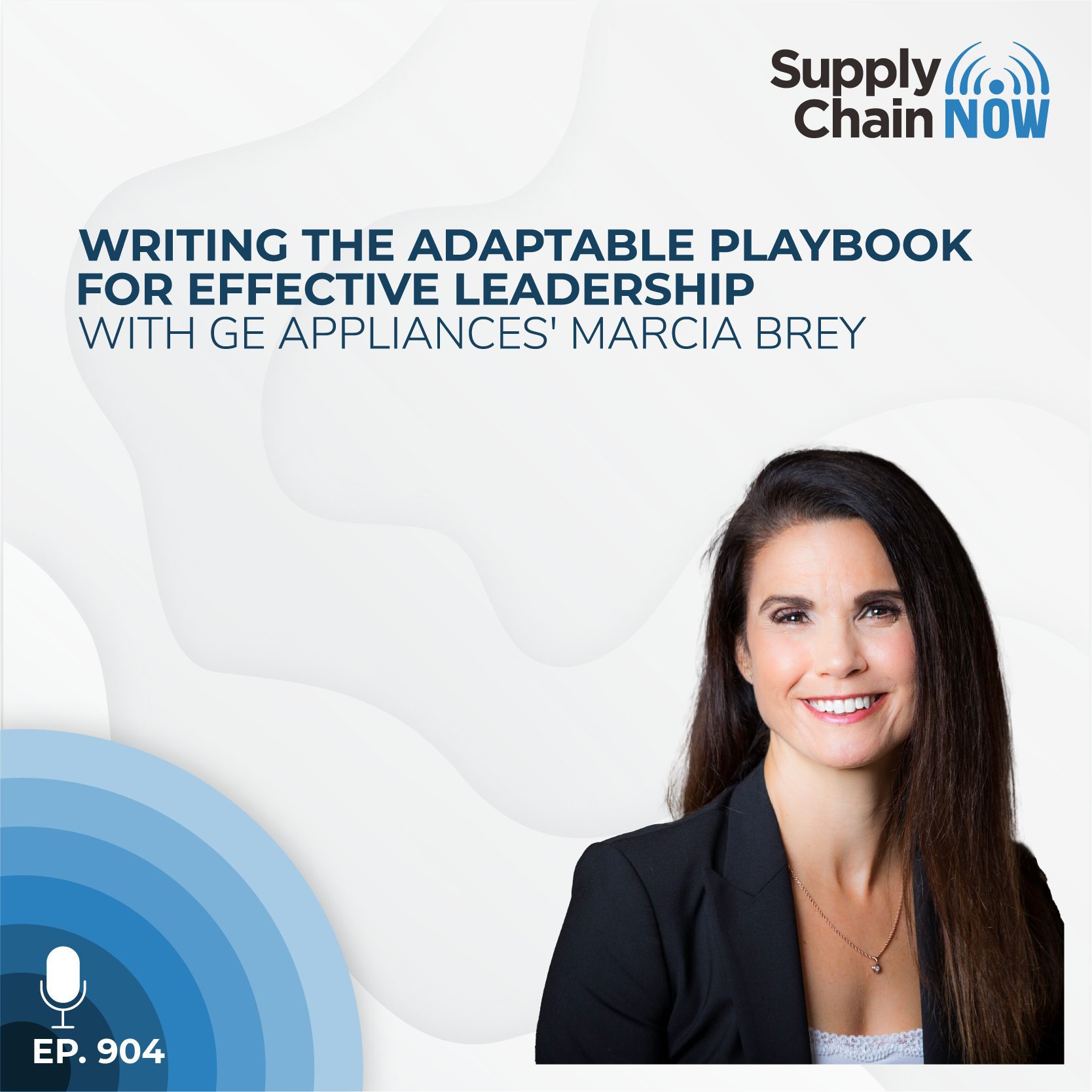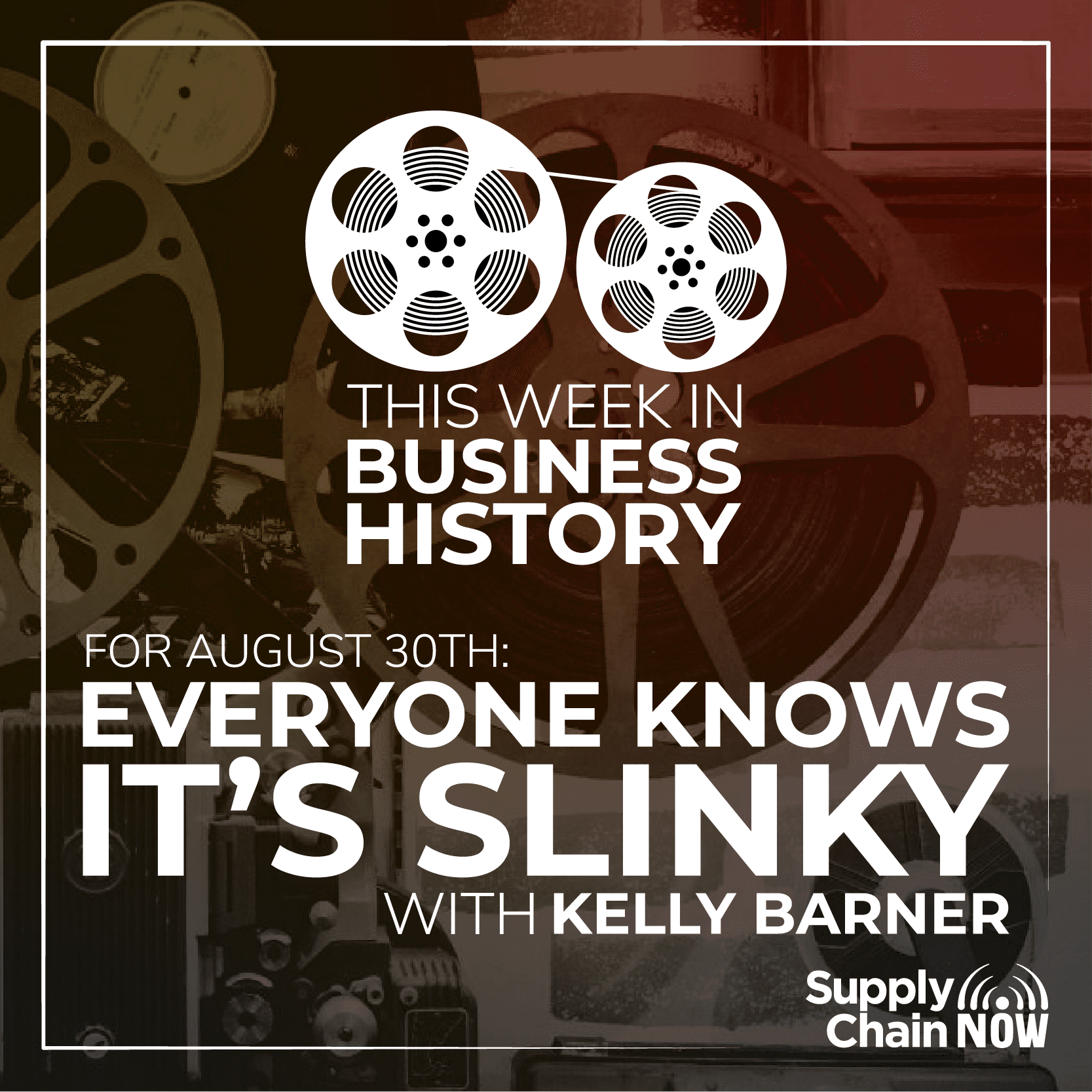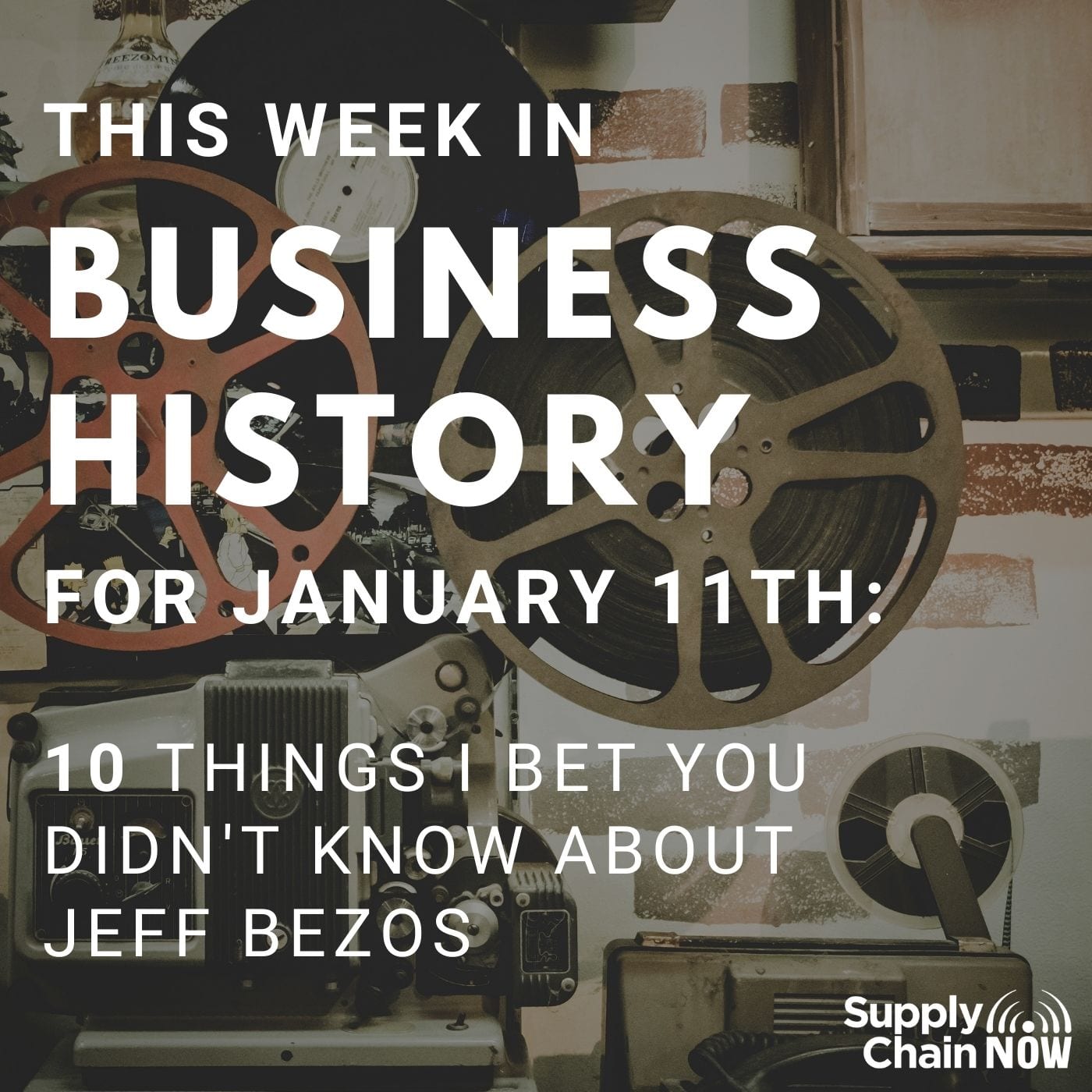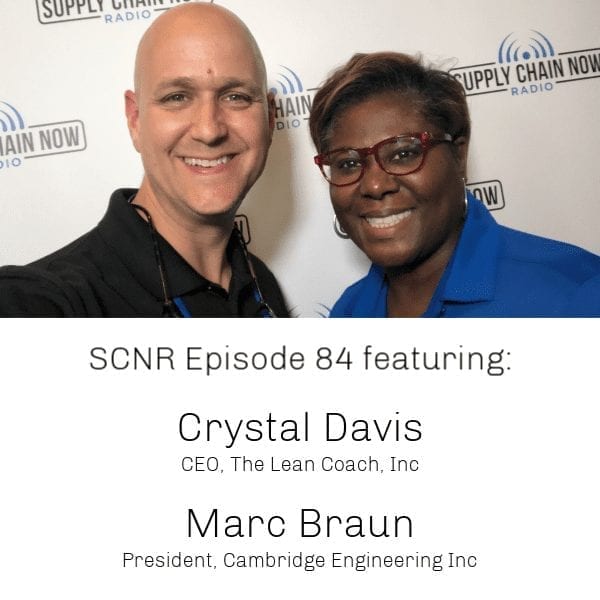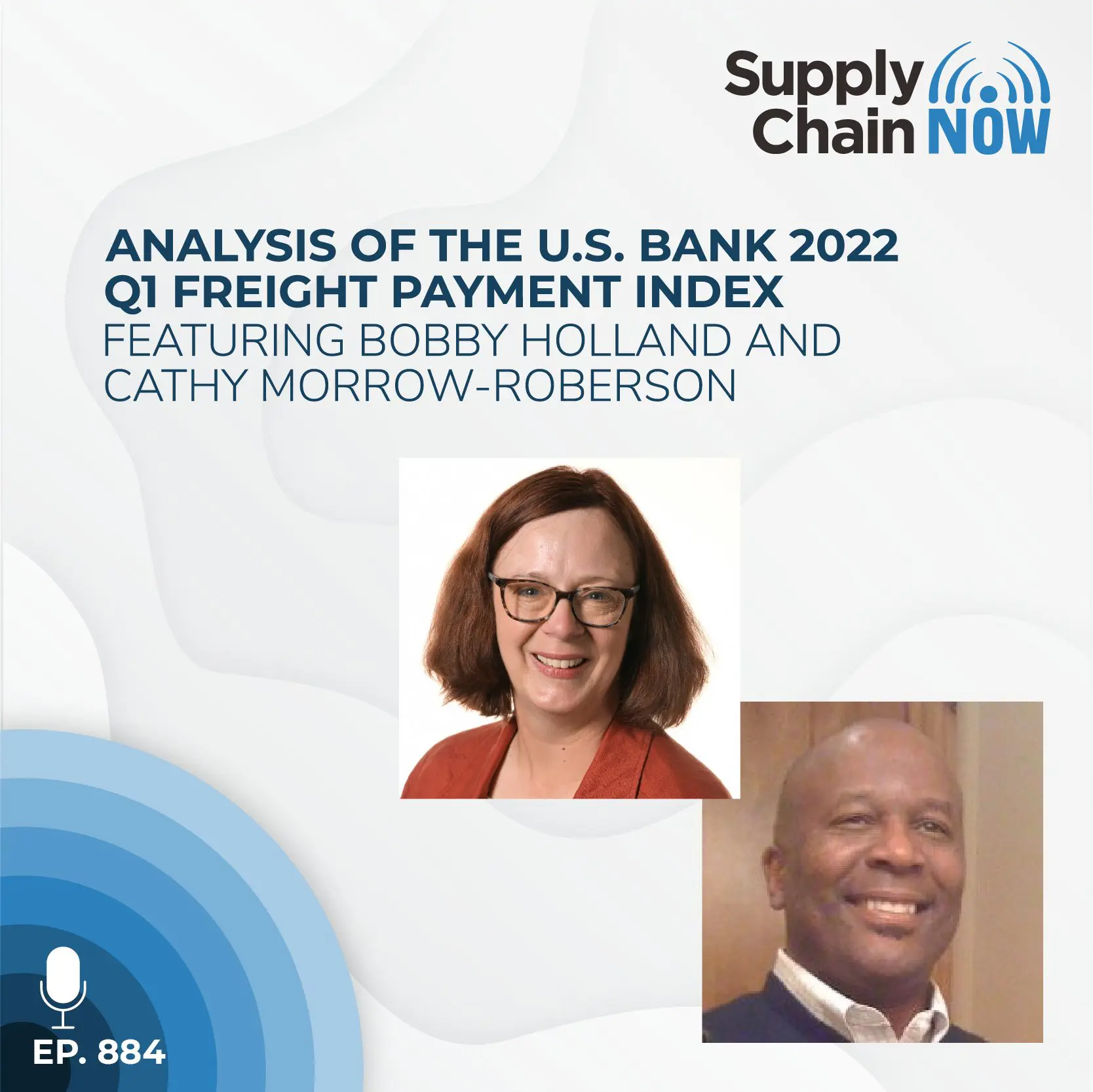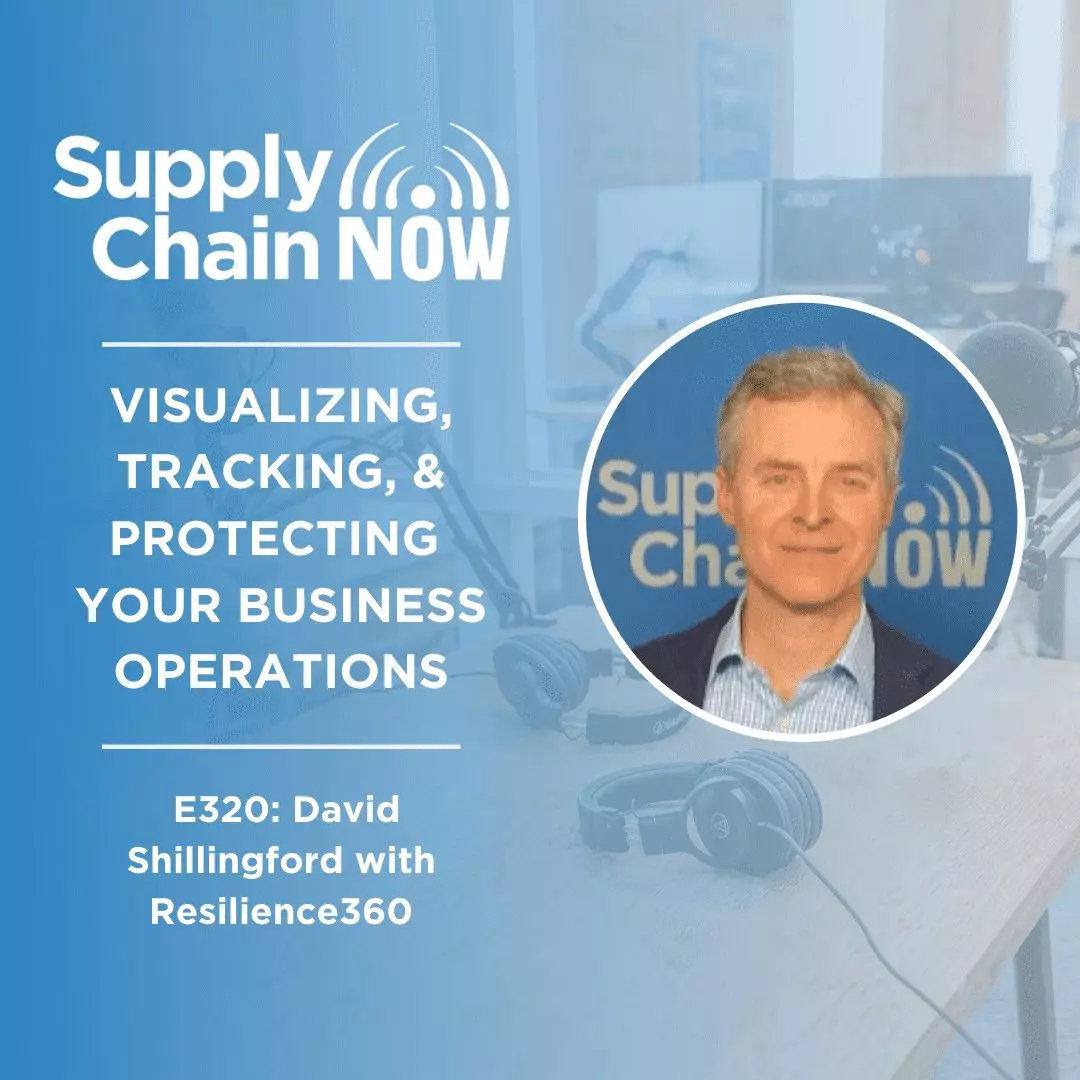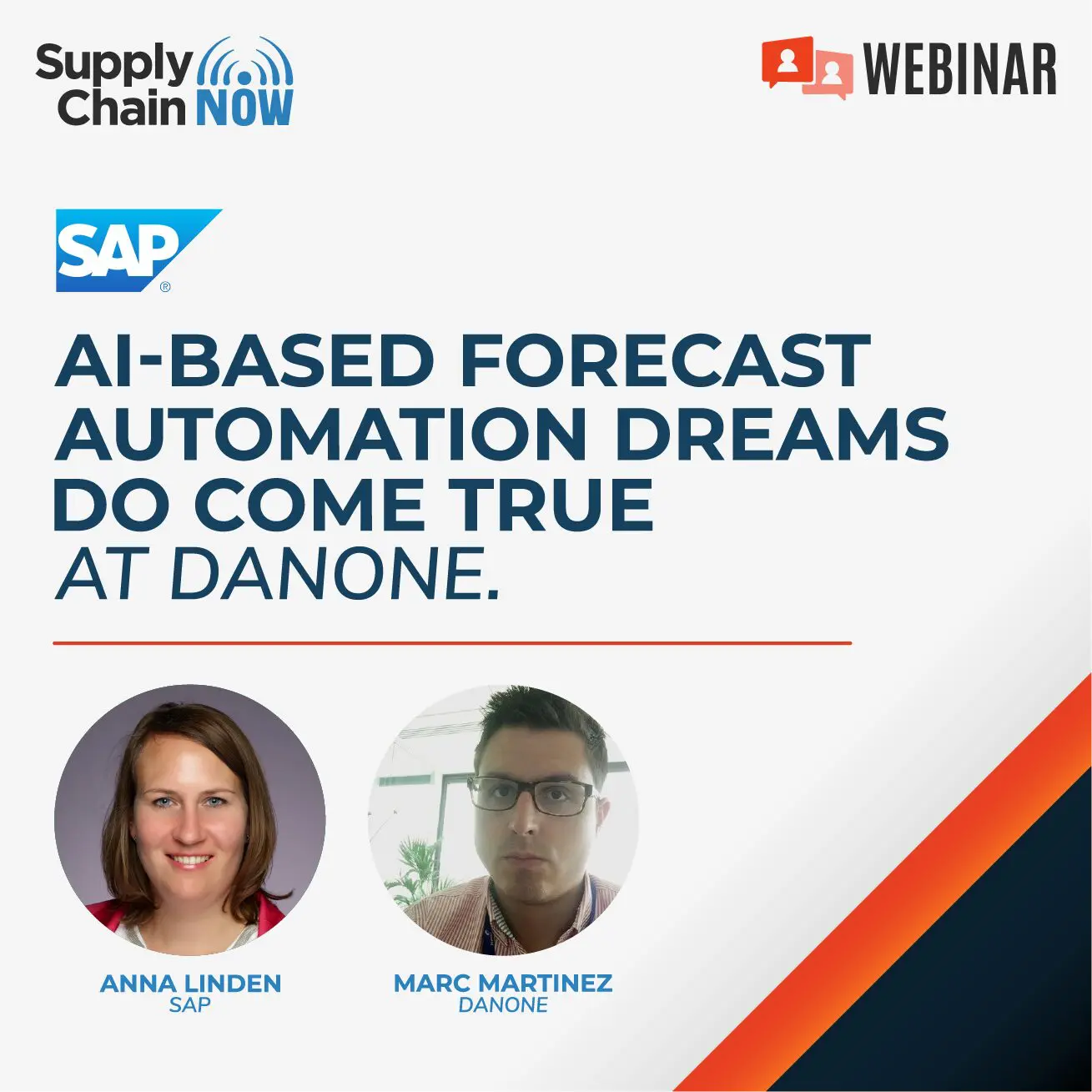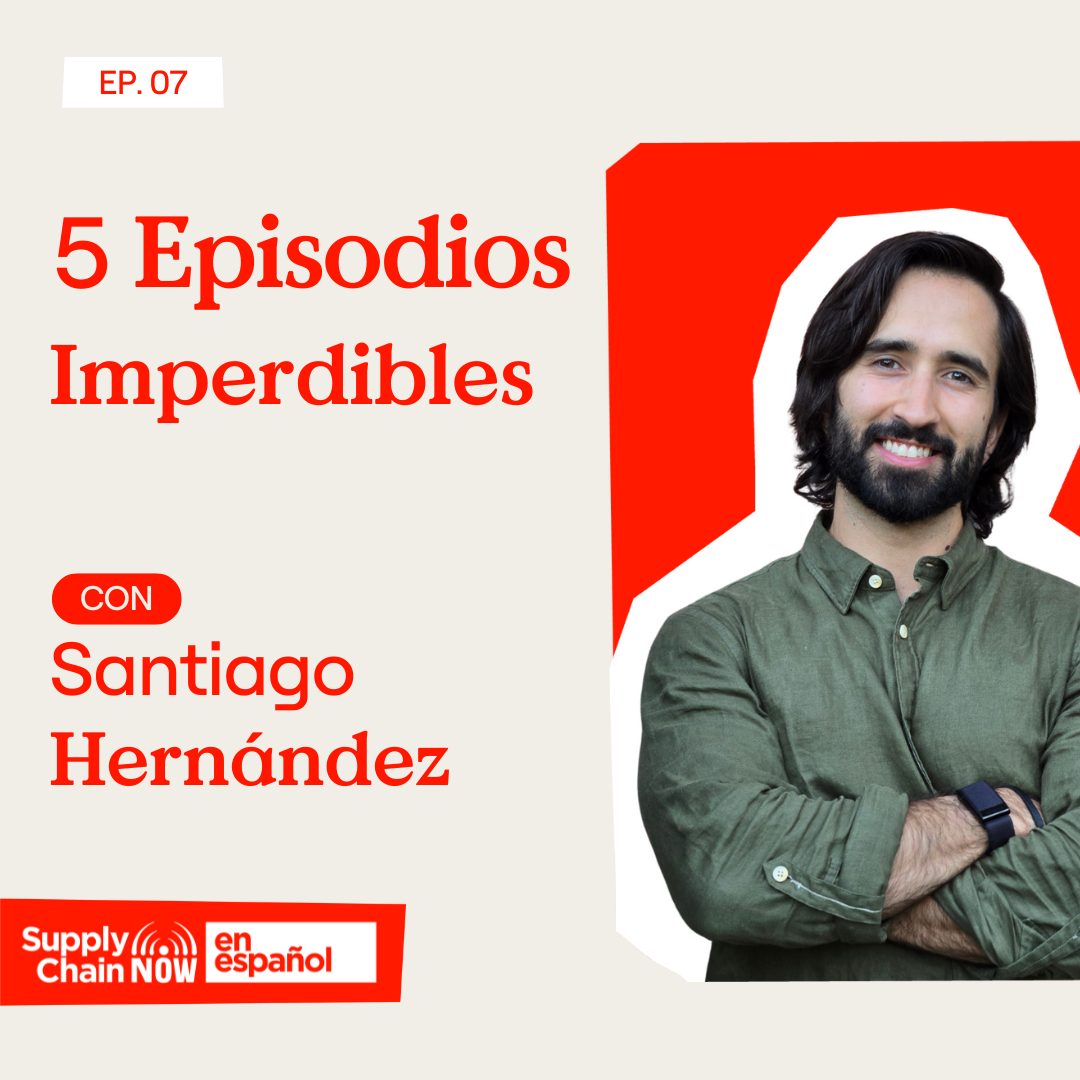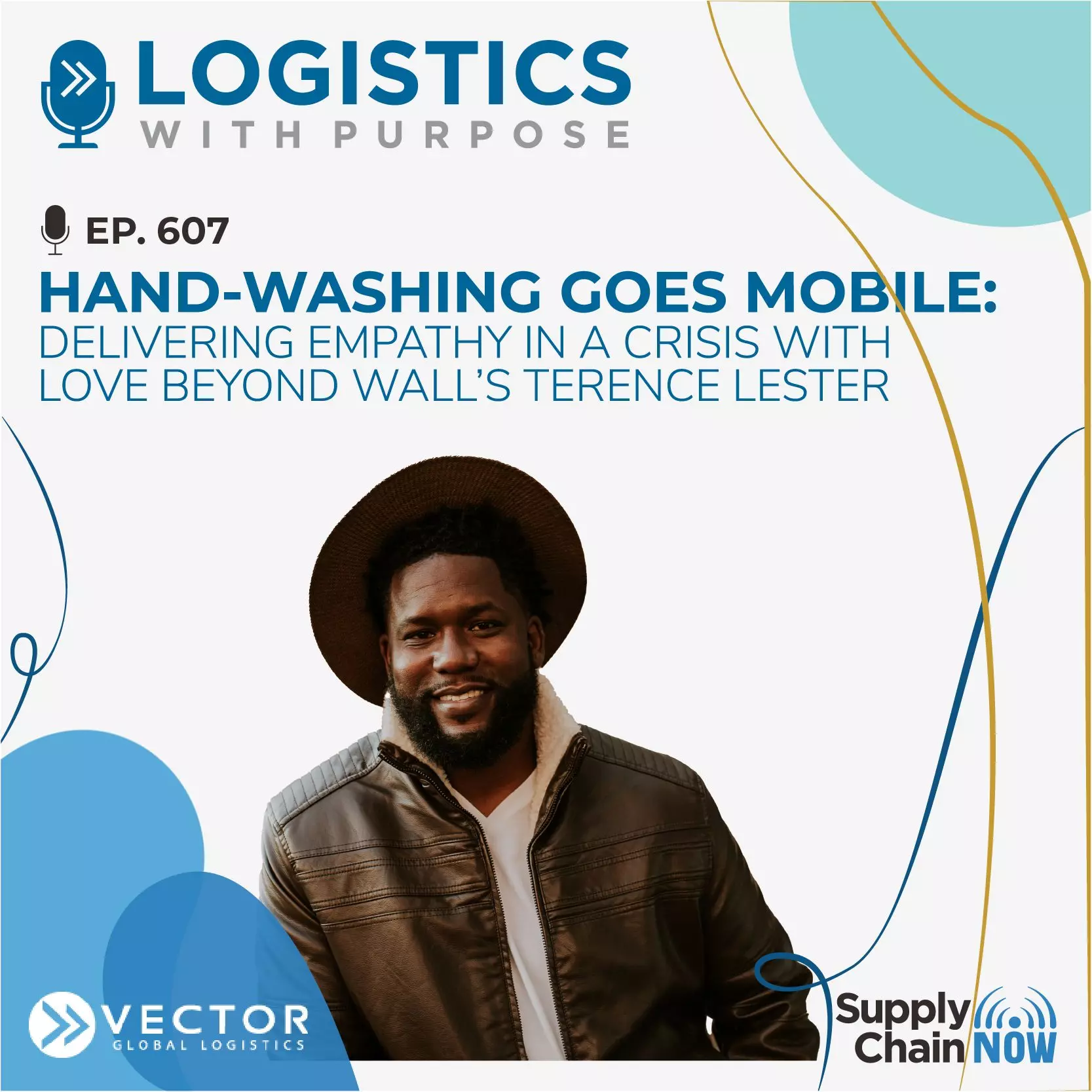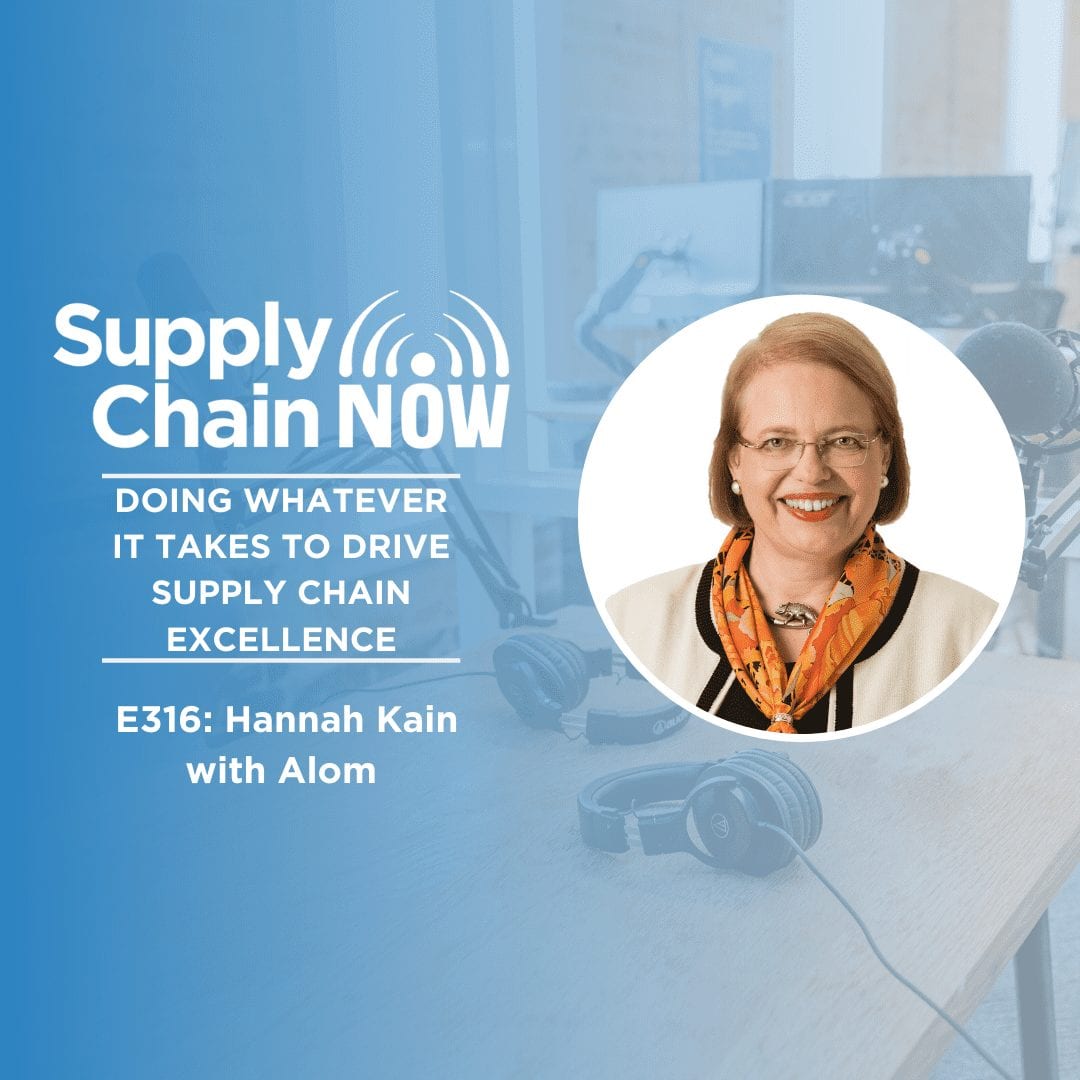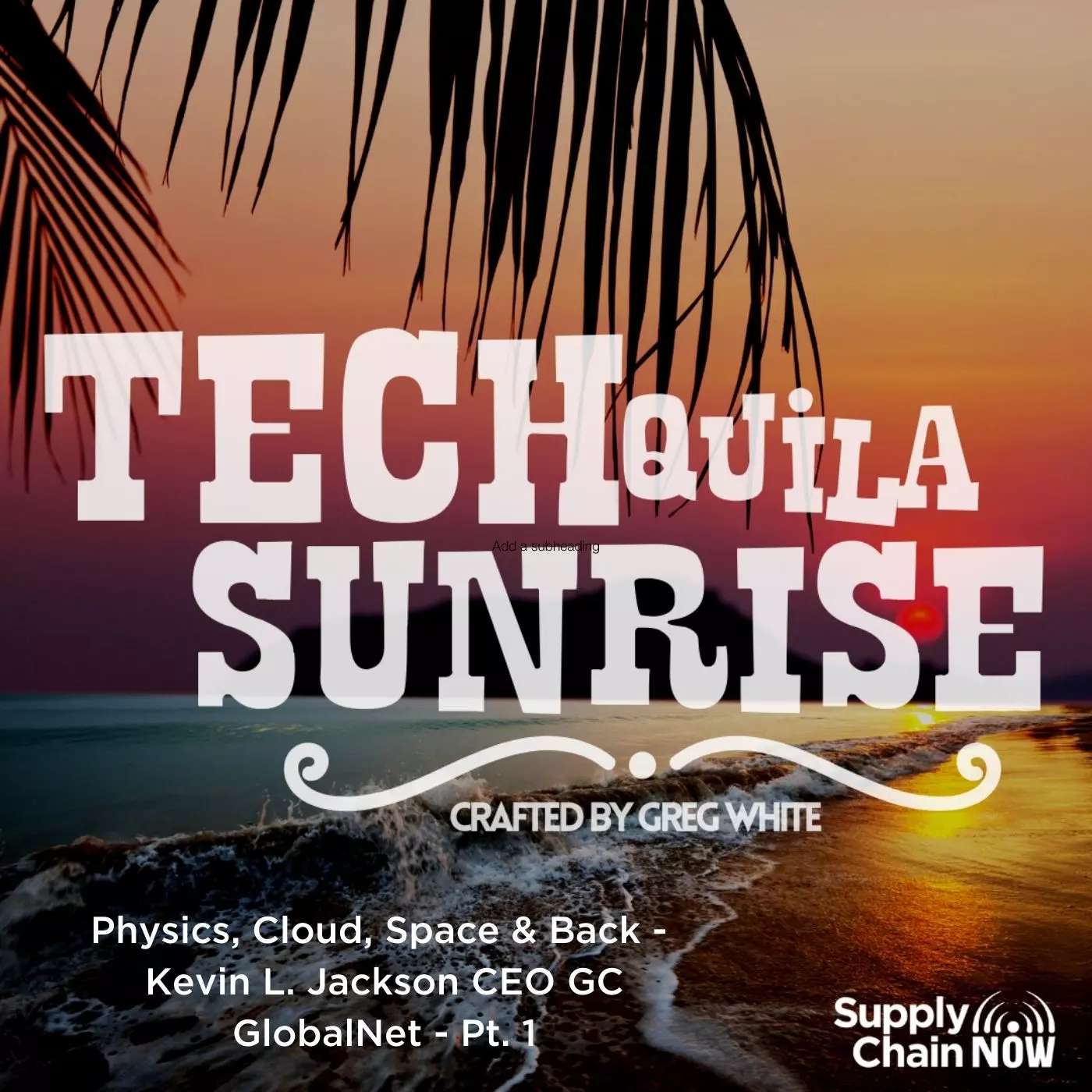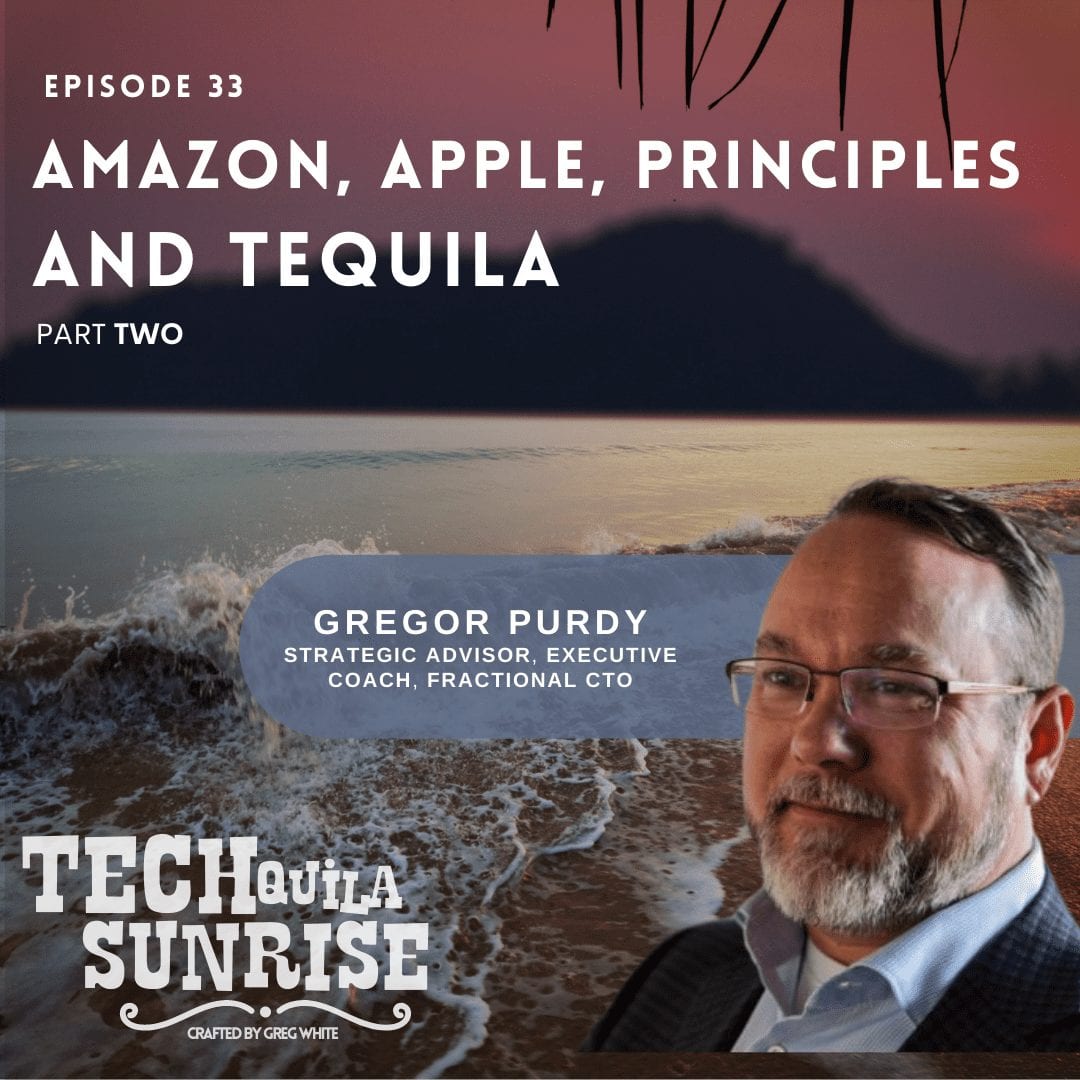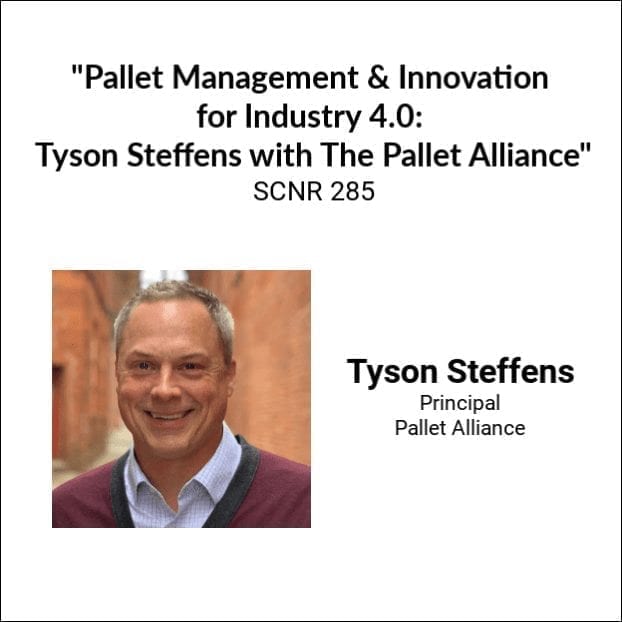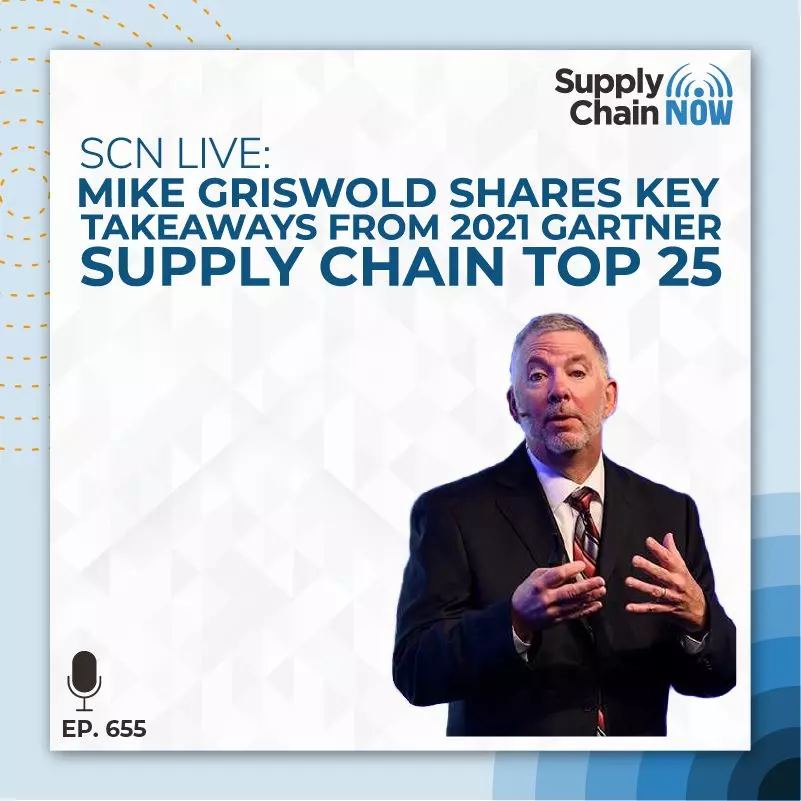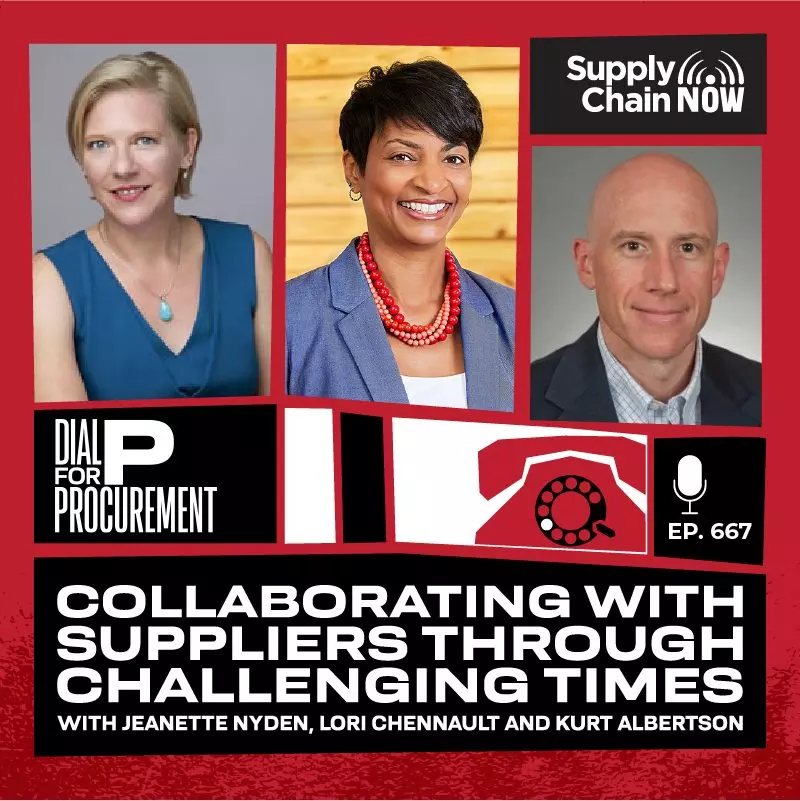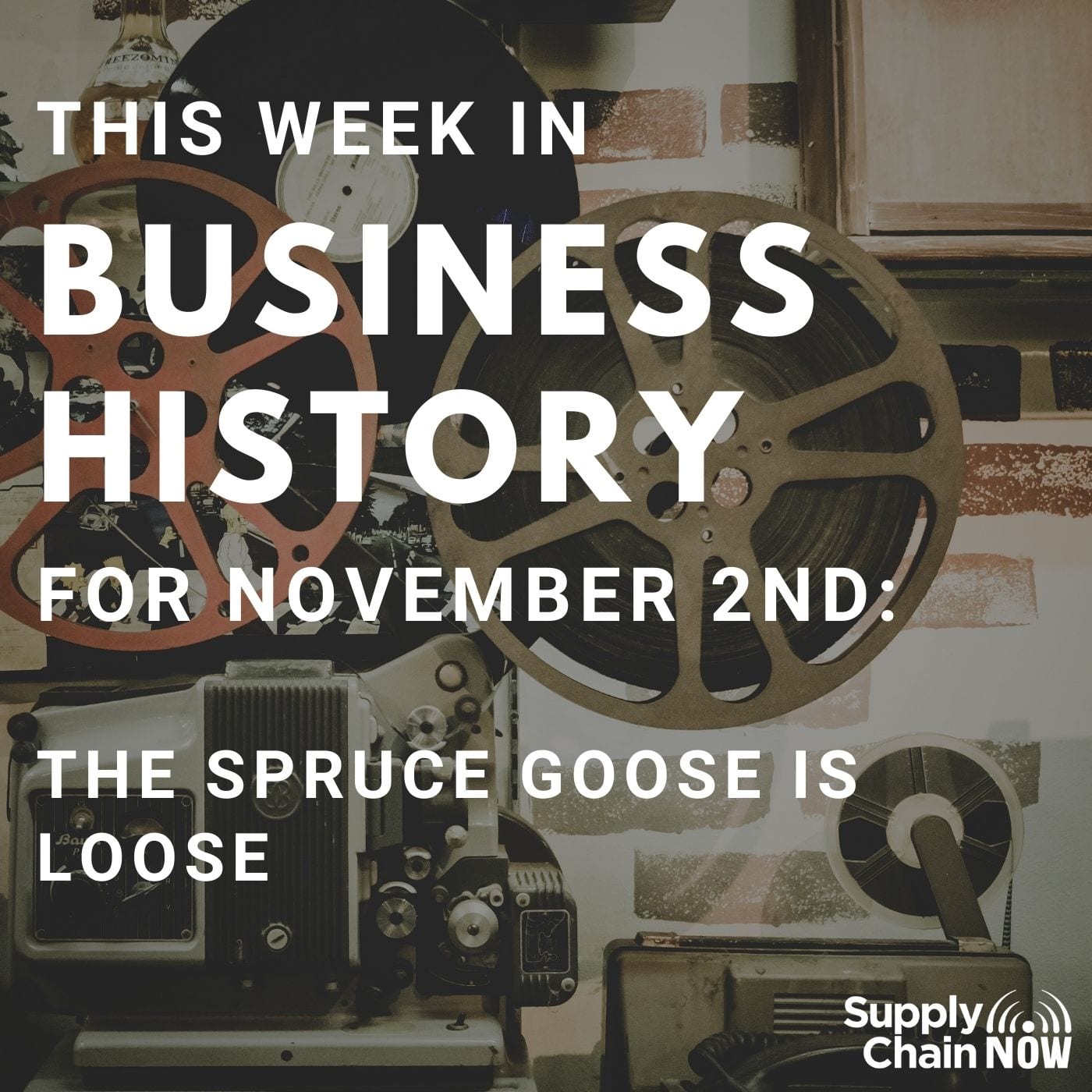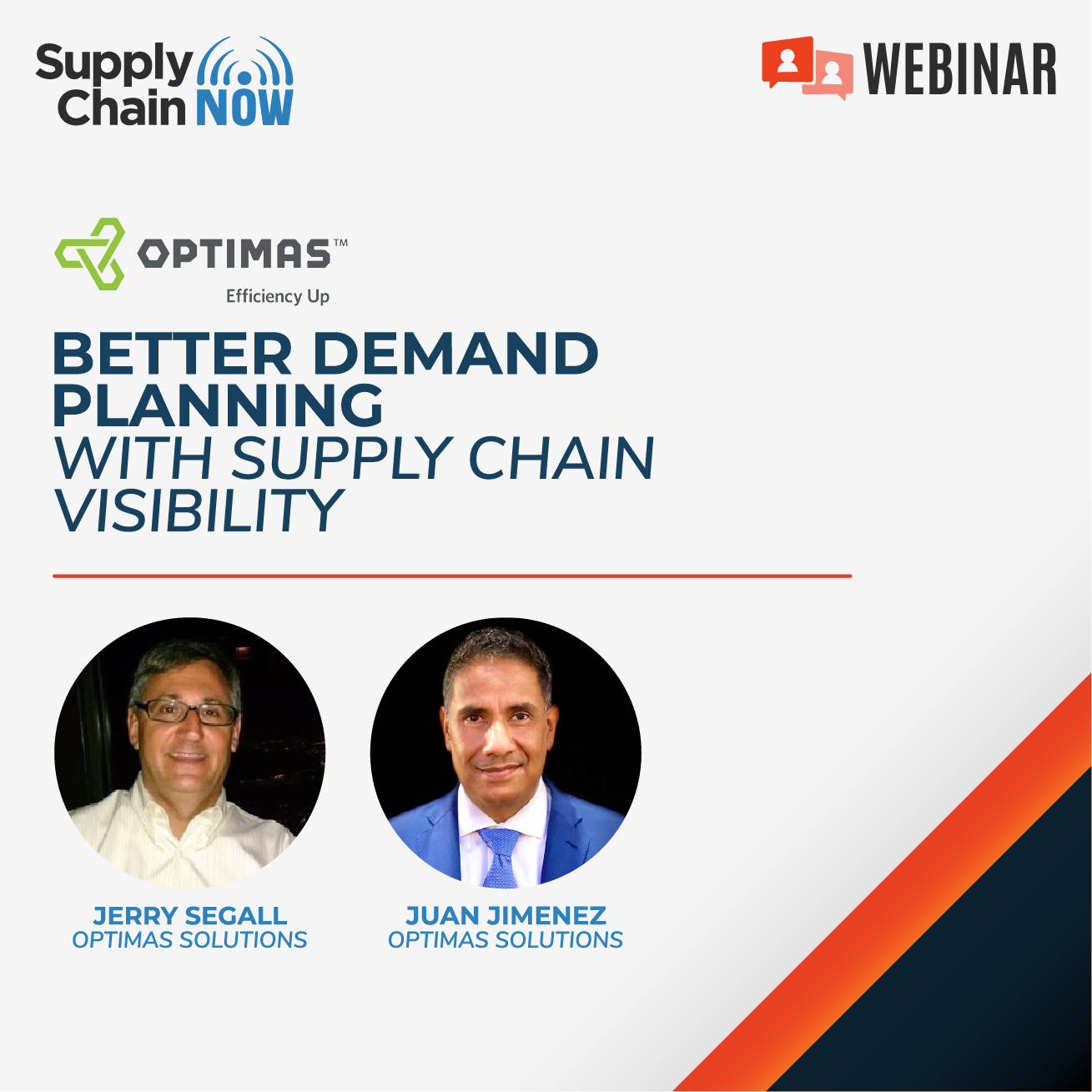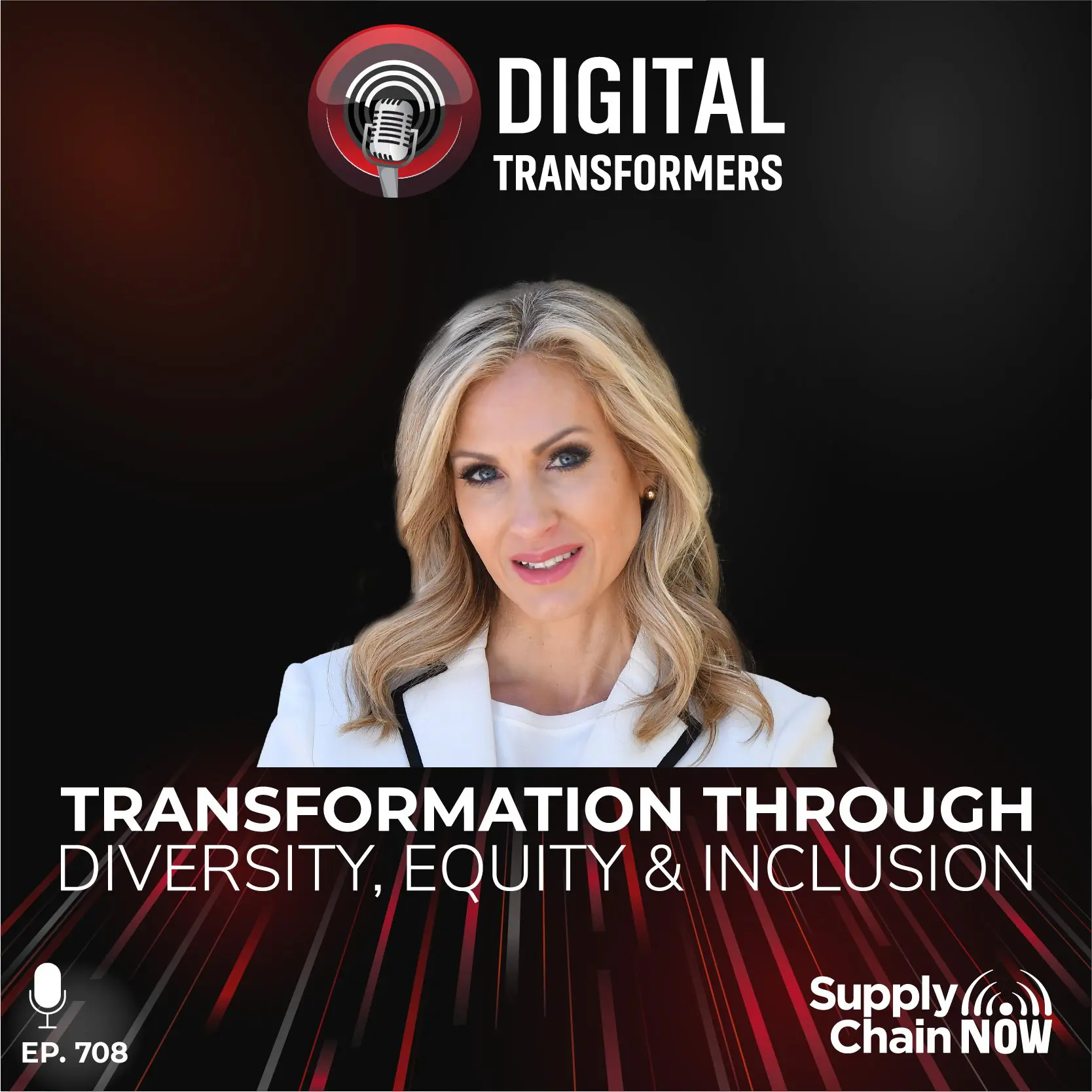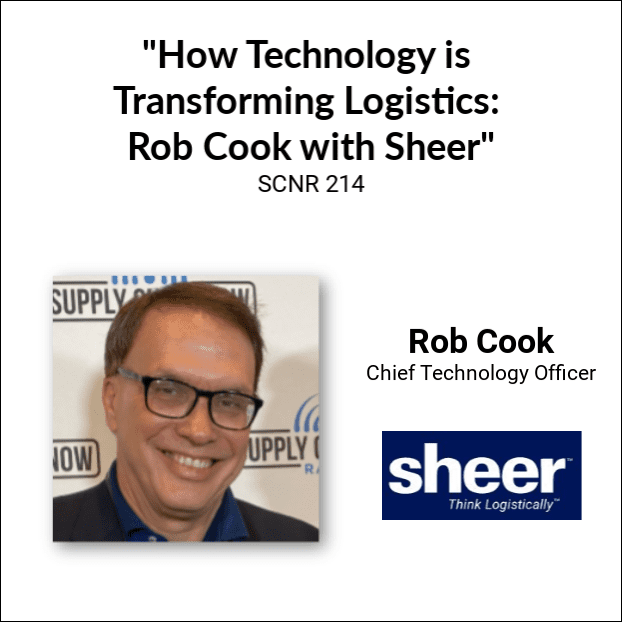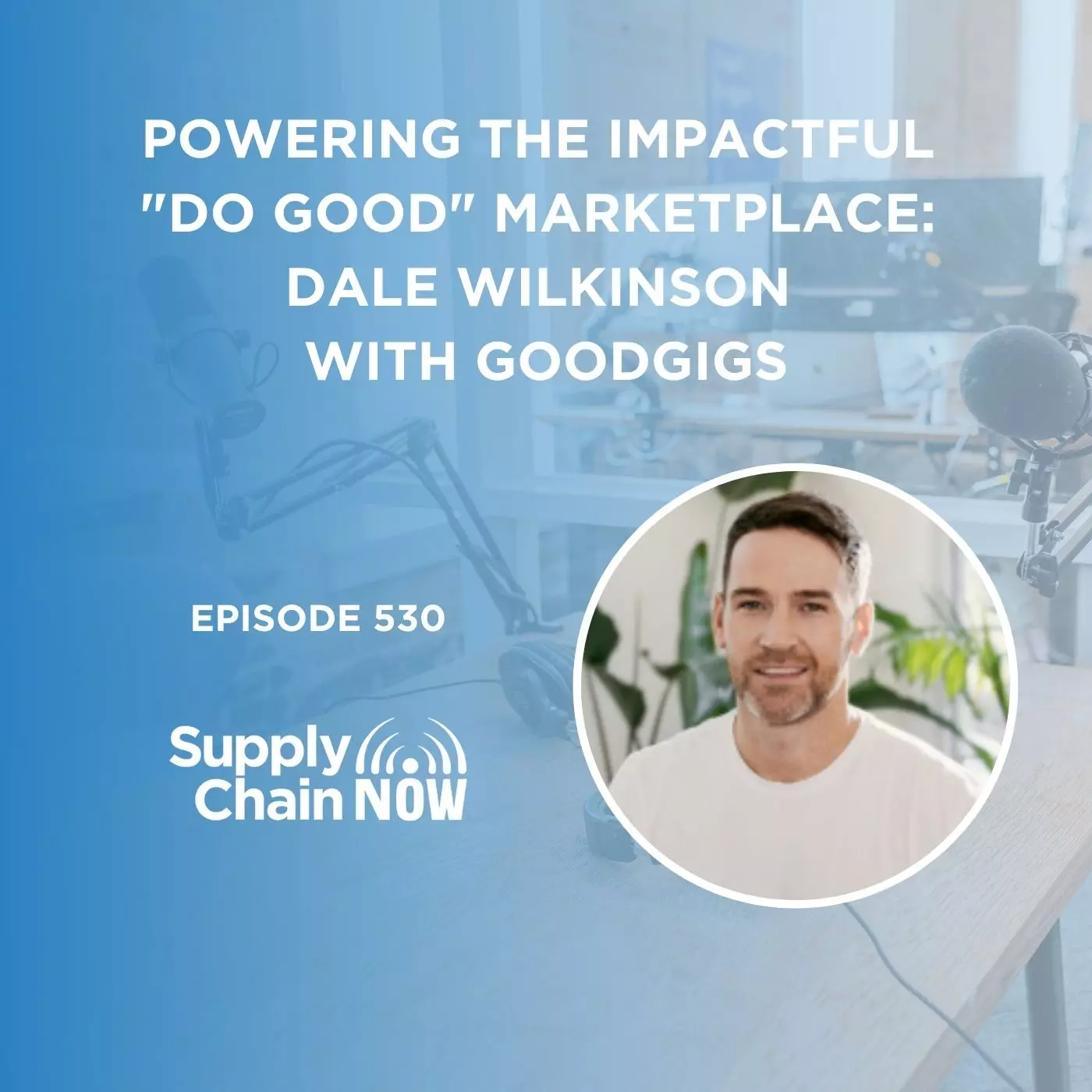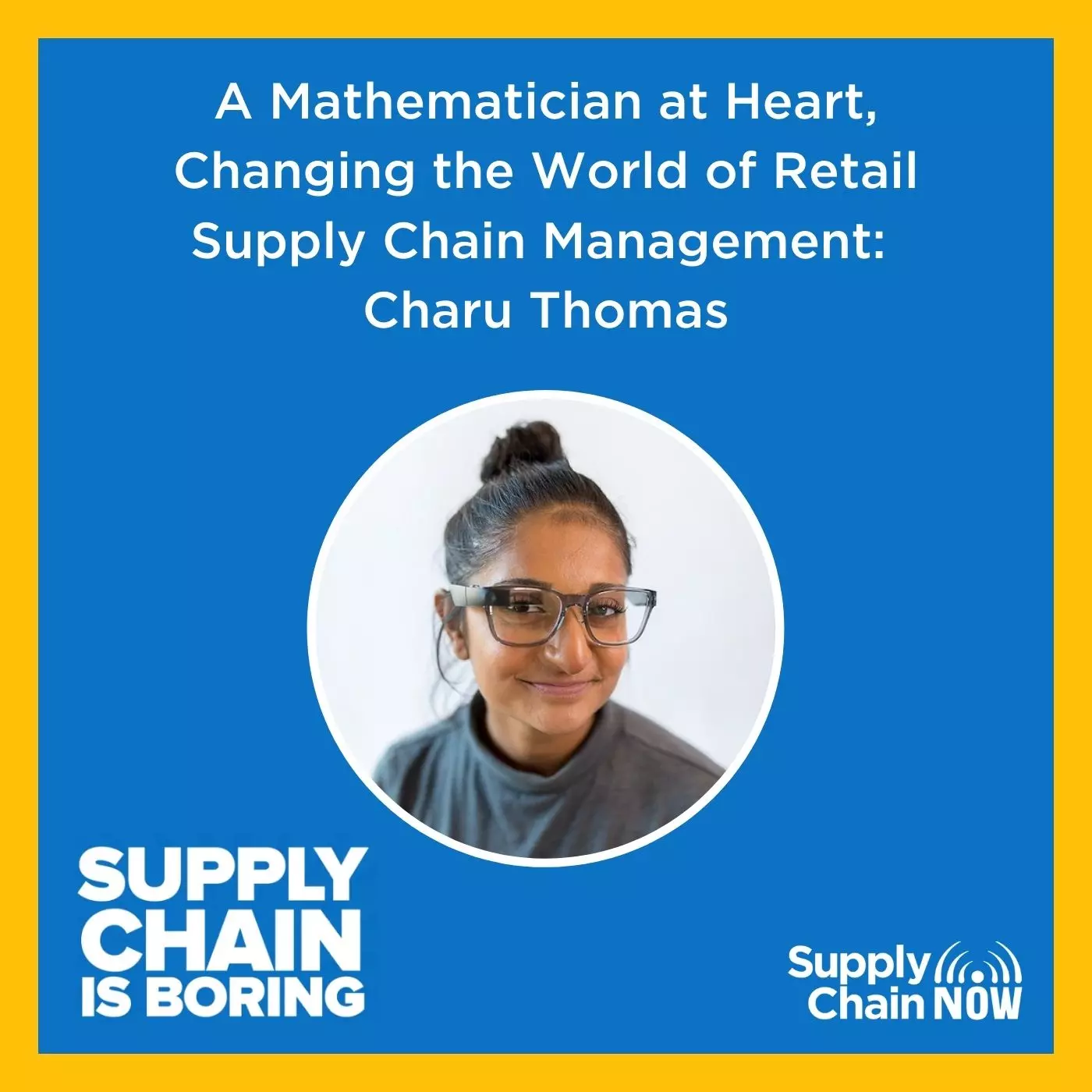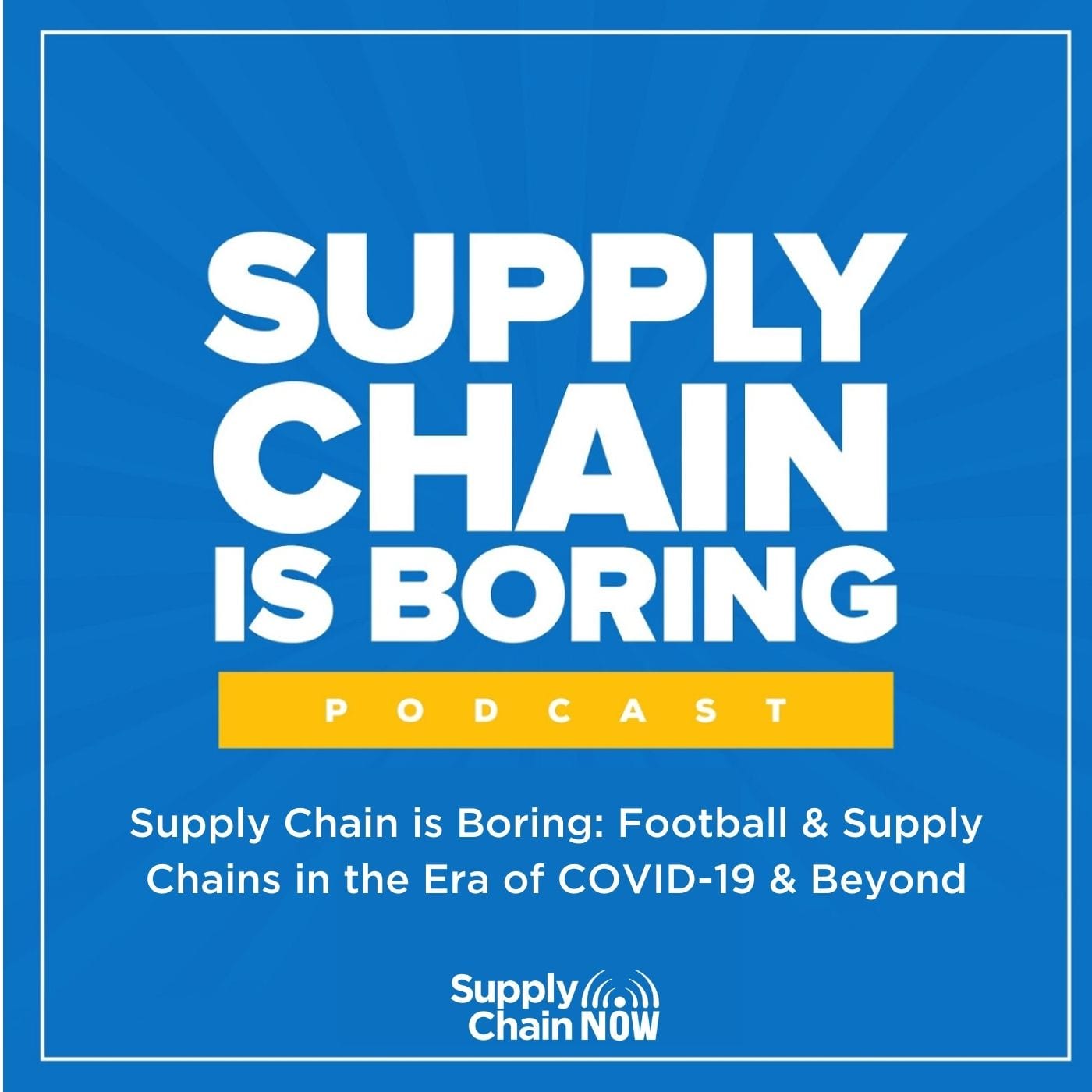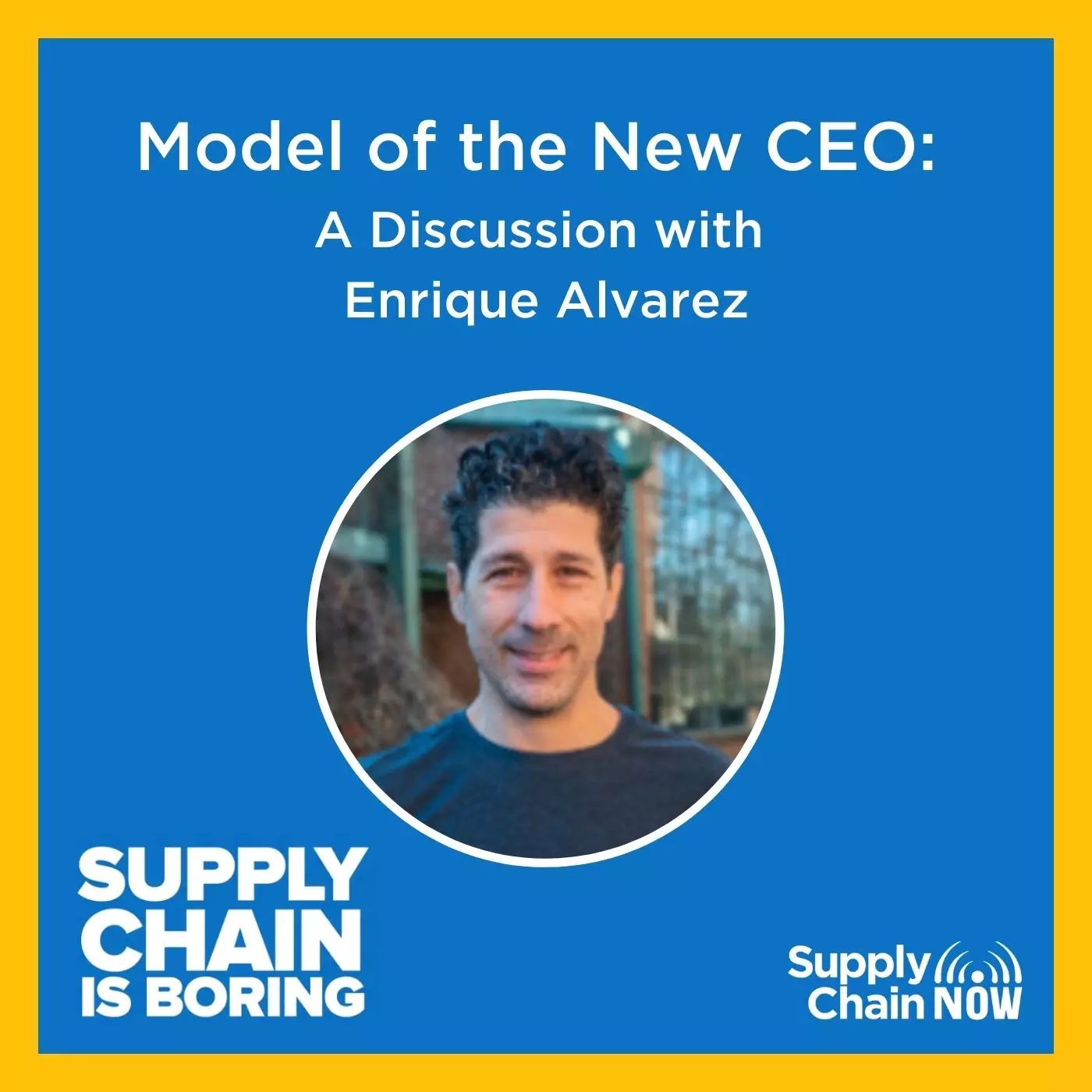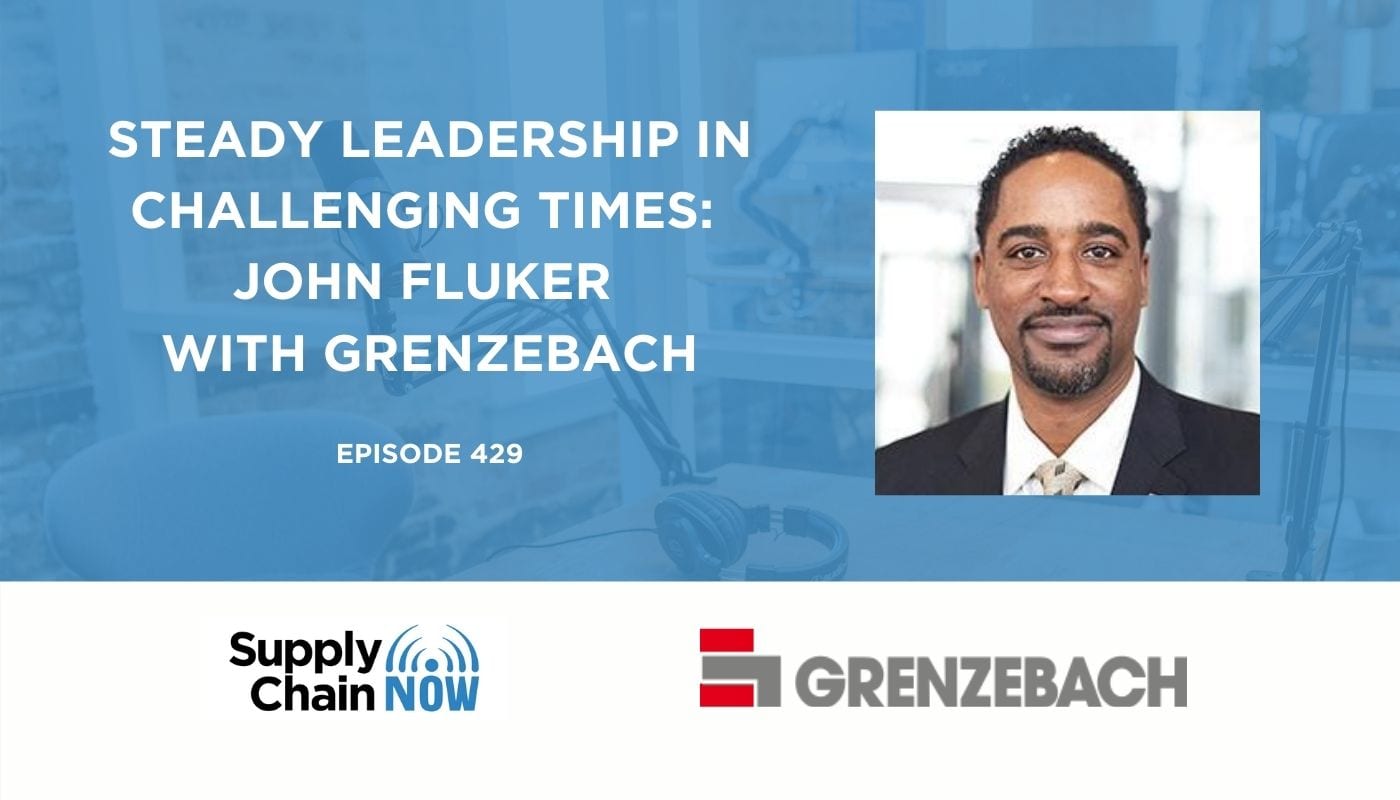
Episode Summary
“Let’s continue to educate ourselves and move forward, right? People make mistakes, but we have to accept that we are not perfect. And once we accept that we are not perfect and our imperfection, we can have serious discussions to educate ourselves about how we can be better moving forward.”
John Fluker, President & CEO of Grenzebach Corporation
When the world was hit by waves of shutdowns in March of 2020, it meant different things for different companies. Grenzebach not only sent all employees to work from home, they also had to make the tough decision to stop operations in their manufacturing plants and pull a team off of an installation project in Mexico – without abandoning the customer. They managed to work with the customer remotely so that the project could be completed without jeopardizing anyone’s health or safety.
John Fluker is the President & CEO of Grenzebach, a German-headquartered company that specializes in the automation of industrial production lines. He is responsible for all day to day management decisions and implementation of the company’s long- and short-term strategies for the North American, Latin American, and parts of the South American markets.
In this podcast interview, John tells Supply Chain Now Co-hosts Greg White and Scott Luton about:
· How each of us – and all of us collectively – have a responsibility not to ‘waste’ the unique choices and opportunities that we are being presented with in 2020.
· How Grenzebach is collaborating with customers to get the work done as safely as possible with minimal impact to their project timelines and teams.
· Why it is good for a company’s bottom line to be as diverse as possible.
Episode Transcript
Intro – Amanda Luton (00:00:05):
It’s time for supply chain. Now broadcasting live from the supply chain capital of the country. Atlanta, Georgia heard around the world. Supply chain. Now spotlights the best in all things. Supply chain, the people, the technologies, the best practices and the critical issues of the day. And now here are your hosts.
Scott Luton (00:00:28):
Hey, good afternoon, Scott Luton and Greg white with you here on supply chain. Now, welcome to today’s show Greg. Good afternoon. How are you doing? I’m doing well. And it is in fact afternoon. You saw me still a still a quick glance at the client had a double check that did the same thing. I looked out the window to make sure. Well, we’re really excited about this episode where we’re featuring not only our repeat guests, which we love our repeat guests, but a true manufacturer industry leader that you’re going to enjoy hearing from. We’ve got a lot of feedback on his first two appearances. So stay tuned a lot more to come in. Just a moment. Hey, quick program in it for you get started. If you enjoy today’s pot up podcast conversation, be sure to check us out and subscribe wherever you get podcasts from.
Scott Luton (00:01:12):
So you don’t miss conversations like we are going to have today. So with no further ado, Greg white, I want to introduce our featured guests here today. John Fluker president and CEO of [inaudible] corporation. John. Good afternoon. How are you doing? I’m doing fantastic. How are you guys doing today? Good, good, welcome aboard. Thank you. Good to be back. Welcome back to the last time before we dive in here, Greg, the last time we were together, John was at mode X and, uh, we actually, uh, corralled you for a second because you were busy. You were lighting the mayor. Uh, we got you at the supply chain now booth. We had a chance to kind of pick your brain on a minute on some of the things that you were seeing there. And then as we all know here in the States, while the war had already been changing globally, really the after that first full week of March, the world changed dramatically here in the States.
Scott Luton (00:02:05):
And we were just talking pre-show about, you know, all the ways that we have rolled with the punches and how it’s changed our professional or personal journeys. But nevertheless, I admire some of the things you are doing to keeping production moving and making sure we’re taking care of people down there. Yes, it was, it seems like an eternity ago, right? It’s definitely a different world, but when it was MODEC so pre pre COVID-19 here were really no really changed. You know what we’re doing in North America, as you remember Scott, we had a conversation previously about how it was affecting our team over in China, a little little, do we know a few weeks later it would have a drastic impact on our, on our business here in North America worldwide, too, right? I mean, it was cause you all have, um, you support. I think I saw somewhere 55 plants globally,
John Fluker (00:03:00):
Much more than that. I mean, we have plants in China, all of Europe, us. So between all of our markets and businesses, building materials, glass into logistics, solar, so, uh, hundreds and you know, plants. Yes, everywhere
Scott Luton (00:03:16):
On that note. Let’s so front end of this interview here today, we’re going to kind of refresh our listeners a memory of who you are and a little bit more about grins of Bach and your role, and then we’ll move into gaining some of your insights from some bigger picture topics. So Greg, why don’t we, why don’t we dive right in with John Fluker? Yeah. So we know you come by leadership, honest because we know from previous episodes and just from talking to you about your upbringing a little bit, but maybe you can share a little bit about kind of where you’re from and how you came to be a president CEO at Greensburg.
John Fluker (00:03:53):
Well, I appreciate it, Greg. So, uh, like for mine reminds you guys in the listeners that I am a Georgia boy, uh, born and raised in Southern Georgia, Waycross, Georgia, small town, about four hours South of here. I love it there. My parents are still there. Lots of family still down there. Uh, so I was actually just down there visiting a few weeks ago, visiting my parents for the first time in quite some time. Um, but I am a Georgia boy, um, left here, left Georgia in 92, went to school up in Boston with the MIT. Uh, there, I met my beautiful wife, uh, re married now almost 20 years. Uh, two children, 14, almost 15 to be a sophomore in high school. And, uh, my daughter is, is, is 12 thinks she’s grown, but she’s actually still only 12. And, uh, so trying to navigate the, you know, personal life and the business life or with everything that’s going on, but, uh, you know, happy to be back in Georgia, moved back here about 14 years ago and had been working with the grins of book ever since. Did you say MIT John? Yes. Yes.
Scott Luton (00:05:00):
That from your first conversation, talk, talk about, you know, that obviously that’s a, that’s a big brand prestigious university. Talk about the landscape up there as you were matriculating through, did you have to be smart and every single conversation?
John Fluker (00:05:17):
Well, you know, it, uh, it might be was, is a, is a very unique, uh, school. Um, you know, obviously coming from the South, moving up to Boston, there was a culture shock, first of all right. You know, and that first cold. And then that first, that first winter up there, I said, Oh, what is that? Right. And then it came down and I said, that’s fantastic. And then it snowed the next week. And I said, okay, that’s pretty cool. Then it’s no the next week. And I said, all right, mom, I’m tired of this. Can I come home? She was like, no, stay up there. But, uh, but I actually lived in Boston for almost 15 years after, after graduation. And, uh, really, really loved the city, loved the town and MIT itself was really, it taught me a lot, both from the struggles, uh, to, to make it through, through the relationships that that I’ve made. They’re still some of my best friends in life. Uh, we’re still, I’m still very much in contact with them. My wife obviously, um, and, uh, you know, played basketball there and all the lessons that I learned about teamwork, about balancing between trying to work through school and the rigors of education, but also understanding that you have to have friendships and fun and trying to balance all that was, it was a great, it was a great overall experience and I wouldn’t trade it for the world.
Greg White (00:06:36):
I just want to be clear on this. You played basketball at MIT.
John Fluker (00:06:40):
Yes. Yes.
Greg White (00:06:42):
You all engineer shot.
John Fluker (00:06:45):
You know, we have the angle. We knew exactly how to shoot a, uh, yeah, I was, I was more of a defensive specialist. I gave pick you, you could talk to my coach and back from my days playing basketball there, you could say your, your, your goal was not to score. Your goal was to shut the other guys down on defense. So, uh, but we had a great time still very much. Um, I have some friends from, from that time and still in a contact with coach. And before I told my Achilles, a couple of years ago, I was still going down on reunions. I tried to still play basketball, but I kind of had to put my basketball playing days down, uh, since that injury a couple of years ago,
Greg White (00:07:23):
You know, we’d keep playing until we just got beat to death.
John Fluker (00:07:26):
Exactly, exactly. Exactly.
Greg White (00:07:29):
That’s incredible. So, so you have to tell us a little bit about, um, your life in Waycross and what your dad did and how that might’ve contributed.
John Fluker (00:07:42):
So yeah, my life and weight cross was, you know, it is, it is amazing to this day. And I think I touched on it a little bit before the what my parents and, and the, uh, leaders in the community exposed us to. Um, I come from a family of educators. Uh, my mother was a teacher. Father was a teacher as well. A grandmother was a teacher. Um, and then between my parents and our church, um, they created what we remember. We talked about before the summer Institute, which was really a summer program for, let’s say middle school and high schoolers to really broaden our horizons, uh, expose us to things that we wouldn’t normally be exposed to. Um, take us up to Canada, um, the gold to New York city, things of that nature. Um, really, you know, when I talk about, you know, getting moving on from Waycross, let’s say it’d be having the bravery to go up to Boston from Waycross.
John Fluker (00:08:45):
It really comes from a lot of experiences that I have with some Institute, uh, made some lifelong friends, uh, during that time as well that I’m still friends with in contact with them. A lot of us had a fantastic experience coming from that, that program that was initiated by our church. Um, my late pastor ribbon, WebinarJam McKinney who passed away some years ago and his leadership. Um, but really when you, when he, when the reason, one of the main reasons I went to MIT was because of his suggestion, right? He was, you should apply to MIT. You would, he encouraged me to apply and I hadn’t even thought about it. I said, sure, why not? And, uh, you know, and ended up getting in and going up there. So it was really from his leadership, from my parents’ leadership, uh, exposure really helped me to be brave enough to take that next step.
John Fluker (00:09:34):
Um, and then, like we talked about before, my dad also, um, was very involved in the community. I’m very involved with, uh, what they consider, what they call it, the black action committee at that point in time, which was, you know, we celebrated Martin Luther King day before Martin Luther Kennedy was a, it was a federal holiday, for example, right. He was very involved in getting that, pushed in our area. And then he moved on and he was superintendent of schools and worked on grants and actually became, it became mayor, uh, some years later. So it was mayor of my hometown for eight years still called mere fluke.
Greg White (00:10:08):
That’s really good, good citizen at that point. Didn’t you?
John Fluker (00:10:13):
Yeah, so it was very challenging for me in high school. My mom was a, was a teacher at a high school. My dad was to a superintendent, was the chairman. The chairman was superintendent of schools. Right. And so, you know, I, I couldn’t do anything right. Everybody’s right on, Oh, senior skip. They had to tell my parents. I said, you know, you know, Friday’s coming up to senior skip day and I’m going to skip school. I hope that’s okay with you guys. Right. Because otherwise I couldn’t get away with it.
Greg White (00:10:38):
Yeah. Right. There’s no way if somebody would have ratted you out, but you know, it’s interesting how often we hear people talk about having had experiences like you’re describing with your summer. Uh, I’m sorry, what did you call it the summer? The summer Institute, summer Institute. So how many people have gotten to go to other parts of the country or even world, and, and it does take a lot of that fear, right? That homesickness, whatever you want to call it, a way to see that people so far away are so different from you. Aren’t so different from you. Right. And I think, I hadn’t really thought about it the way you just said it, John, but it just makes it make so much sense. It kind of takes away the fear of that kind of change or transition in your life. So that’s really, really powerful. And I think also since we talked about Boston and Canada, I think it’s important for people to understand that Waycross Georgia is just North of the Okefenokee story.
John Fluker (00:11:40):
It is in the middle. One of the major entrances for the Oakland Augie for Nokia swamp is, is, is Waycross.
Greg White (00:11:46):
So, uh, Scott recently spent a vacation down there with some of your neighbors, the alligators. And I don’t think quite understand, first of all, when I moved here, I thought the Okefenokee swamp was in Florida. I did not realize it was in Georgia. And I don’t think people realize the, the cultural and the climatic difference that area of Georgia from all the places that you went to, that is not an insubstantial change. So what’s, what’s really important. I think for folks, perhaps no, to your point, Greg, is that, you know, there’s a society out there that measures the darkest skies in the world, right? Cause if you like a astronomy, you want dark sky, so you can really see the stars. And that is a certified, um, that area. And I cannot remember the name, I want to say Stephen F. Austin state park was where we went with my family. And because it was certified as one of the darkest skies, I think in Western hemisphere, certainly the country. And that really speaks to just how isolated, how isolated and how ruled certain parts of Georgia, but certainly South Georgia can be, I mean, you’re talking, um, uh, rides, we came on, John, you were kind of giving us some points of reference for 20 other other towns, get, give us that again for our listeners.
John Fluker (00:13:05):
Yeah. So Waycross is situated, you know, like about an hour North of Jacksonville’s about an hour West of Brunswick. Uh, so it is the, uh, the, let’s say the working hub for that area, for that area of South Georgia, where County is, uh, one of the largest counties in Epic. It is the largest County in the state of Georgia, but you know, that’s largest by land size, not by population, right. So is this, uh, when you think about that perspective, how much land is down there versus the population that area you can see that some of those areas are pretty, uh, know sparse, but Waycross, Waycross is we can sort of way cross the big town, the big city down there. So,
Greg White (00:13:45):
Well, we had a great time, uh, you know, we were owned OB Okie Fenocchio with a little seven horsepower, uh, hand controlled, uh, trolling motor. And while my wife had my kids very close, cause we saw snakes and alligators, all that stuff. It is, it is such a pretty stretch of land. Um, great people, beautiful. We really were able to disconnect, um, you know, for a weekend or so, uh, and you know, um, really enjoyed our time down there. So anyway, sorry, I didn’t mean to, uh, move into a, I think that’s an important perspective because I think whether, you know, whether you’re from maize, Kansas 1500 people, right. Or you’re from Waycross, Georgia, which sounds like a metroplex compared to where I’m from, um, you know, having those experiences is really important. And we hear that over and over again, people who, who are leading or have great ambition, they kind of broke out of, of the shelter of their home area at, at a fairly young
Scott Luton (00:14:52):
Age. Right. And it does just kind of, I think, I think it’s really important to do that. I guess the reason that I emphasize that is because we want people to learn what some of the keys of leading are. And one of those things is to experience things outside. Yeah.
John Fluker (00:15:05):
Your comfort level. You, you want a hundred percent, I, 100% agree with you. So it doesn’t, to me, it doesn’t matter where you settle the, where you live or where you grew up. Right. What is important is what have you experienced on your path and your journey? Right. And for me, you know, it was important for my journey to take that step up to Boston, to really experience something completely different than what I experienced in my hometown of Waycross. But, you know, always that passion, that love for where, where I’m from never, never left. You know, I always consider myself a Southern boy, a Georgia boy country, boy. So I never, never lost that, that, that love for my area. Uh, but you know, I was extremely, uh, loved my time in Boston as well. And they’re completely different areas that I can tell you.
Scott Luton (00:15:56):
Yeah. That’s for sure. Well, so I think that’s really interesting and now I get why, I mean, grins Chibok is, is a German based or at least German founded company. Right. So no fear there either. Right. You just, I mean, again, just more people.
John Fluker (00:16:15):
Yeah. I mean, for me, I think you, you know, I talk about even the, my first job after college was, uh, I traveled quite a bit to, you know, East Asia, right. Because, you know, and so that was a completely different experience going over to Taiwan and Japan and places like that. And, uh, then coming to Greensboro, um, you know, we’re still a German based company, uh, where I’m responsible for North America, uh, location and our activities and Marcus here in this region. Uh, but you know, being able to connect with my colleagues in Germany, my colleagues in China, uh, but I just loved the, the, the diversity, uh, that, uh, is inherent in our company based on where we are regional, you know, talking to my colleague in India or my colleagues on in Brazil or in Greece or wherever, you know, Russia, you know, we come together for our international sales meeting, the, the differences and the diversity that we all bring a different perspective really believe helps us be a successful company,
Scott Luton (00:17:16):
Undoubtedly well, and you all had a lot of different experiences, but right now we’re all kind of experiencing the same thing. So can you share with us a little bit about how the team, the teams you’ve dealt with your team have navigated 2020, this crazy wacky?
John Fluker (00:17:37):
It is, it has been a very challenging year and, uh, you know, one on our hand we had to, we had to figure out how do we maintain and continue to do business, uh, and the current environment
John Fluker (00:17:50):
That we’re in. Um, so it was very early in the, I think, um, you know, when, you know, we, I think we were shut down in mid March and, you know, obviously it kind of varies state by state. Uh, but at grins and buck, we, you know, we made the decision, um, to basically close the office, uh, so that we did not. So we listened to impact on the manufacturing, right? So the guys who were working in manufacturing, obviously they can’t work remote. So we made a decision at that point in time to take everybody who could work remote and made them work remotely. Um, and I’ll never forget this. Uh, my pastor James Ward, that from our church, he did a sermon, maybe one of the, the first Sunday, because we also closed our church as well and went to basically a streaming services. But one of his first sermons was don’t waste a pandemic.
John Fluker (00:18:46):
Right. And, you know, and, you know, speaking to, from a, from the biblical standpoint, he was like, you know, you can become a closer with our religion and our God, but also talk about how, you know, all this time that we’re spending at home, we should utilize that time to be closer with our families. Uh, but I also adopted that and, you know, and thought about it from the business standpoint as well, is that we’re not going to waste the pandemic. There are going to be lessons that we’re going to learn, that we’re going to solve problems that we didn’t even know existed. Right. And we’re going to come up with solutions that could be longterm solutions and create, uh, things that will, that will help us moving forward as a business. Um, and so we have really taken that as our, as our mantra moving forward that we want to be creative.
John Fluker (00:19:37):
Uh, we want to, you know, find solutions that, that, that are causing us problems today, but our furthest solutions moving forward. So we develop what we call the collaboration that because one of the biggest challenges we had was that we had, we had an installation in Mexico, one of our big customers, and then we had the travel advisory level for a travel advisory. So I had to bring my whole team in the middle of an installation home from Mexico, but we can’t just leave the customer without a solution. So we worked through the problem and created a solution that allowed us to finish the installation remotely, you know, with our team of experts, working around, setting up, you know, uh, uh, um, camera systems diving in, we created what we call it, a collaboration app, which allowed us to be more interactive with our customers out of that experience, but really finished the installation. Um, actually finished it on time, if you can believe that.
Greg White (00:20:34):
Wow, that is really impressive. You know, John, a lot of the companies we’ve talked to, I mean, think about this Scott, Clorox mandolins, and a number of others, their volume exploded, right. Because they were on the consumer side and just on the right side of consumer side. And I have to tell you, I’m sure we’ve talked to other folks, but this is the first one that I remember where demand or, or operations or activity really contracted so significantly. Right. So that is a totally, that’s a totally different issue, obviously. And it’s really interesting to hear that perspective because I think for us, even us, it’s supply chain now it’s been largely business as usual, maybe even a little bit more. Um, and for so many of the companies we’ve talked to, but you had to really be intentional about not getting complacent as, as operations were shut down.
John Fluker (00:21:37):
Yes, definitely. I mean, when you, when you, when you talk about how do we do business, right? We, we, I think there’s this new thing that’s called the new normal. We don’t know what the new norm was going to be moving forward. Right? Yeah, exactly, exactly. So w but we have to continue to work in a situation that we are today and we have customers, we have needs, we have projects that were ongoing, right? Some projects get delayed, um, you know, some projects, uh, move differently, but we still have to figure out a way to execute. Right. And, and still execute efficiently. Right. Because, you know, uh, our customers are still, uh, uh, relying on us to provide services for them. Uh, but now we have to be, we have to do it differently. We can’t, I it’s harder for me to jump on an airplane.
John Fluker (00:22:24):
You know, it’s easier today will somebody today, but it was what you couldn’t fly anywhere right before for quite some time. Right. You couldn’t even get a flight in, you can talk about international travel, you know, trying to get somebody from Germany into the country to steal a challenge. Right. So, you know, how do we use technology to get past the barriers that have been put into the place and, and which one of those new developments and new technologies are going to continue to move forward and drive business for us moving forward in the future as well.
Greg White (00:22:55):
Yeah. I mean, among your other challenges, there have been a few that have actually been accelerated. You had a construction effort at your office, right? So
John Fluker (00:23:05):
Yes, yes. So we were praying, we were planning a renovation for actually quite some time and actually had the final plans at the end of last year and went through the overall approval process, got everything approved. And, you know, one of the biggest challenge that we thought we had at the time was, was, okay, what do we do with, cause we’re, we’re rid of it in the office area, in our, in our office. So now what do we do with everybody? You know, while we’re doing this renovation and we had all these plans of putting people here and moving them around here, and then, you know, we started working from home, which solved those problems. So now we’re just running through with the renovation completely, um, to try to move and move forward with that, to get it done as quickly as possible.
Greg White (00:23:48):
Well, so there’s upside there. That’s good. So I’m curious, because you all work with so many factories, the challenges of physical distancing and the constant cleaning and the various various things you have to do in a manufacturing facility. Can you tell us a little bit about how you and your customers have, have navigated that situation?
John Fluker (00:24:15):
So it, it really is a collaboration between us and our customers to make sure that we navigate it as safely as possible while still trying to get the work done. Right. So, you know, I think a very early on, um, as far as the cleaning was of one of the first things that everybody was adopted, and as we understand more and more about the virus, our strategies have changed. So if you can’t social distance that we require max to be worn, for example, um, just adopting those, you know, those, what the guidelines really suggest, uh, that we do to be able to be as safe as possible to continue to work and our, and our manufacturing facility in our office. Uh, we adopted the, when we, we came back to work at a small port, even, uh, maybe most of the offices still working remotely, but, uh, we still do have some, you know, we wanted to come back because I need to go back to the office every now and then.
John Fluker (00:25:05):
And, you know, we have engineers who need to be working in the office. So we have a, uh, a mask policy, uh, unless you’re in your specific area, right? So if you’re at your desk and your social distancing, then you don’t have to wear a mask, but as soon as somebody comes into your area, or as soon as you get up and walk around in the office area, we require you to wear masks and our manufacturing facility. We actually, uh, that’s one of the things that we’re pretty lucky about from, from a Grinsburg perspective, we have quite some manufacturing space. So we were able to change our manufacturing workflow to create distance, uh, between our people, uh, working on the floor. So as, uh, so, but as far as when they’re working in their particular area manufacturing, they don’t have to wear masks, but as soon as they congregate or get closer together or come into the office area where we don’t have a, she must face and we’re more congested, we require mass.
John Fluker (00:26:01):
Uh, the cleaning is something we do on a constant basis, right. Coming in and doing constant cleaning to make sure. So it’s just, you know, just following those, those guidelines that have been set forth by the, by the experts. And, uh, we were doing temperature checks. So people coming into the facility and, um, just to make sure that the end question is to ask about, uh, have you been exposed, uh, you know, if you know, anybody being exposed. So just those, those, what now seems like common sense things, but we’re, we’re quite new when we started implementing these things a few months ago, right.
Greg White (00:26:36):
So much has changed. And it’s interesting because it almost makes you wonder why we, weren’t more careful with the flu and pneumonia and things like that in the past. I mean, think about it. I mean, the three of us are all old enough to remember the days when you went to work sick because you didn’t want to call out sick. And it was only about 10 years ago that I just absolutely for bad people from coming to the office, sick, because you wound up with everybody’s sick in the office. And in some of the things that we’re doing, that one being the most simple one, and I know that they’re asymptomatic cases and things like that, that we have to consider, but that being simplest one, you wonder why we weren’t there long.
John Fluker (00:27:22):
You considered it almost like a badge of honor, right. That I can work through anything. Right. That was the mentality. We can, we can work through anything, right. We can, you know, we can fight through this. And I said, no, no, no. That’s not the best thing for you or for the business. The best thing for you is to stay home and get healthy. The best thing for the business is that you don’t come in and get everybody else sick. And now we have multiple people out of the office at the same time. It’s just the, it’s just, there’s one of the things that I think, you know, will be a longterm, you know, even though you can write, it was changing over time and people were encouraged not to come if they were not to fight through it as, as we used to say. Uh, but, uh, this will be a, this will be seared into our, uh, into our collective memory for quite some time. Is that if you’re feeling ill, please stay home. Right.
Greg White (00:28:13):
Well, and if you want the badge of honor, you can still work. Now. I think everybody realizes they can work from home, right? Yes. Yes. Everybody has a zoom account now. Exactly. I think one of the things that we can all agree, if what I heard you describe is some common sense adjustments to the business. And, and Greg heard you talk about is, you know, we, we could have taken a lot of those same common sense adjustments to some of the other earlier ailments that we have as populations and workforces. The challenge. One of the challenges I see, uh, is some folks are completely ignoring any guidance that we’re getting from experts now, to be fair, there’s been some, some guidance that hasn’t agreed, but to be, you know, to treat spring break, like it’s 1999, or to do other things where you’re in massive groups of people before we’ve really gotten a handle on things.
Greg White (00:29:08):
I think that’s, that’s one of the things just as a, um, as a person, as a human, as a consumer, uh, that I I’m disappointed in because that doesn’t, it doesn’t help as much as we’d all love to be back in and, and in that day and time, and, and, and to be into a refuse to say it, the new normal Greg, uh, just I’ve just did dang. You tried not to though. I, but we all want to be there. You get the badge of honor. Yeah, that’s right. But I love, I love this Frank conversation. We’re having here around this and, and, you know, here in August, 2020, and I hope that we’re
Scott Luton (00:29:42):
Having a different conversation a few months down the road on that note, uh, this next part of the conversation we want to have. And, and, and, you know, we’re a Frank and transparent bunch and the old analogy that, that maybe I’m the only person in the world understand, but it still feels so real is when I was in the air force, John, uh, in tech school in particular, they had texts tech school students, cutting grass, and doing all kinds kind of stuff. Well, we’d have to put these, these clod hoppers over our military boots because of the safety protocols that the military put in place. And if, whether you were as graceful as the most graceful athletes out there, or as me, you could do anything graceful and clod hoppers, right. Naturally awkward. And, and, you know, as we’ve jumped into this conversation with race and industry, despite my best efforts and despite our main aim, which is just to help facilitate points of view and perspective, and to try to do our carry our weight, if that makes sense, I feel oftentimes like I’m back we’re in these clod hoppers again.
Scott Luton (00:30:50):
So, um, on that note, let’s talk about race and industry. You know, we had connected about a month or so ago after Greg and I had facilitated this, um, stand up and sound off an event where we had a great panel of folks that weighed in with their observations and experiences on kind of the, the state of race and industry, some of our biggest challenges on the heels of some of these strategies, tragedies we’ve seen on top of the challenging year that 2020s been here. Um, so I’d love for you just to share what’s on your mind and on your heart and from your personal journey, you know, what are some of the observations you see, as we really want to tackle this, this, um, elephant in the room of, of these racial challenges that we just have not made enough progress on.
John Fluker (00:31:42):
I appreciate that. And I was, uh, I think when I reached out to you, I was, I was impressed to see that, how does the conversation that you guys were starting? And I wanted to offer up any point of view that I could not can. So I always, you know, always start the conversation, uh, with the statement. And I actually, uh, sent the statement out to all of my team members here in North America. And I started a very simply, I said, I am a black man who was the president and CEO of a German company located in the South. That statement that’s pure statement in and of itself shows you, I mean, it’s a powerful statement that I, that I, that I can make that statement. And it shows you the progress that has been made in our state, in our country and our society in our world.
John Fluker (00:32:31):
If you, if you think about what had to happen for me to be able to make that statement, Wars had to be fought, you know, marches, you know, uh, John Lewis had the March across the Edmund Pettus bridge, right? My parents have had to March in the civil rights movements, right. Uh, you know, educate, you know, uh, educational, uh, had to fight for, you know, educational rights for minorities and blacks, uh, to be able to get the education that I was able to achieve. So just the simple fact that I can make that powerful statements. Right. And then when you think about it, you know, of the history and that any student of history will really understand the power behind that statement, you realize we have coming long way. Right. But, you know, I think this, the, the, the racial injustice issues that have, that have hit this nation to summer, uh, the impact of COVID-19 on, on, on the, um, on the minority races and the black and Brown people in this country has laid bare that we still have some ways to go.
John Fluker (00:33:37):
Uh, and you know, for me, it’s important that we are all willing to at least have the conversation about where we are the realities of where we are. And so that we can have a educated conversations about the policies and the things we need to do on a national level and on a personal level, in order to make this step, take that to continue to bend the arc of justice, to, you know, the history towards justice, right? And that’s, that’s our ultimate goal. We want to make this a more perfect union, right? There’s one thing I always say, if you listen to my team members, you can, they’ll say, I said, all the time, there are no perfect organizations. There are no perfect companies, because there are no perfect people, right? We are all people who have made mistakes and who will continue to make mistakes in the past and in the future.
John Fluker (00:34:30):
And it’s not that we won’t make mistakes, you know, and having a conversation on race, there’s going to be, there’s going to be times where, where somebody says something to where they should not have said they didn’t. And we have to consider that a error and a mistake. Let’s continue to educate ourselves and move forward. Right. People make mistakes, but we have to accept that, that we are not perfect. And once we accept that we are not perfect and our imperfection, we can have serious discussion to educate ourselves about how we can be better moving forward. Right. So that’s, that’s my biggest thing that I would like to say as a, as a society, as we have these conversations, is that they have the fact that we’re sitting here having this conversation. I can tell you that maybe five years ago, maybe we would have been more challenging, right. But in this time, right, we need to take this opportunity. Don’t, you know, you don’t waste the opportunities that are provided by the, by the, the major issues that have come to light these past few months. And let us take that opportunity to learn and move forward and educate ourselves.
Speaker 6 (00:35:33):
There’s always good news. If you look for it. And I pre I love what just shared first off
Scott Luton (00:35:38):
There’s, there’s different pieces. I’d love to dissect and spend a couple hours on. I appreciate, uh, how you acknowledged some of the collectively all progress we have made, but we still have so far to go so much heavy lifting to do. Um, I don’t want to put you on the spot here, but is there,
John Fluker (00:35:59):
Yeah,
Scott Luton (00:36:00):
It comes from a spot. It comes, it comes from a genuine Spock’s. Cause we want to learn here and, and share. Um, is there one, when it comes to industry, um, and, and global supply chain, what’s perhaps one of our biggest opportunities to make more progress sooner when we talk about race and industry.
John Fluker (00:36:22):
So, I mean, I really think that when you talk about race and industry, right, is what I touched on about diversity, right. You know, we have to, we have to encourage and actively engage and being more diverse. Uh, but you know, and you can even look at studies. I think the Boston consulting group did a study a few years ago. Um, I think it was 2017. Uh, I think her name is Rosio Lorenzo who’s, who did it, who also does a lot of Ted talks that talks about, you know, how diversity drives innovation was drives very profitable companies, more successful. So we have to really understand that and adopt that, you know, when we bring people to different of differences together, they get to be more creative, right. You know, and bringing your different perspectives, you know, is good for the financial bottom line. If you just want to talk about, you know, pure financial bottom line, it is good for companies to be diverse. And so adopting that, moving forward, understanding that right. That is good for us from our bottom line, you know, cause you know, we’re in, is we’re in, is to make business. Right. And so what drives really decision making is, you know, we can talk about the goodness of all of our hearts or we just say, okay, would drives the bottom line is if diversity creates opportunities, which creates a good bottom line should want to push us all in that direction.
Scott Luton (00:37:44):
So Greg, I want to get you to what strikes you in what John’s already shared? Uh, well, what, what strikes me is the, the acknowledgement that people aren’t perfect. And I think we have to not only acknowledge the people aren’t perfect, but John you’re, you’re a spiritual person, right? I mean the essence of spirituality is to acknowledge and accept your own failings to acknowledge and accept the failings of others and to forgive those. And I think we really need to think about that. I would really appreciate it, um, because I know I’m not perfect, right. As my grandparents used to say, not perfect, just trying really hard and hoping to be forgiven. Right. Um, so I think that spirit will open up the discussion as
Greg White (00:38:36):
Well, because right now it feels real, frankly. I mean, this is going to sound weird. This is going to be awkward guys. I can’t help it, but it feels really unsafe as, as a, a old white guy to say anything because it’s, it feels at times like people are just waiting for that gotcha moment. Right. And, um, and, and not on race, but on various and sundry other things Scott knows I do every day, I will, I will say something stupid, but I think if we examine each other and we know where each of our hearts are, then you can, it’s easier to forgive those stupid sometimes really stupid things. Cause I’ve heard them said, um, it’s, it’s easier to forgive that. And I think w what you said that to me was, I mean, you said John Lewis, you talked about Martin Luther King. You said something to me that I don’t want to like totally elevate you there, but it really made me think that you have introspected on this, like those gentlemen did. And, and it really kind of made me think that it is not the collective’s responsibility to solve racism or prejudice or hatred or any of those things. It’s each individual’s personal responsibility to do that. A collective is, as we all know, though, I think sometimes fail to acknowledge the collective is simply a collective of individuals. Society is a collective of individuals and you can start with one.
John Fluker (00:40:17):
Yes. I agree with you. And I think we, you know, this, one of the things that I, that I, that I’m really been talking about in a and I, and, and I’ve had a lot of, of, of, of friends for years, you know, coming up to me have want to have conversations and I want them to be in a safe space when it, cause I don’t have all the answers and I can pay plenty of mistakes in my life. Right. So it’s not to me about judging, uh, you know, you know, the things it’s about improving, it’s recognizing when the mistakes are made, pointing those out, that’s not be afraid to hold each other accountable when mistakes are made. But if somebody says, you know what, that was a mistake that I honestly, I, I should not have said that I should not have done that.
John Fluker (00:40:58):
I want to learn from it and move forward. We have to, we have to have that spirit of forgiveness. Otherwise we will just Bakish the back, back, back in our corners and never really moved forward. Right. So we have to have that spirit of, of edge of teaching, or let’s say working for everybody to educate themselves so that they understand the perspective. But you know, there’s one comment that I, that I heard recently. And I heard even in the past, uh, and it was, it was basically said, um, you know, the comment was, uh, from a lack of understanding, you know, talking about, uh, a black minority family, the fact that they have a cell phone, right. Or a nice cell phone or whatever it might be, but can’t afford to do something else for their child. You know, why don’t they get rid of that cell phone and put it out. And I had to come to them. I said, listen. I said, when w when was the last time that somebody came and knocked on your door to try to sell you encyclopedias? I, you know, when I was a kid and not that my daughter did send me encyclopedias, but now think about this, you know, uh, 80% of black families on a cell phone, but only 60% of black form is on a computer. So how were they going to get access to digital information if not through their mobile devices? So the fact that they have the cell phone and how can you move forward in this day, unless you have access to information
Scott Luton (00:42:26):
And, and in the, in the current age of remote education, exactly. What, whether it is more important. Yeah. And, you know, we’ve seen locally, our church has done some really cool, really neat and inspiring work, where for some of the families that don’t have, you know, PCs at home or, or any kind of electronic devices that can connect to the internet and it could, could be left behind. And some of the remote learning that has to take place, they they’ve been equipping those families with those needs. And, and, you know, it’s made me think a lot more, you know, outside of our neck of the woods, about how many folks don’t have access to, um, I hate to say the internet, cause it sounds so clunky when I say that, but it’s, it’s that simple. Um, and you know, we’re moving into, into some conversations and some important discussions. And in the months ahead about vaccines, Greg, we talked about it and the buzz and how, uh, there’ll be lots of conversations around accessibility. Um, and it seems like we’ve got to approach all of these with some, you know, let’s take the blinders off that, that have created these gaps and we’ve got to tackle these things differently. Like it’s 2020.
John Fluker (00:43:35):
Yeah. And for me, I think it’s, you know, and I, you say the internet and I said, you know, the internet has both positive and negative connotations. Right. You can use it for good or evil. We we’ve seen that very much, but to me, the info is the more, more key thing is access to information, right? So ax access to the information so that you could, if you choose to be educated, to choose an educational supplement for it, you at least have access.
Scott Luton (00:43:57):
So John, we, we know, uh, and we’re very thankful and grateful for the segment of our demographics that are either soon to be college graduates, recent college graduates, or maybe in the first couple of years of their career. So with that in mind, I would love, and, and, and they’ve already on what you’ve already shared, picked up on a ton of things that hopefully they’re gonna, you know, stick it between the ears and, and keep that in mind. But if you’re speaking to this group that is new and they haven’t had the good opportunity or the bad opportunity to be by industry, right. Um, what would you, when it comes to these challenges that we’re all speaking to, what would, how would you challenge and equipped, you know, and two or three minutes, what would you share with that specific demographic?
John Fluker (00:44:48):
So it’s, it’s funny. I think, uh, I think there’s a quote, uh, by, uh, James Baldwin, um, that I, that I, I like to remember, and it says children have never been good at listening. Right. So there to the elders, but they have never refrained from imitation. Right. And so my, my, my, I would say to those young is choose the right person to imitate, right. Be circumspect about who you are choosing to model your life after. Right. Uh, because, you know, like we always say, you know, do what I say, not what I do. Right. But choose those people in your life who were going to show you a, who you, who are living the type of life, uh, that one, you, you, you respect and model yourself after their behavior and then take to the next step forward and be even better. Right. Because you know, that’s all, every generation should take another step forward. Right. And so that’s the, that’s the one thing that I would say, if you want to tell me about, to give anybody at advices, you know, choose the people that you choose to imitate wisely.
Scott Luton (00:45:56):
Hmm. I love that. I love that. That’s worth 10 times the price of admission. Thanks so much, John. All right. So Greg, I want before we’re going to tackle one more, uh, uh, leadership topic with John before we leave. But Greg weigh in on that advice or some other stuff that John has shared, what I’ve always, always done. And I’ve always encouraged people to do is do everything as if your grandmother could see.
John Fluker (00:46:20):
Yes. Yes.
Scott Luton (00:46:22):
Um, and, and, you know, you may, again, there you go again, John, you made me think, and that is, um, for those young people who are coming up, choose the right person to imitate. I would further suggest that if you are a person influencing a young person, be the right person.
John Fluker (00:46:40):
Yes, yes. We like it. You like Mike, I can tell my son follows me more about what I do, what I say. Right. He sees me open the door for my wife. So therefore he opens the door for my wife. That’s just, it’s a small, simple example. But you know, we have to be very circumspect when we, what we do around those who look up to us or who are impressionable, because they will, they’re, they’re following you. Right. You may say, don’t do this. Right. But you know what, they’re really looking at what you do. And if you said, I love that advice as well. So that’s a good bias for all of us. Right. You never, you never know. You never know who’s watching. You never know.
Scott Luton (00:47:24):
You bet you better assume someone is, well,
John Fluker (00:47:28):
My grandmother’s watching all the time nowadays.
Scott Luton (00:47:31):
Well, you see, you can’t get that out of your head. Once you think like that, my mother did that to me, John. And, um, at the same time, I’m thankful for it. I will never forget her. And, and, and, you know, Greg, I like you’re, you’re, you’re saying your grandparents used to say, they’re not perfect. Just trying real hard and hoping to be forgiven. That’s that’s that’s good perspective there. Okay. So, um, John, uh, I want to get you to weigh in here. You’re a student of leadership that was loud and clear, and your previous two appearances here with us. And I love that. That’s one of the things I love about you, cause that resonates with both Greg and I, there’s so many different ways to lead while there’s some common practice, common, best practices that are timeless still, there’s a plethora of new best practices.
Scott Luton (00:48:18):
Um, so 2020 goes out saying one of the most unique, one of the most challenging years in, in, um, a recent memory, recent history for that matter ever, ever, ever. One of our, one of my favorite phrases that I’ve heard and shamelessly stole is that this too shall pass. It may pass like a kidney stone, but this too shall pass. So you, cause you gotta, you gotta maintain a little bit of a sense of humor, despite the challenges of circumstances weigh in. Um, John, there’s no shortage, whether it is, uh, the, the safety protocols you’re implementing different aspects, different operational challenges. You face the work from home. And, and that shift of, of how leaders and managers have and team members get stuff done and how they interact with each other. What give us a couple of observations or perhaps some best practices you’ve picked up on, uh, here in 2020 that most folks could apply.
John Fluker (00:49:19):
So you’re, you’re right. It has been very challenging, you know, going, you know, with so many people working from home, I’m working from home, you know, not every day, but, uh, pretty, you know, on a consistent basis as well, trying to maintain that contact with, with the team, right. That community w it’s the old adage communication, but it’s even more important these days to communicate in and, and, and also to have patients, right. You know, I, I can’t tell you how many times the internet has fizzled a little bit and get disconnected or somebody a child runs through and says something at the, you know, that you’re having a serious conversation in a very, you know, uh, making some serious decisions and then somebody’s child runs through the background and you just have to, you know, have to laugh. Right. You know? And so that, you know, we, we, we have a joke now in our management teams that it’s guaranteed, whenever we have some type of serious conversation, somebody’s child is going to yell out no, in the background. So I’m like I said, okay, I’m waiting for it. Is this the right decision? No. So, so you have to, you have to, you know, communicate
John Fluker (00:50:28):
Patients. But, uh, also like you said, you know, during this period of time, we have to keep our sense of humor as much as possible. So when those, those events happen, we just have to laugh and keep going. Right. And so we have to, you know, at this point in time, have empathy, think about what we know, what, what your team members are going through, parents at home, trying to teach your young children, you know, they’re struggling with, should the kids go back to school or not, to me, all of these decisions at one year ago, if you told me all the decisions that I will have to make are just crazy. I mean, who, whoever thought would, you know, go into my son’s soccer tournament would be a decision about life and death. I mean, that’s not something that I ever would have thought about a year ago, right? So you just never know what somebody is going through. And so you have to have patience.
Greg White (00:51:20):
There’s a phrase that comes to mind, uh, and I’m not sure where it originated, but I’ve always liked the concept of mutual, positive assumptions. Right. I think we all make these micro snap judgements at times are human, right. Is it’s part of being human, where we assume where folks are coming from based on certain actions or words or, or what they do. And, you know, a lot of times I’ve, I’ve just tried to remind myself, Hey, don’t assume anything. There’s probably a piece to the puzzle we’re missing. And let’s assume that they’re acting, uh, uh, for the positive outcome. And I assume noble intent that’s even better, Greg, of course Greg’s always puts things better. Not going to rephrase that what you were saying. Yeah. But that’s, I think that when we talk about empathy and breaking it down into practical bites of the elephant, you know, and, and actionable ways that we can employ it in our daily behavior, I think that is a big part of it.
Greg White (00:52:17):
Right. Greg? No doubt. I mean, look, you know, this is a really complex and fast moving conversation really. I mean, we’ve covered a lot here, but, um, I think that, you know, I think about some of my, um, previous or current hobbies, right. When you’re sailing, if the wind doesn’t blow you, wait, you can’t do anything, but wait. Right. And, and when you are, when you are sailing against the wind, you change course all the time. And that, you know, this is a lot like that. If you think about it. And I think that we just have to be patient and agile and, and if, if you can do that, then you can survive this also in about three weeks, John, I’m going sailing. So I wish I had the rights to Bob Seger tune.
John Fluker (00:53:22):
Right. Yeah, exactly. All right. So John, as you know,
Scott Luton (00:53:26):
Uh, before we connect, make sure our audience knows how to connect with you and Grinsburg w w w when it comes to empathy and, and, um, uh, noble intent as Greg put it, what are some final thoughts on your end, John?
John Fluker (00:53:39):
First of all, I, you know, I appreciate this opportunity to come and talk with you guys again, this is fantastic. It was a fast moving conversation. The time flies, right. When we’re, when we’re, when we’re, when we’re having fun. Right. And, and, uh, I mean, my final thoughts is on all, whatever it is is, is education, right? Continue to continue to educate yourself about whatever it is that is going on, um, continue to, to, to learn, uh, continue to, to, to develop new understanding about whatever it is that, that, that you may be involved with. Right. And so that’s, that’s been the key to my life. Um, you know, education, um, has got to me to where I am today. Um, I didn’t get here on my basketball skills. I can tell you that for sure. All right. So, uh, but uh, for me, that is the most important thing and continue to educate yourself on whatever it is that you’re dealing with. And you’ll be the better for it.
Scott Luton (00:54:35):
Well said. Well, absolutely well said, great point, great. A wrap to a wide ranging interview. We’ll have to have you back, you know, cause gosh, things change in a minutes time, these days, right? Uh, we’re all hoping and praying that at least for the time being that our cup is full of challenges, but, um, you know, I think really in Greg, we talk about this a lot because as, as, as John, as you might imagine, COVID-19 dominates and it should dominate supply chain conversations. It’s, it’s just, it’s been one of those, uh, incredible challenges that, that never stops giving, unfortunately, but as we, as both of y’all have spoken to, there’s going to be some incredible silver linings to this, that we are going to be stronger. Yes. I’m going to say we’re more resilient. And I mean, that very practically not in the buzz word cliche, we will be more resilient as the better organizations will figure out how to bake that more into their model. And that will be the good news. Um, uh, after all this is said done. So Greg, before we wrap, before I sign off, give us your final thoughts here. Yeah. You got any openings, John,
Scott Luton (00:55:55):
The first thought? Um, uh, no, I mean, look, I think we have tackled a lot here. And to me, this, this interview is a leadership lesson. I mean, it is how to tackle approximate difficult issue, a lifelong difficult set of issues and the dynamic, the social and, and work and life dynamics that it creates and, and how to navigate those with such a sense of calm
Greg White (00:56:24):
And introspect and education and authority. Um, I don’t know. I mean, you know, we get to interview leaders a lot, a lot, and, um, it’s just impressive. The things that you face, the places that you’ve come from, the places you’ve been and, and the kind of things that you’ve seen and how you drink that in. And then, and then how you, um, export that whatever into the world and, and how you bring this sort of center, uh, to things and, and level things out. I want to see you yell John, but I have a feeling.
John Fluker (00:57:08):
No, no, it is rare. It’s rare. I, I, that was one of the pains of the office. Everybody said they can tell when I’m really upset because my voice does get a little bit higher, but I try to keep everything in perspective because you know, you know, what is yelling? Do you don’t make your point louder, right? [inaudible] those forests. Now my wife would tell you, you know, when I’m watching my favorite team’s place, you can tell when I’m getting excited. Right. But when I’m in a business environment, I try to keep, try to keep a even keel as possible.
Greg White (00:57:44):
Love it. Well, I bet John, uh, uh, Greg, I love what you said there, because I bet you are a great person to work for John. And we, you know, we’ve seen it here in repeated episodes and, uh, really appreciate what you’ve shared. And we’ll have you back soon. We’ve been talking, talking with John Fluker president and CEO of [inaudible] corporation, John, all the best to you and your family. I appreciate it. John is on LinkedIn and [inaudible] dot com. So first of all, and by the way, John cool logo, uh, when you were talking about masks in the office, the first place I went was put your logo on the front of those. Those are really,
John Fluker (00:58:22):
Yeah, we actually do. I have the grins about maths with little G on the side. So love it
Greg White (00:58:28):
A good point. I think that’s the first time in forever that I forgotten to ask that question. So John, of course you can count your back, man. Yeah. Thank you, Greg. Anything else you want to add to that twin LinkedIn and a company site?
John Fluker (00:58:41):
Yes. It’s www dot [inaudible] dot com. You can see all the markets that we’re in, all the products that we offer, follow us on LinkedIn, connect with me on LinkedIn. And, uh, yes, I’d love to share more about our company and all the things that we can do and all the lessons that we have learned to during this pandemic and how we can continue to support you and your businesses.
Greg White (00:59:03):
I have a feeling, some people will be reaching out. Definitely no doubt. John Fluker presidency of grunt Grimsby buck corporation. Thanks so much, John, Greg, uh, as you know, this is, this conversation plays out advertised. Yes, we knew we were in for a treat, uh, when we, John, uh,
Scott Luton (00:59:22):
As busy as he is added to the schedule, and I really have enjoyed personally enjoy very gratifying, um, and enjoyable conversation. We had, you know, the, the, the good, the bad, the uncomfortable, the awkward, but as we talked about, if you don’t lean in, have him, where does that leave you? Right. Same old spot. So, um, on that note to our listeners, hope you enjoyed it as much as Greg and I have, uh, for a variety of other perspective and interviews and content, check us out@supplychainandourradio.com find us and subscribe wherever you get your podcasts from as well. Same challenge that we challenge ourselves with Greg. Right. Do good gift forward, but be the change that’s needed. Right? Take some action. And on that note, we’ll see you next time here on supply chain.
Featured Guests
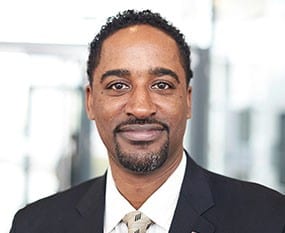
John Fluker was named to the position of President & CEO of Grenzebach Corporation by the Grenzebach board of Directors in May of 2017. As President & CEO, he provides leadership and is responsible for all day to day management decisions and implementation of the company’s long and short term strategies for the North American, Latin American, and parts of the South American markets. He is also a part of the Grenzebach Group’s executive management team representing the NAFTA region, helping to guide the Grenzebach Group’s overall strategy and execution at a global level. He currently also serves as Chairman of the Board of Millennium Control Systems, a company within the Grenzebach Group providing Controls and Automation Solutions for the Glass, Tire and Rubber, and Steel markets. A native of Georgia, Mr. Fluker relocated back to Georgia from Boston and started at Grenzebach in February of 2006 as a Sales Manager for the Glass market for Grenzebach. Since that time he has held positions of Director of Sales, Vice President of Sales, and Chief Sales Officer (CSO) before being named to his current position. Mr. Fluker is a graduate of Massachusetts Institute of Technology with a degree in Mechanical Engineering. While getting his degree at MIT, he served as a research assistant and instructor of engineering in various summer programs guiding upcoming high school seniors. He was a member of the MIT basketball team and involved in variety of organizations and churches in the Boston area and he has continued his community and church involvement after moving back to the Atlanta area. Mr. Fluker’s early work history included positions with a large Boston firm specializing in semi-conductor test equipment. He held various roles, beginning as a Manufacturing Engineer and ending up as a Product Support Engineer. His work as a Product Support Engineer required extensive travel throughout the world, primarily in South East Asia supporting company and customer installations in those regions. John Fluker met his wife of twenty years, Shelly-Ann while attending MIT. Dr. Shelly-Ann Fluker, is an Associate Professor of Medicine of Emory University working at Grady Hospital. They have two beautiful children, John Stephen and Alecia.
